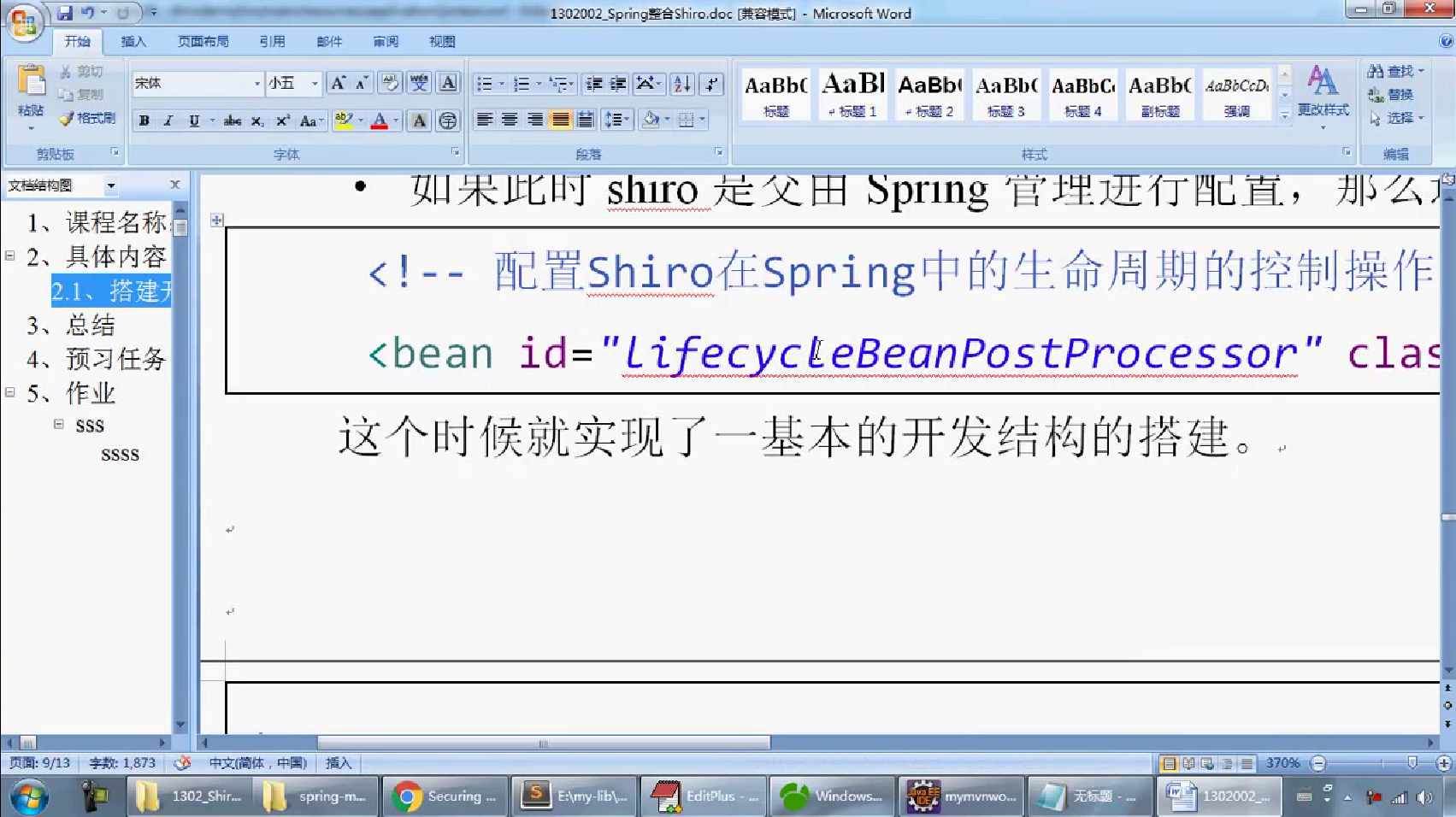
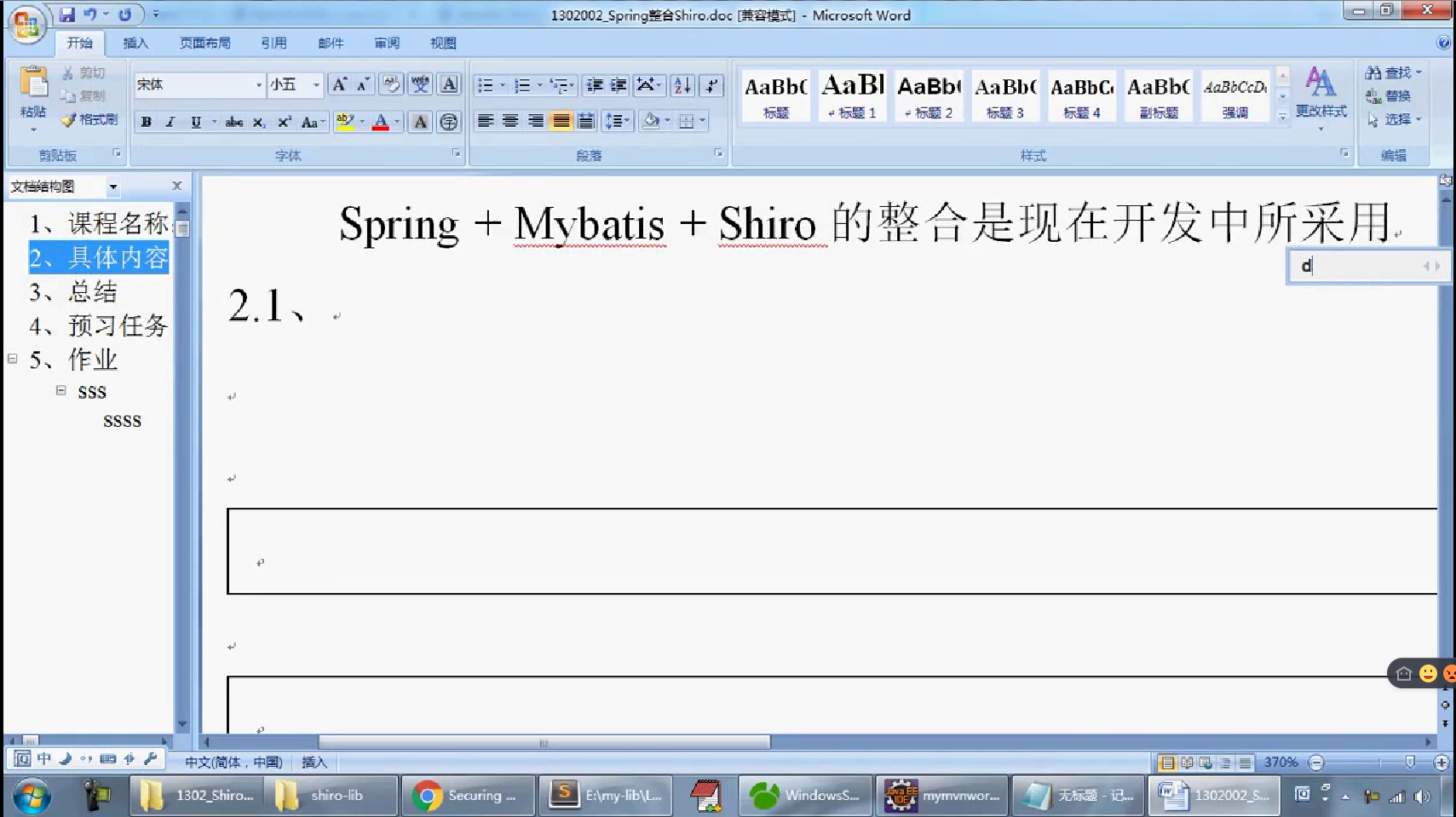
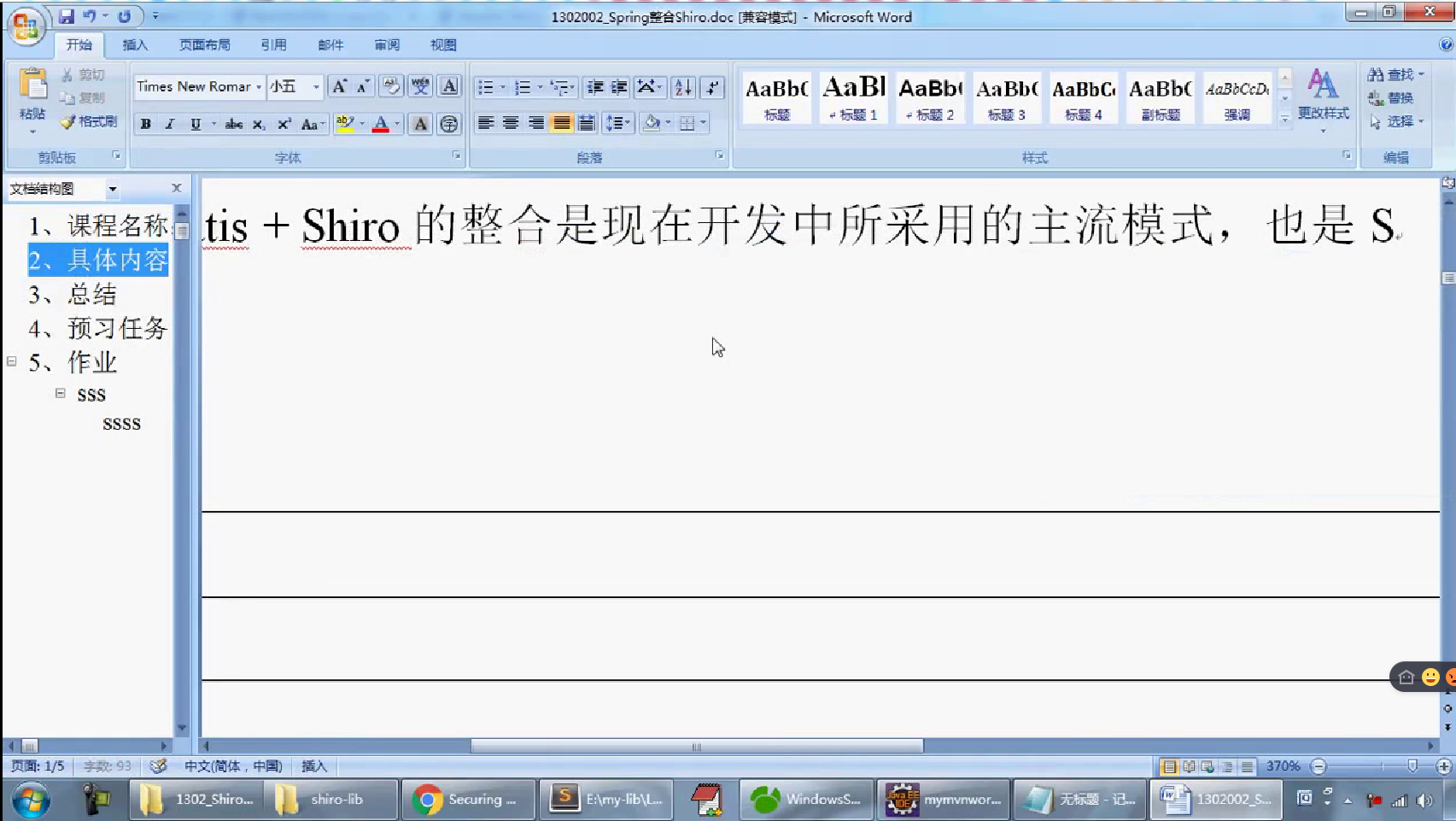
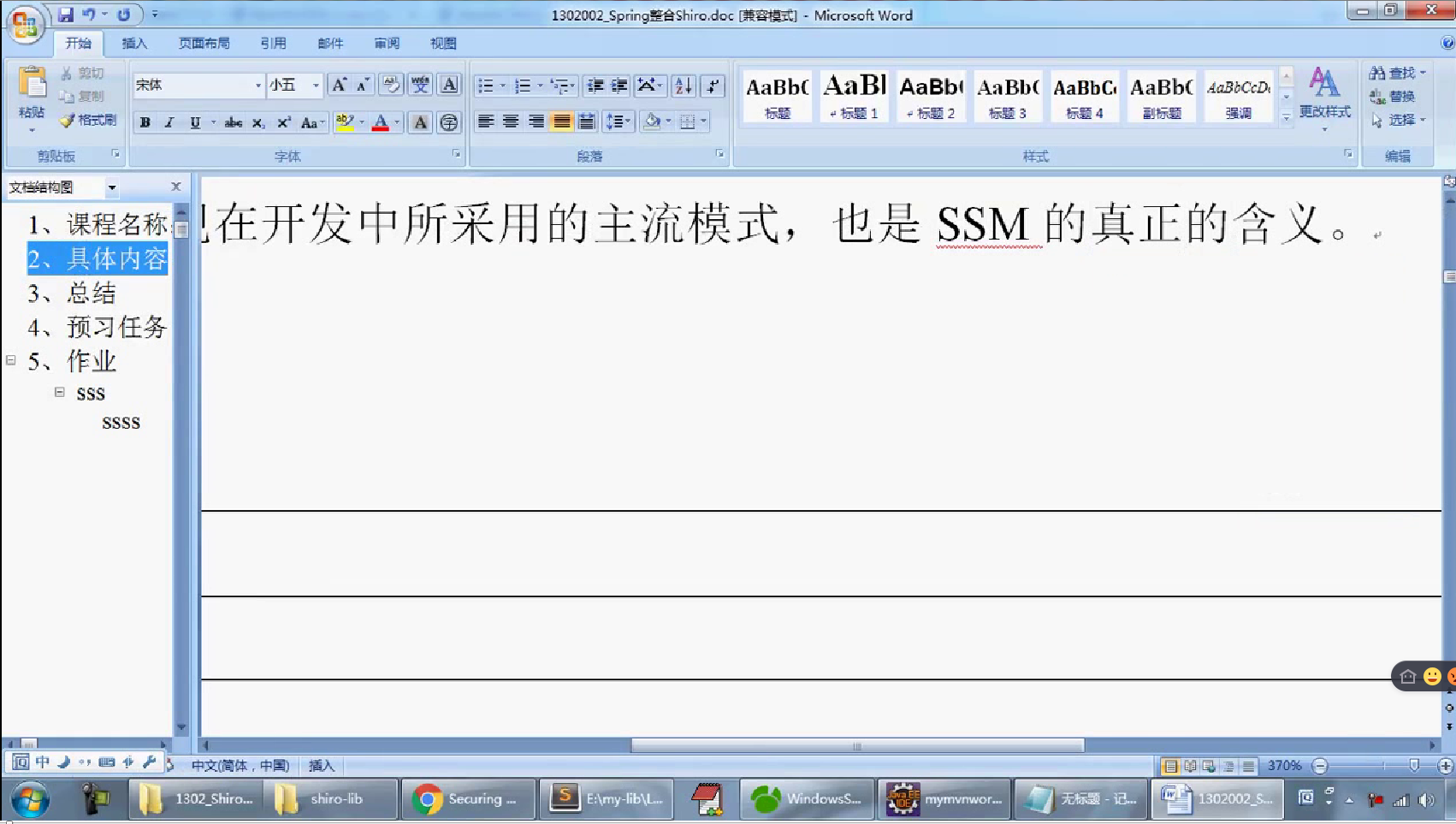

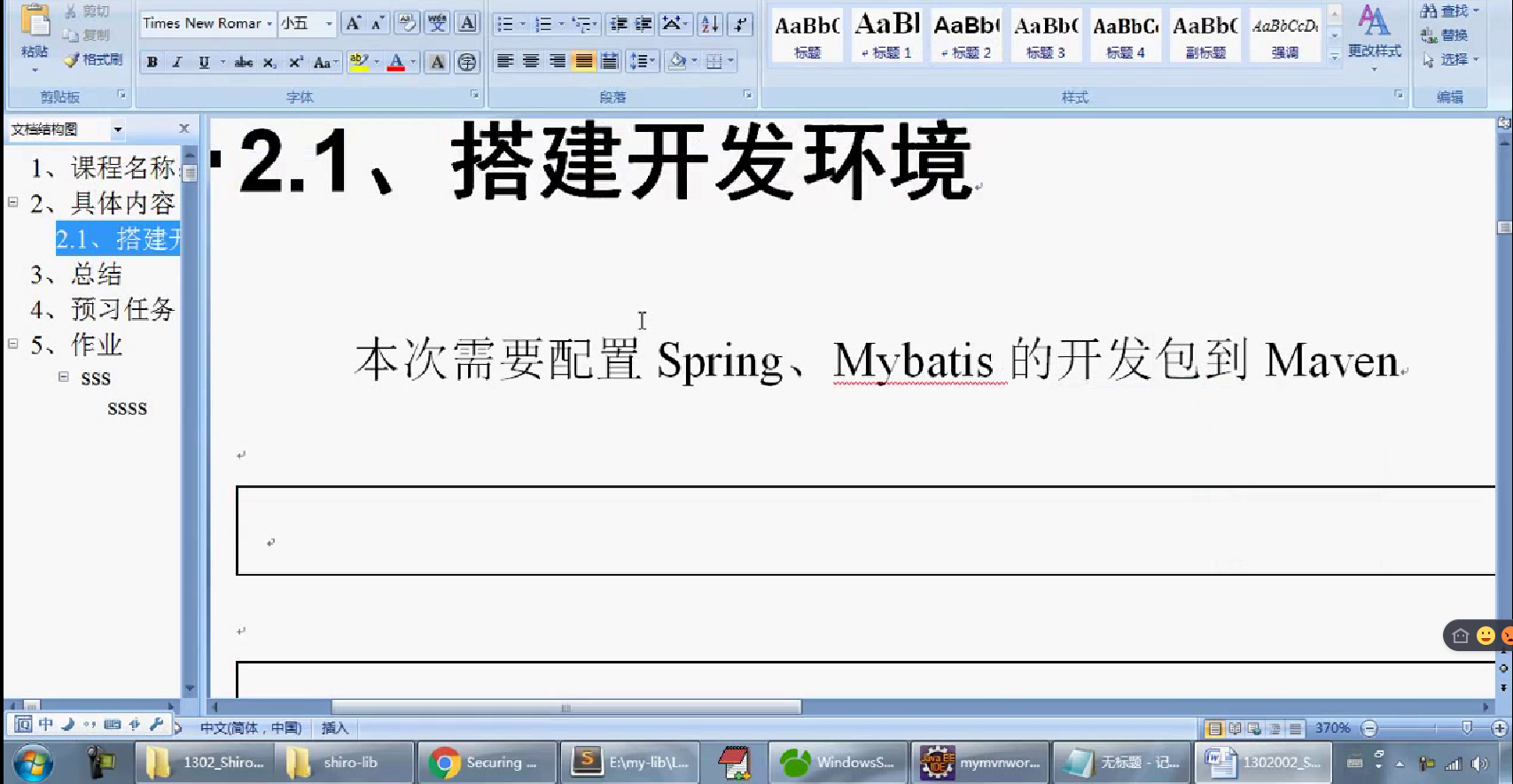
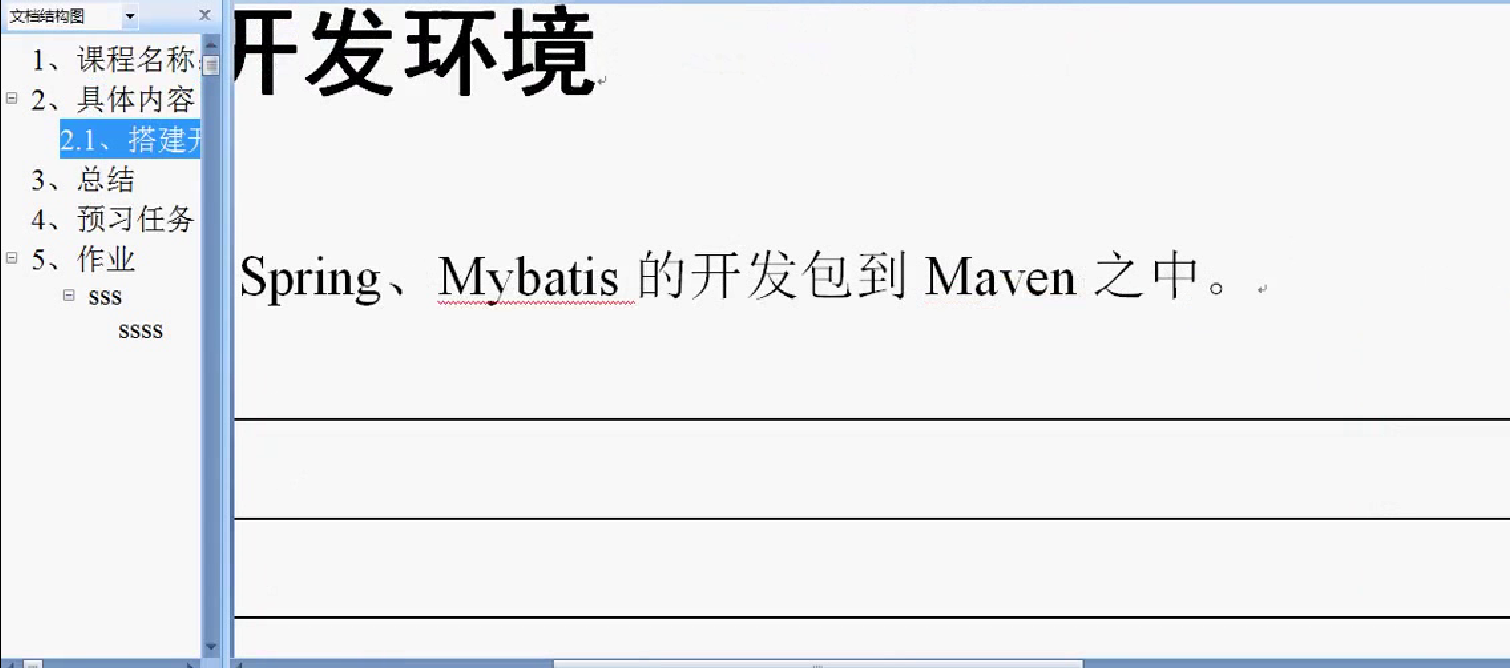
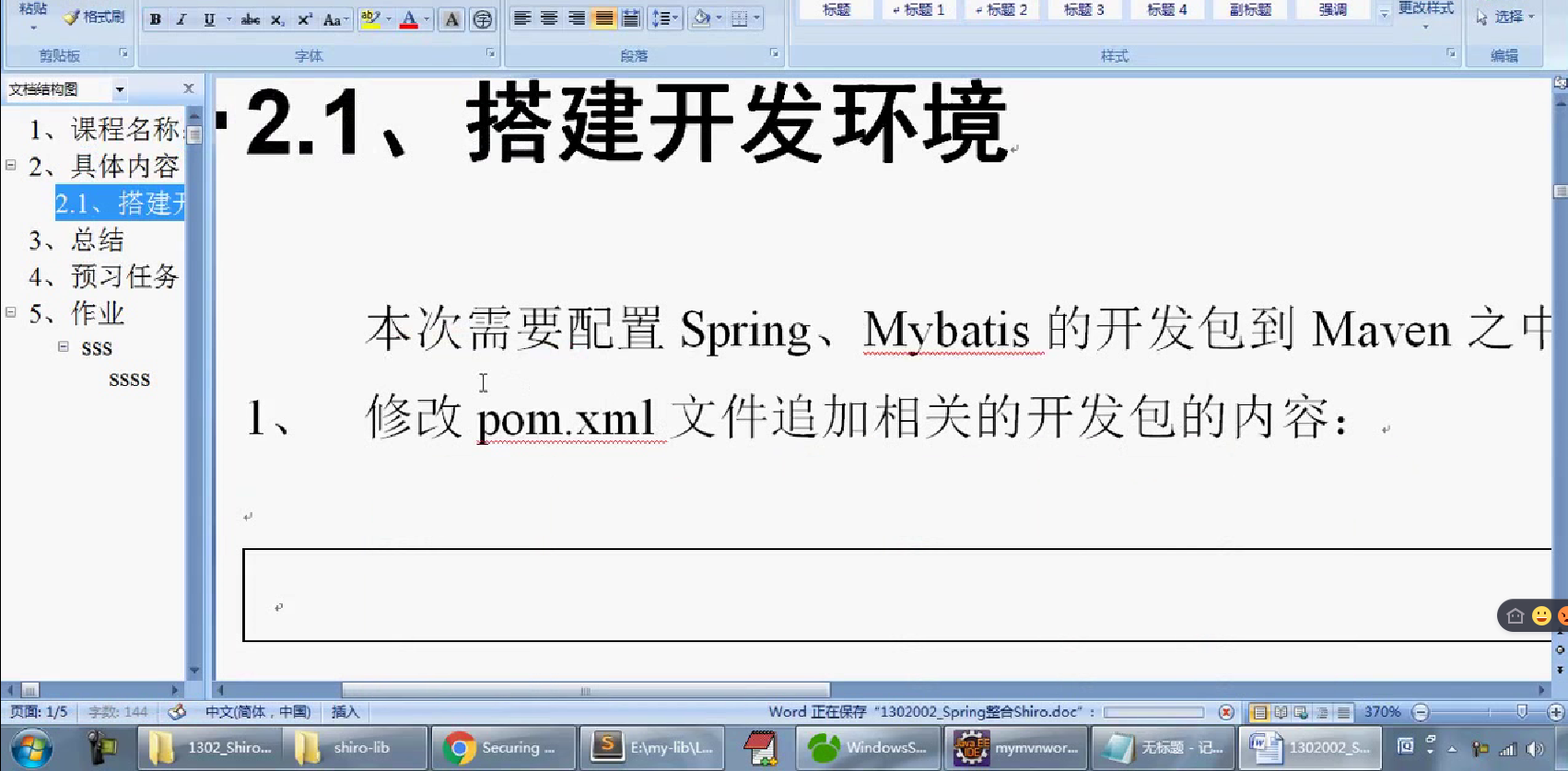
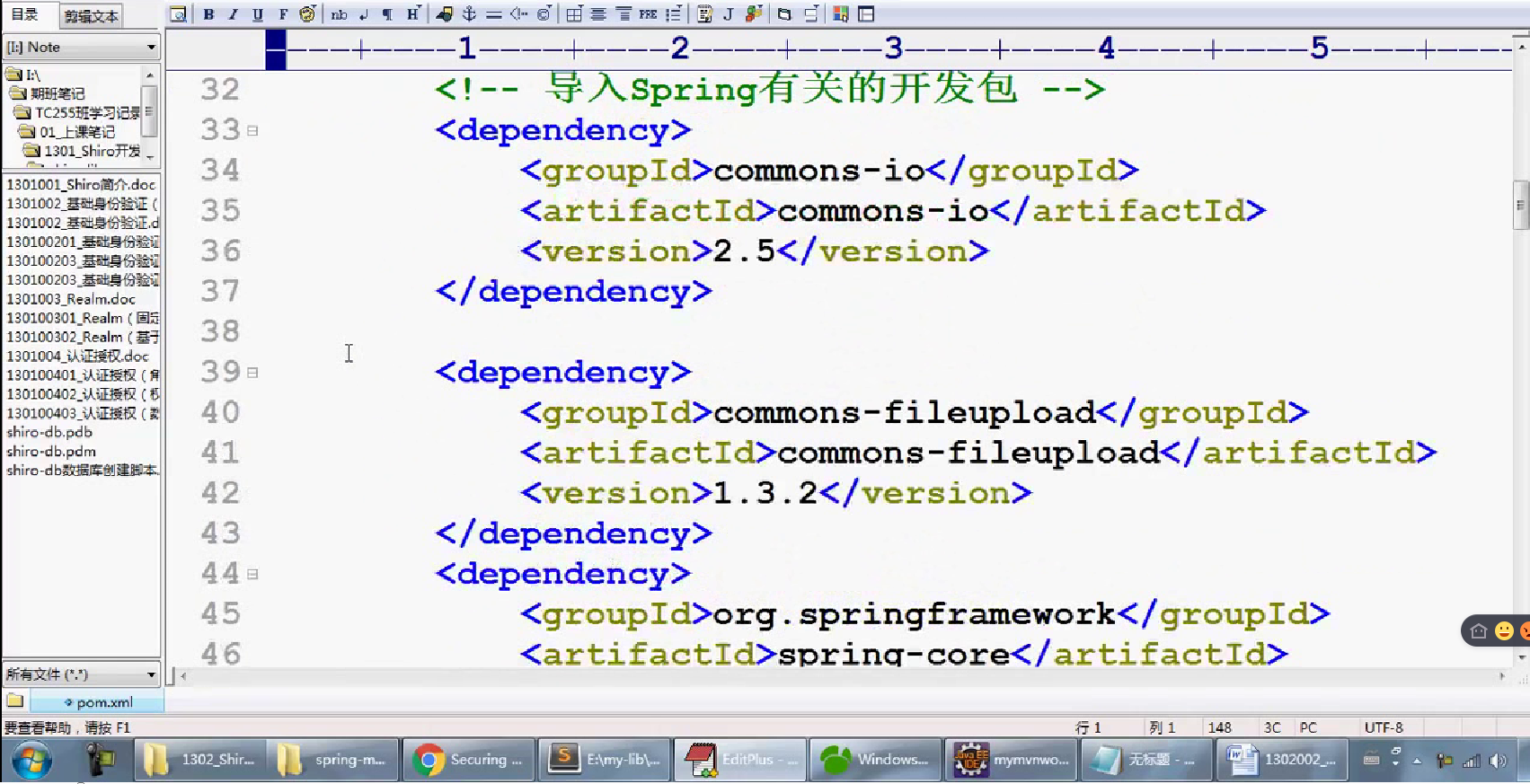
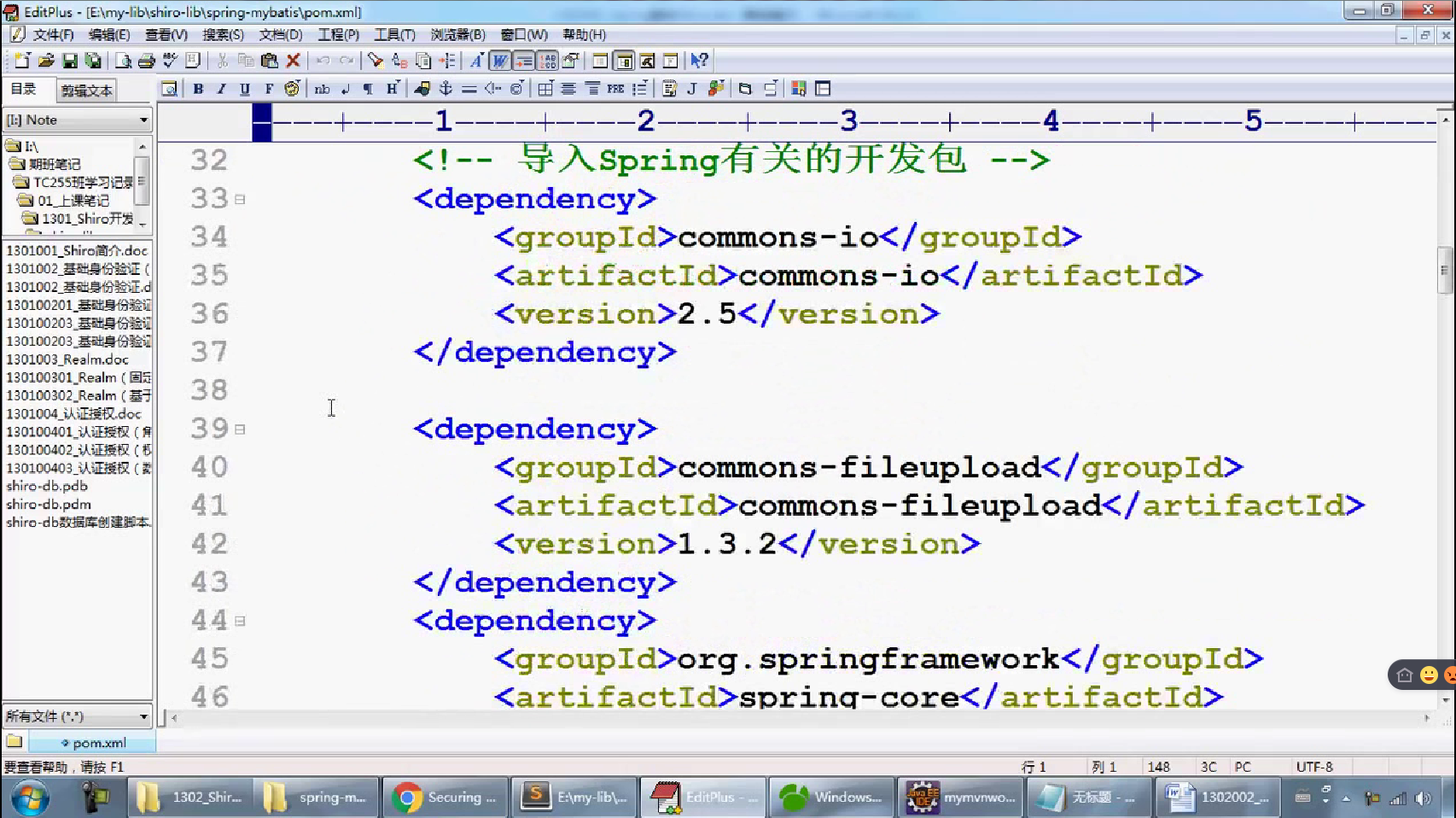
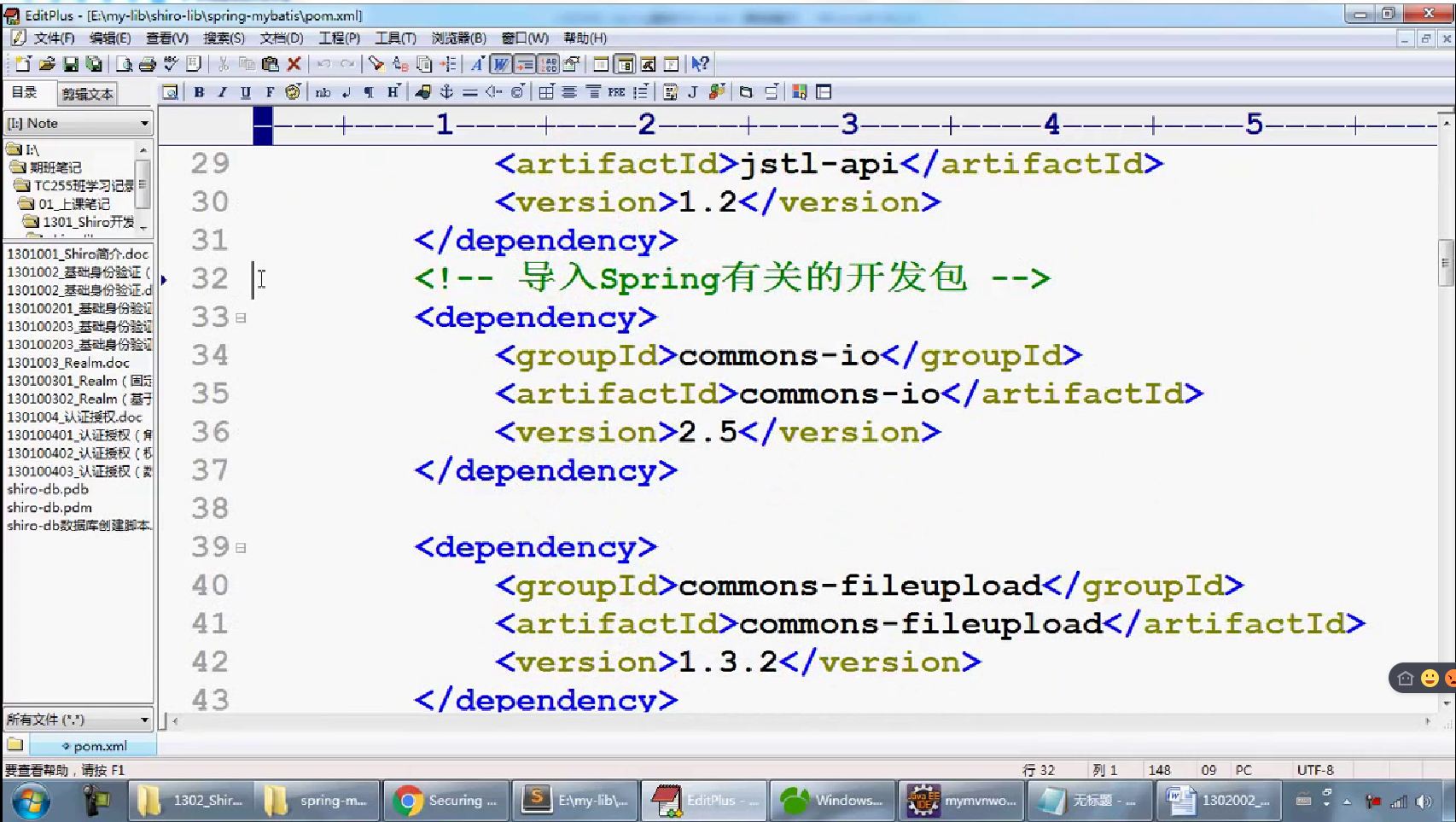

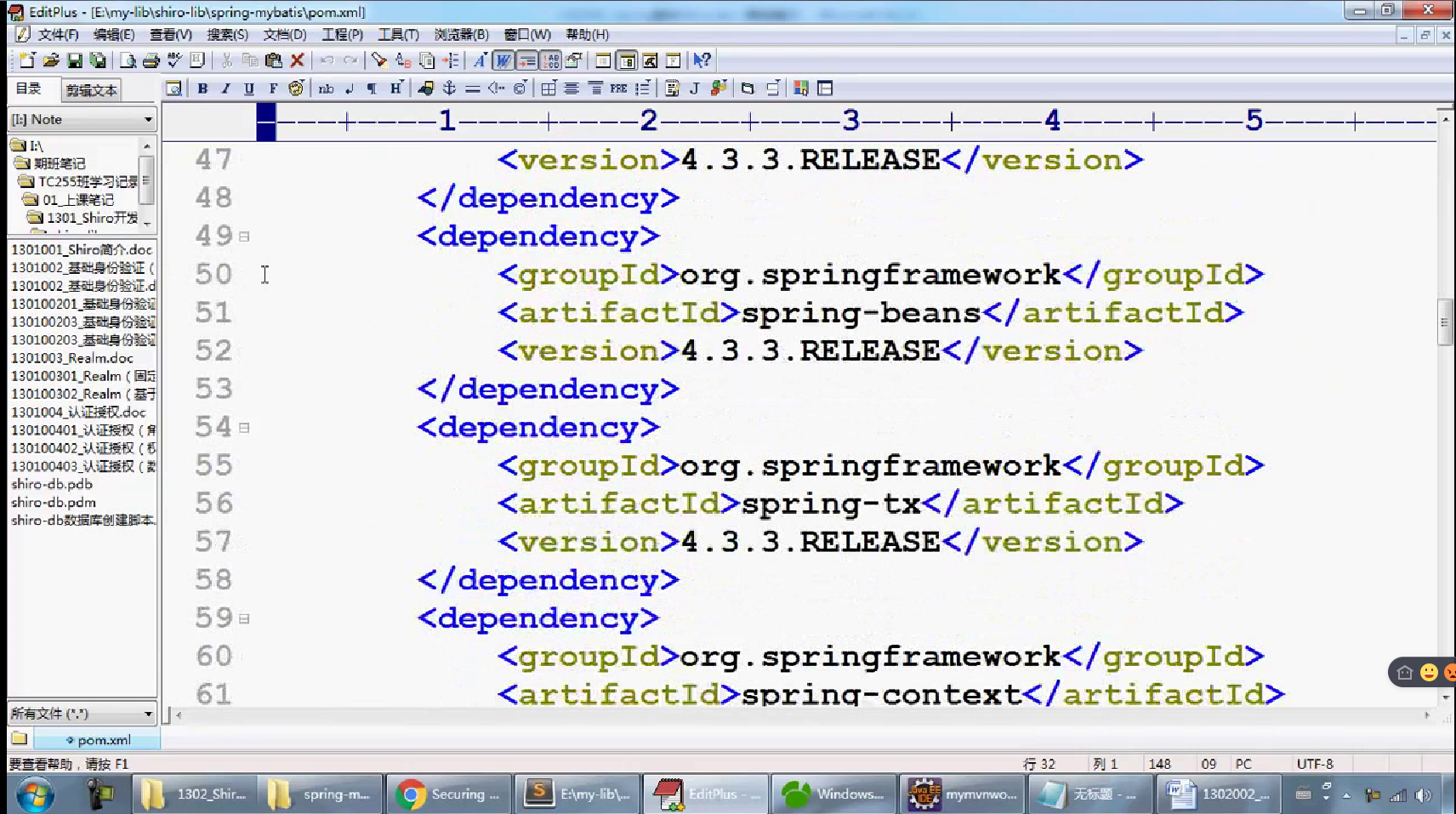
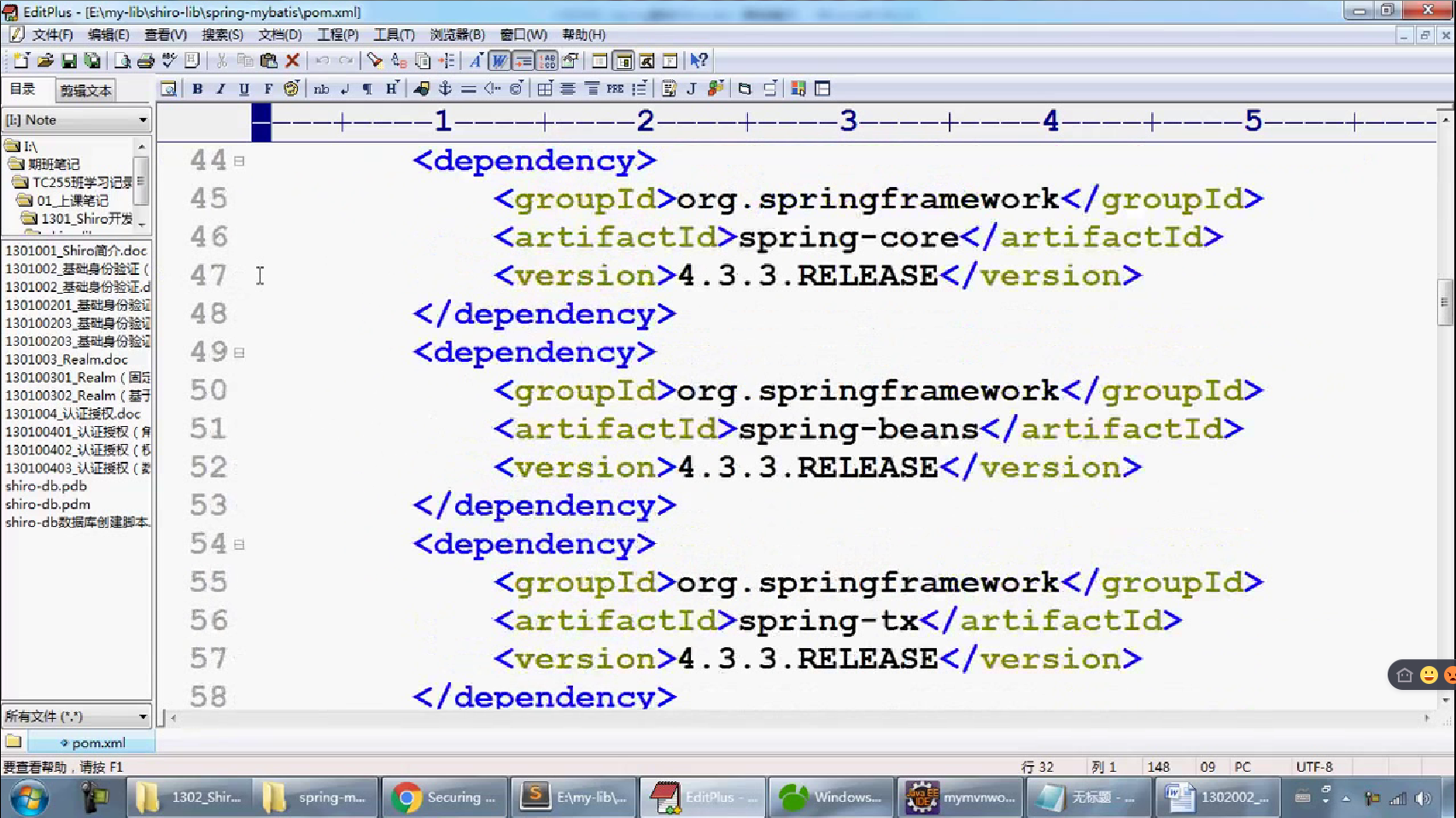
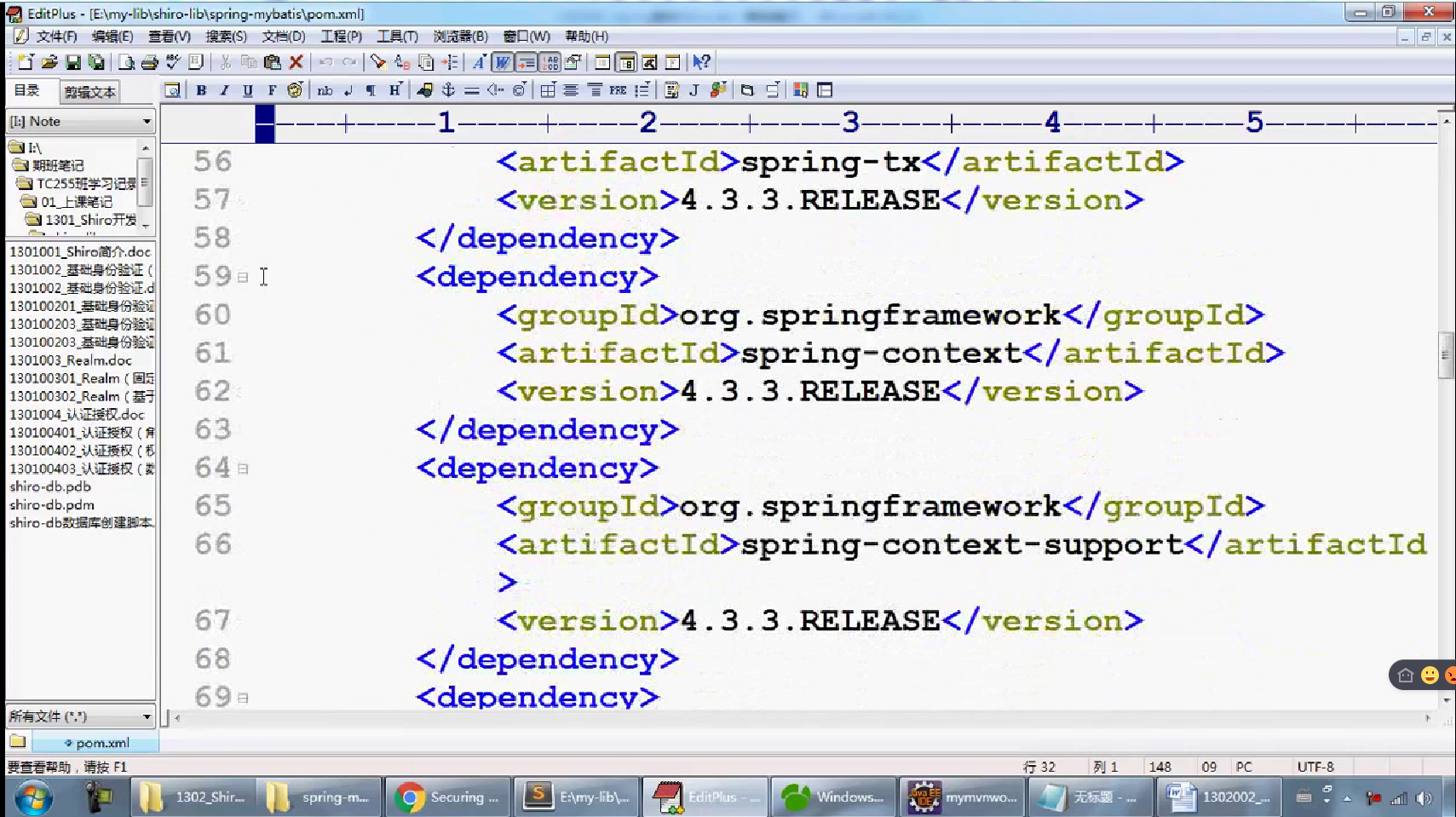
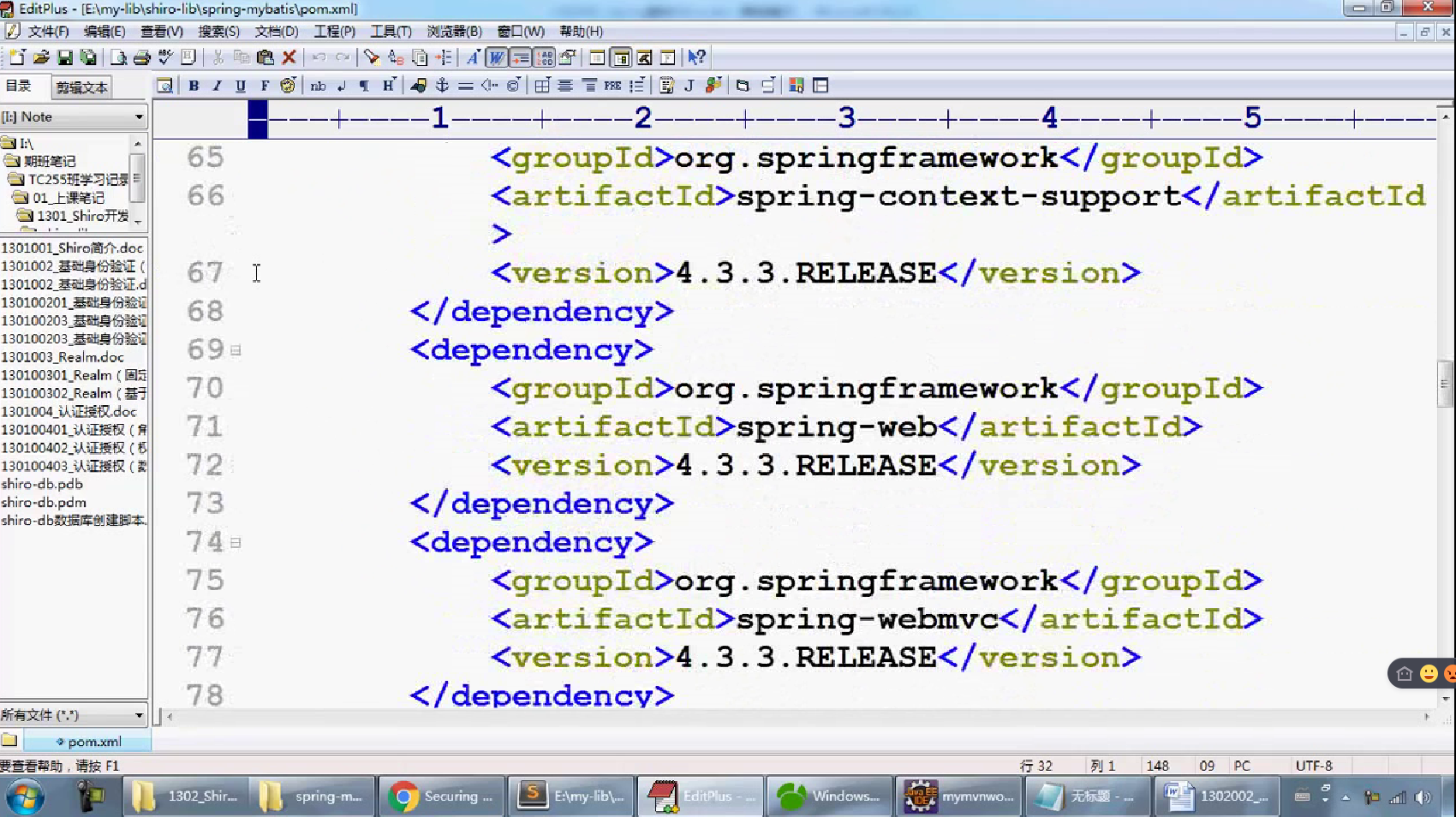
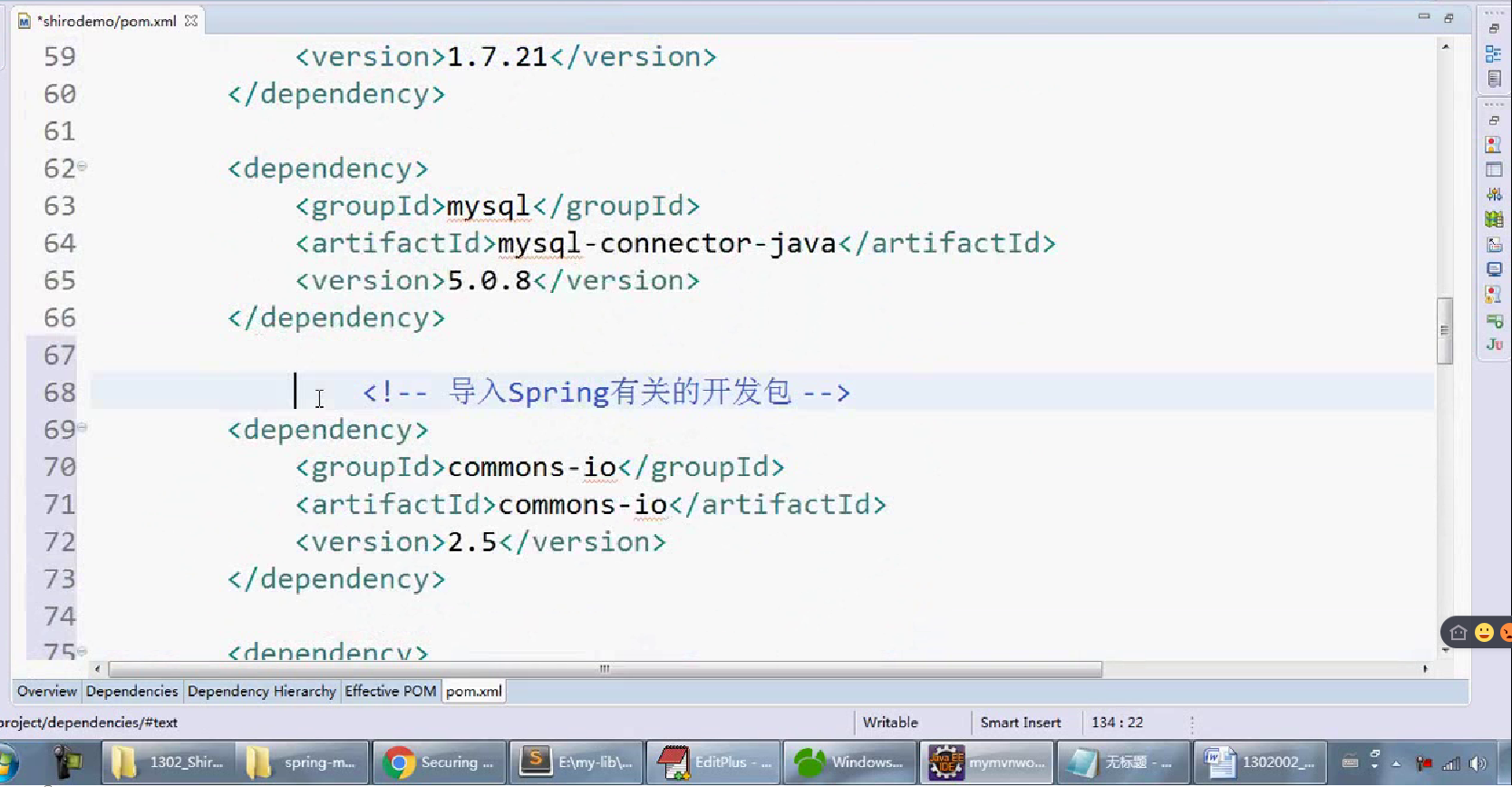
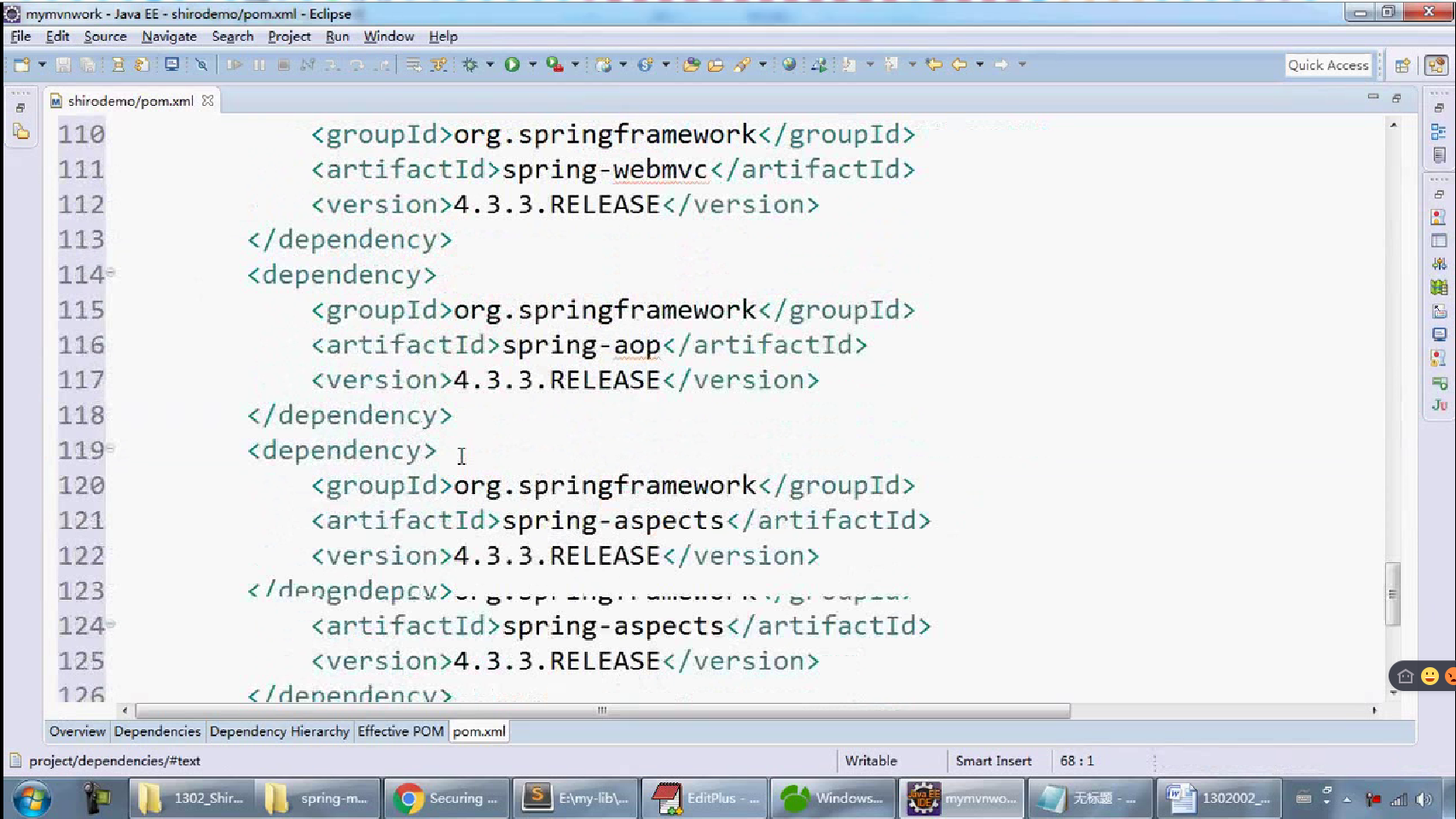
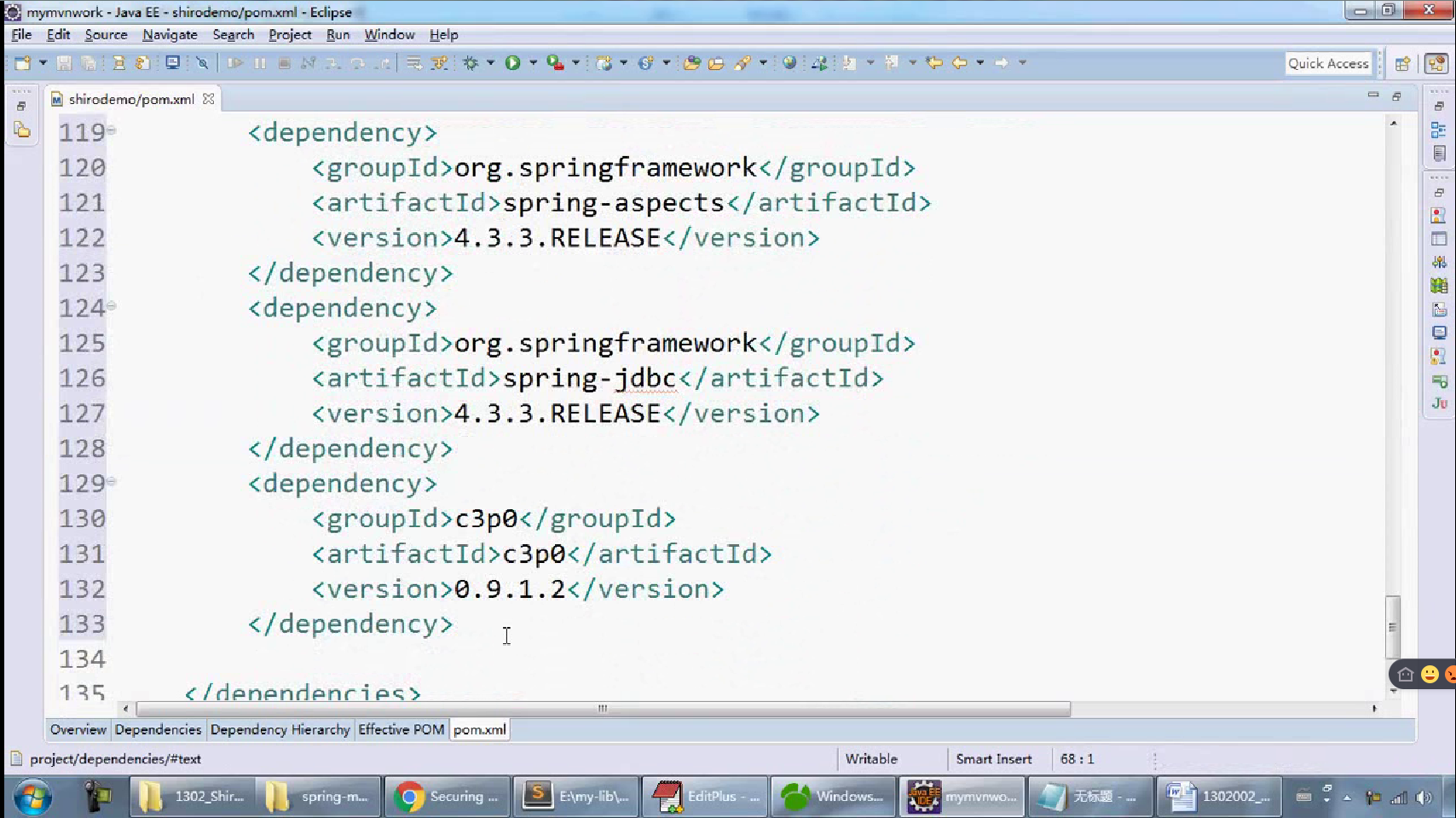
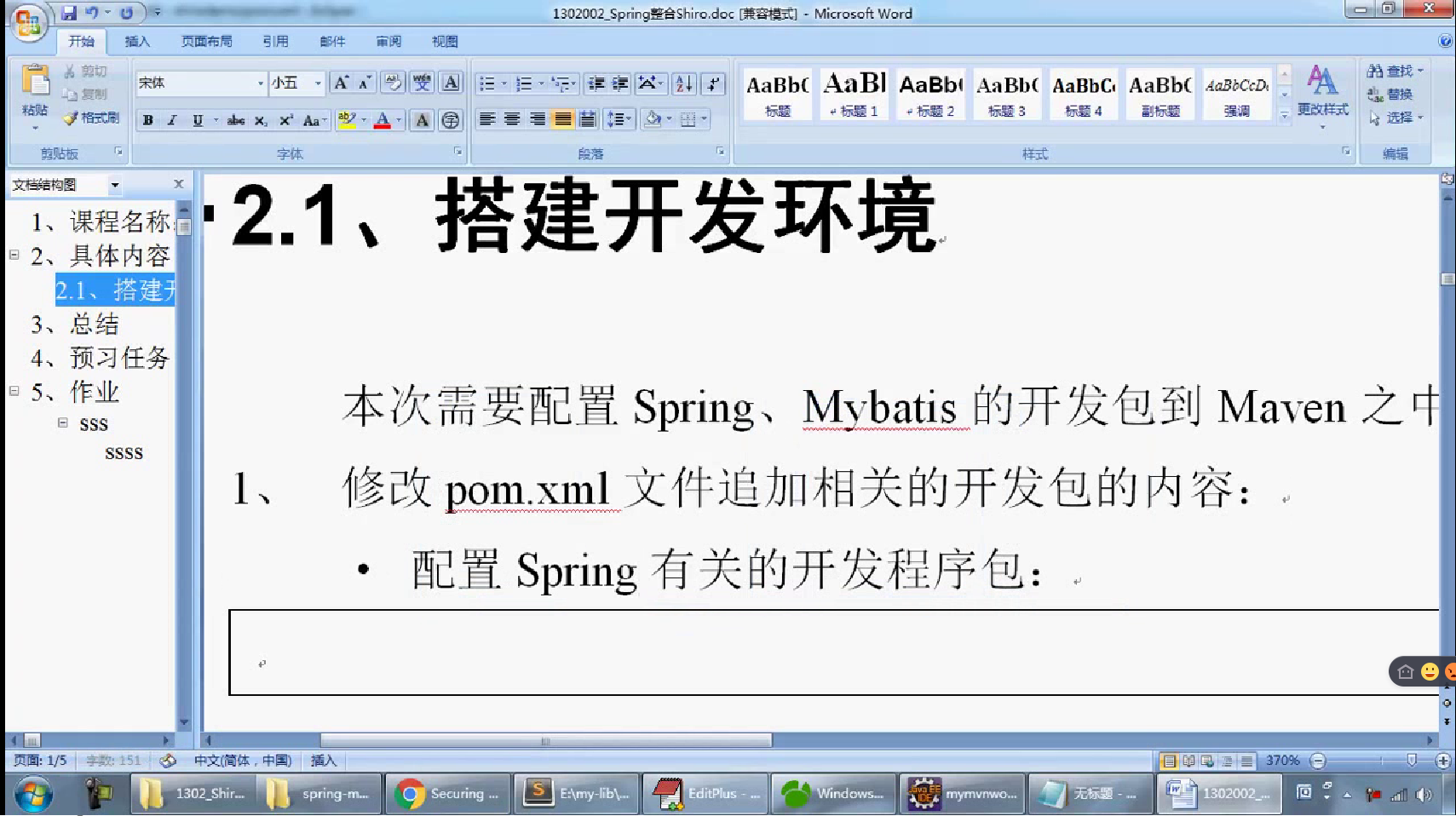
<!-- 导入Spring有关的开发包 --> <!-- https://mvnrepository.com/artifact/commons-io/commons-io --> <dependency> <groupId>commons-io</groupId> <artifactId>commons-io</artifactId> <version>2.5</version> </dependency> <!-- https://mvnrepository.com/artifact/commons-fileupload/commons-fileupload --> <dependency> <groupId>commons-fileupload</groupId> <artifactId>commons-fileupload</artifactId> <version>1.3.2</version> </dependency> <!-- https://mvnrepository.com/artifact/org.springframework/spring-webmvc --> <dependency> <groupId>org.springframework</groupId> <artifactId>spring-webmvc</artifactId> <version>4.3.3.RELEASE</version> </dependency> <!-- https://mvnrepository.com/artifact/org.springframework/spring-aop --> <dependency> <groupId>org.springframework</groupId> <artifactId>spring-aop</artifactId> <version>4.3.3.RELEASE</version> </dependency> <!-- https://mvnrepository.com/artifact/org.springframework/spring-aspects --> <dependency> <groupId>org.springframework</groupId> <artifactId>spring-aspects</artifactId> <version>4.3.3.RELEASE</version> </dependency> <!-- https://mvnrepository.com/artifact/org.springframework/spring-jdbc --> <dependency> <groupId>org.springframework</groupId> <artifactId>spring-jdbc</artifactId> <version>4.3.3.RELEASE</version> </dependency> <!-- https://mvnrepository.com/artifact/com.mchange/c3p0 --> <dependency> <groupId>com.mchange</groupId> <artifactId>c3p0</artifactId> <version>0.9.1.2</version> </dependency>
<!-- 导入Spring有关的开发包 --> <!-- https://mvnrepository.com/artifact/commons-io/commons-io --> <dependency> <groupId>commons-io</groupId> <artifactId>commons-io</artifactId> <version>2.5</version> </dependency> <!-- https://mvnrepository.com/artifact/commons-fileupload/commons-fileupload --> <dependency> <groupId>commons-fileupload</groupId> <artifactId>commons-fileupload</artifactId> <version>1.3.2</version> </dependency> <!-- https://mvnrepository.com/artifact/org.springframework/spring-core --> <dependency> <groupId>org.springframework</groupId> <artifactId>spring-core</artifactId> <version>4.3.3.RELEASE</version> </dependency> <!-- https://mvnrepository.com/artifact/org.springframework/spring-beans --> <dependency> <groupId>org.springframework</groupId> <artifactId>spring-beans</artifactId> <version>4.3.3.RELEASE</version> </dependency> <!-- https://mvnrepository.com/artifact/org.springframework/spring-tx --> <dependency> <groupId>org.springframework</groupId> <artifactId>spring-tx</artifactId> <version>4.3.3.RELEASE</version> </dependency> <!-- https://mvnrepository.com/artifact/org.springframework/spring-context --> <dependency> <groupId>org.springframework</groupId> <artifactId>spring-context</artifactId> <version>4.3.3.RELEASE</version> </dependency> <!-- https://mvnrepository.com/artifact/org.springframework/spring-context-support --> <dependency> <groupId>org.springframework</groupId> <artifactId>spring-context-support</artifactId> <version>4.3.3.RELEASE</version> </dependency> <!-- https://mvnrepository.com/artifact/org.springframework/spring-web --> <dependency> <groupId>org.springframework</groupId> <artifactId>spring-web</artifactId> <version>4.3.3.RELEASE</version> </dependency> <!-- https://mvnrepository.com/artifact/org.springframework/spring-webmvc --> <dependency> <groupId>org.springframework</groupId> <artifactId>spring-webmvc</artifactId> <version>4.3.3.RELEASE</version> </dependency> <!-- https://mvnrepository.com/artifact/org.springframework/spring-aop --> <dependency> <groupId>org.springframework</groupId> <artifactId>spring-aop</artifactId> <version>4.3.3.RELEASE</version> </dependency> <!-- https://mvnrepository.com/artifact/org.springframework/spring-aspects --> <dependency> <groupId>org.springframework</groupId> <artifactId>spring-aspects</artifactId> <version>4.3.3.RELEASE</version> </dependency> <!-- https://mvnrepository.com/artifact/org.springframework/spring-jdbc --> <dependency> <groupId>org.springframework</groupId> <artifactId>spring-jdbc</artifactId> <version>4.3.3.RELEASE</version> </dependency> <!-- https://mvnrepository.com/artifact/c3p0/c3p0 --> <dependency> <groupId>c3p0</groupId> <artifactId>c3p0</artifactId> <version>0.9.1.2</version> </dependency>
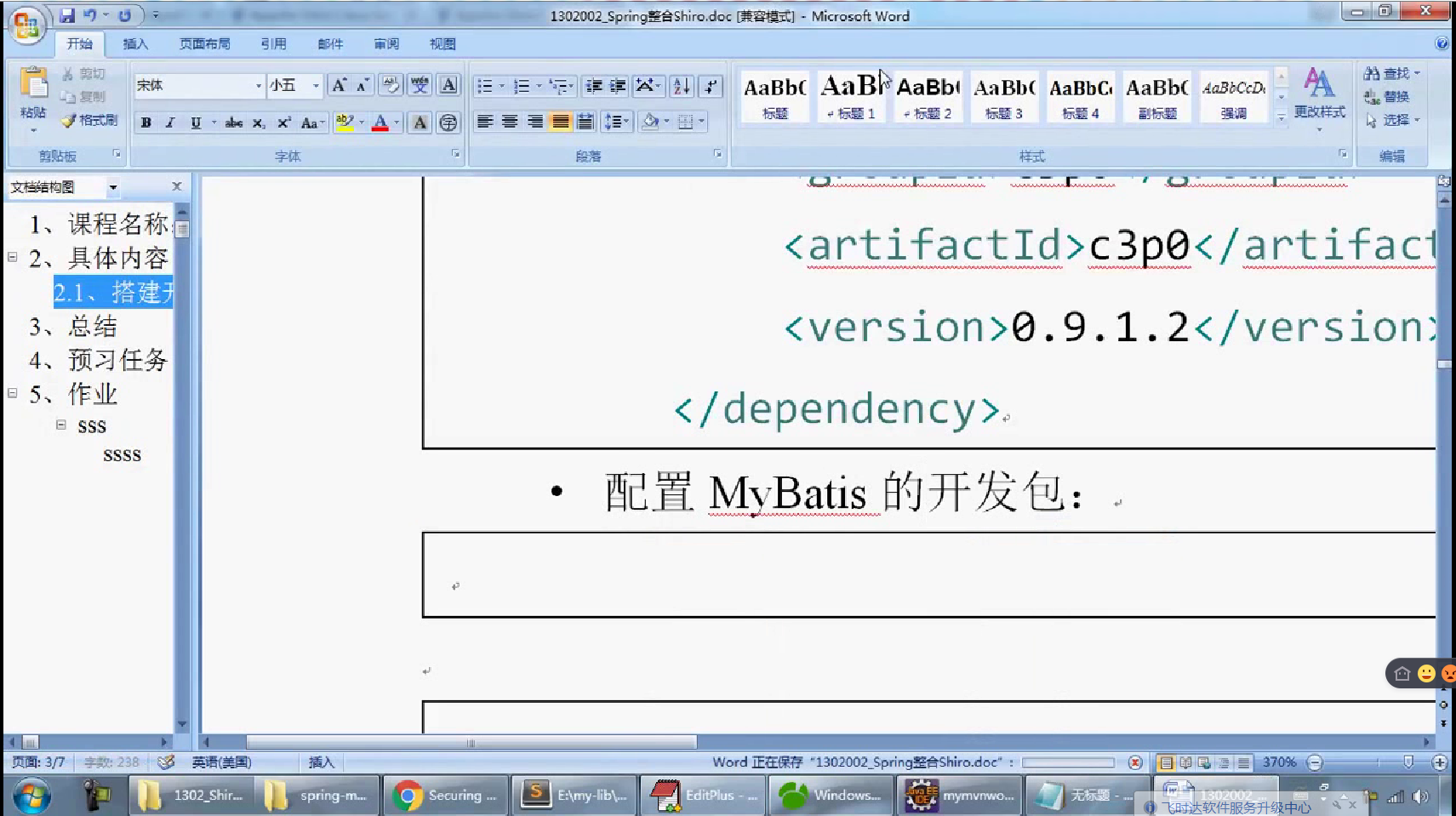
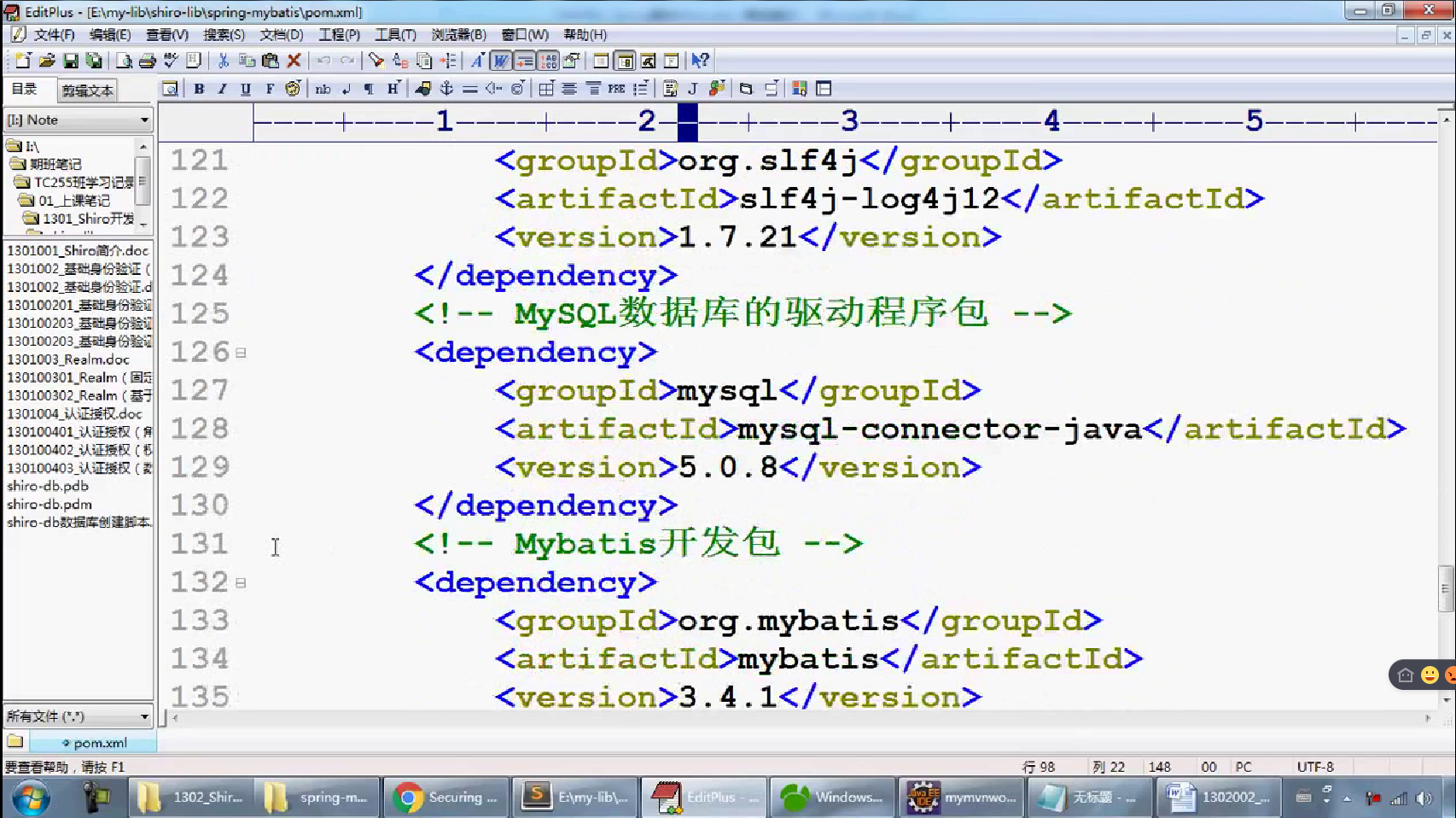

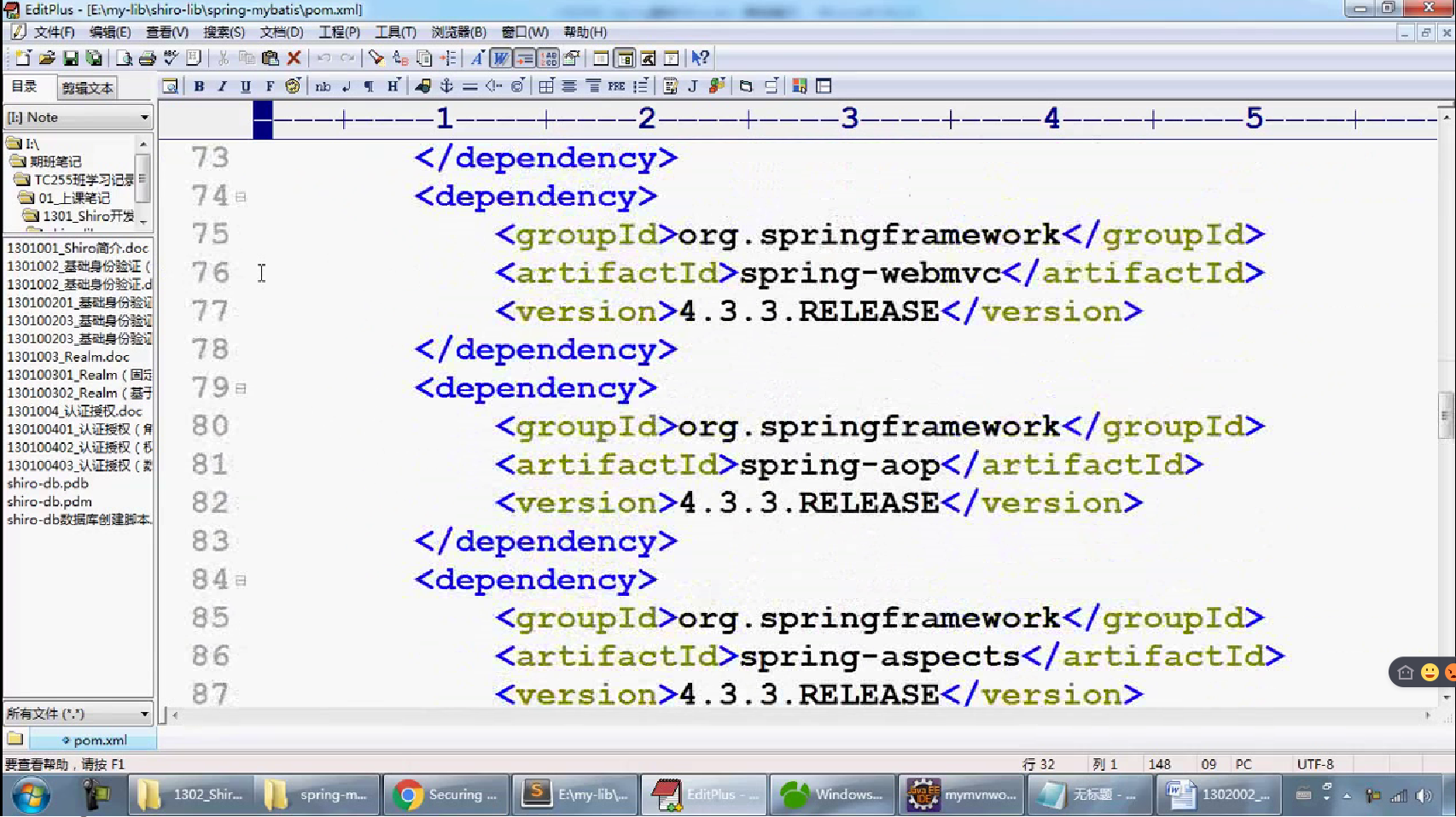
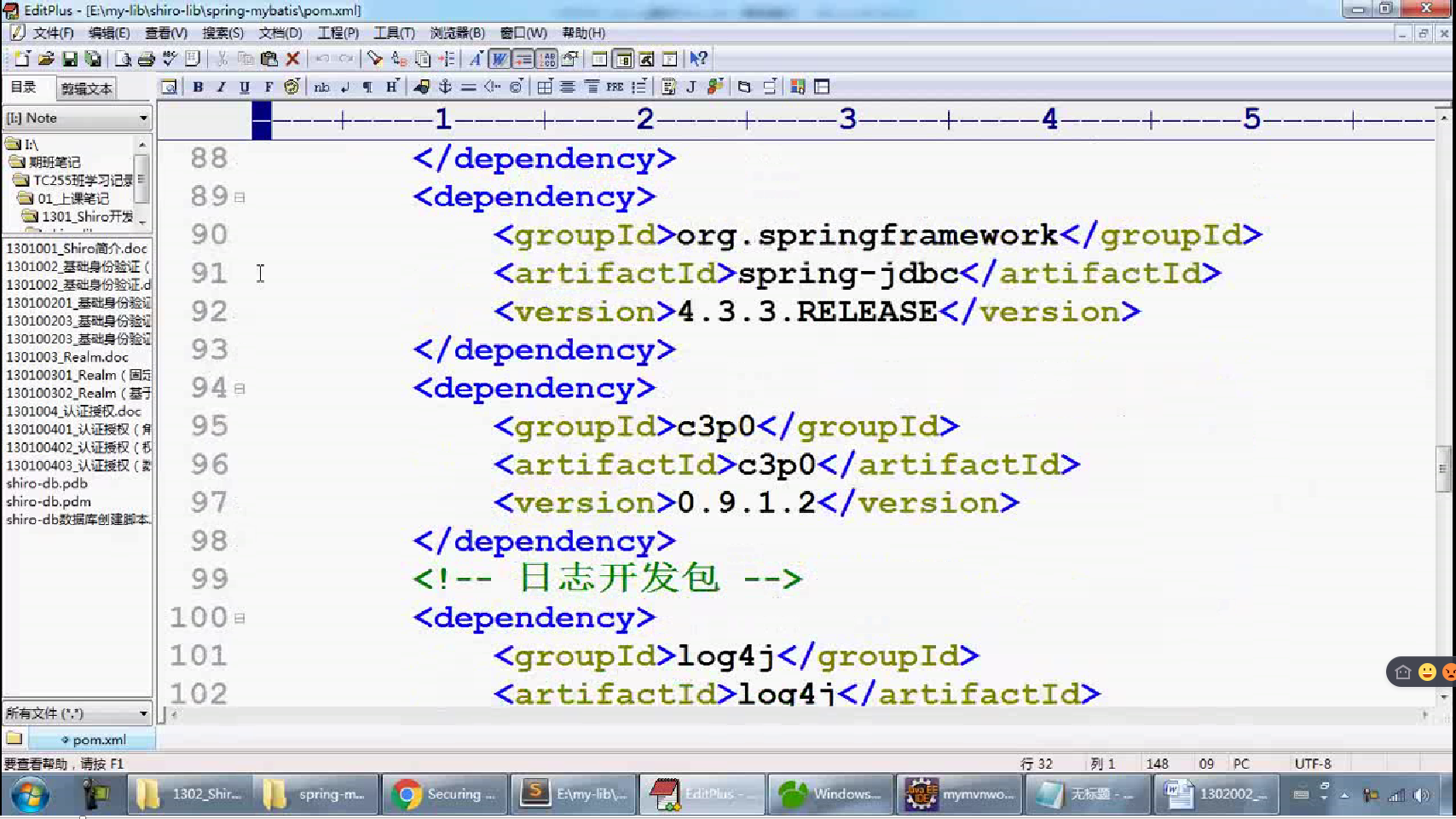
<!-- Mybatis开发包 --> <!-- https://mvnrepository.com/artifact/org.mybatis/mybatis --> <dependency> <groupId>org.mybatis</groupId> <artifactId>mybatis</artifactId> <version>3.4.1</version> </dependency> <!-- https://mvnrepository.com/artifact/org.mybatis/mybatis-spring --> <dependency> <groupId>org.mybatis</groupId> <artifactId>mybatis-spring</artifactId> <version>1.3.0</version> </dependency>
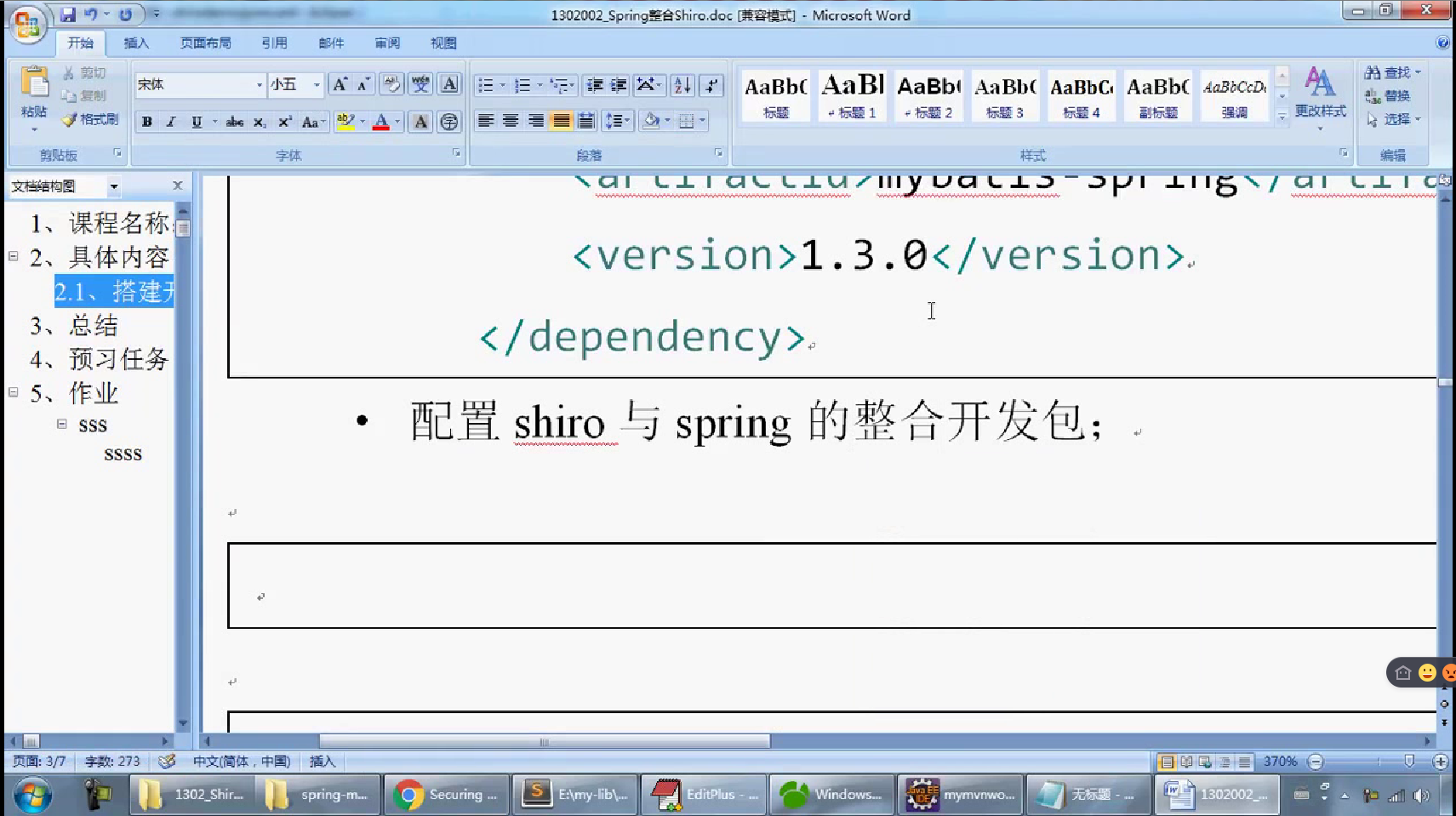
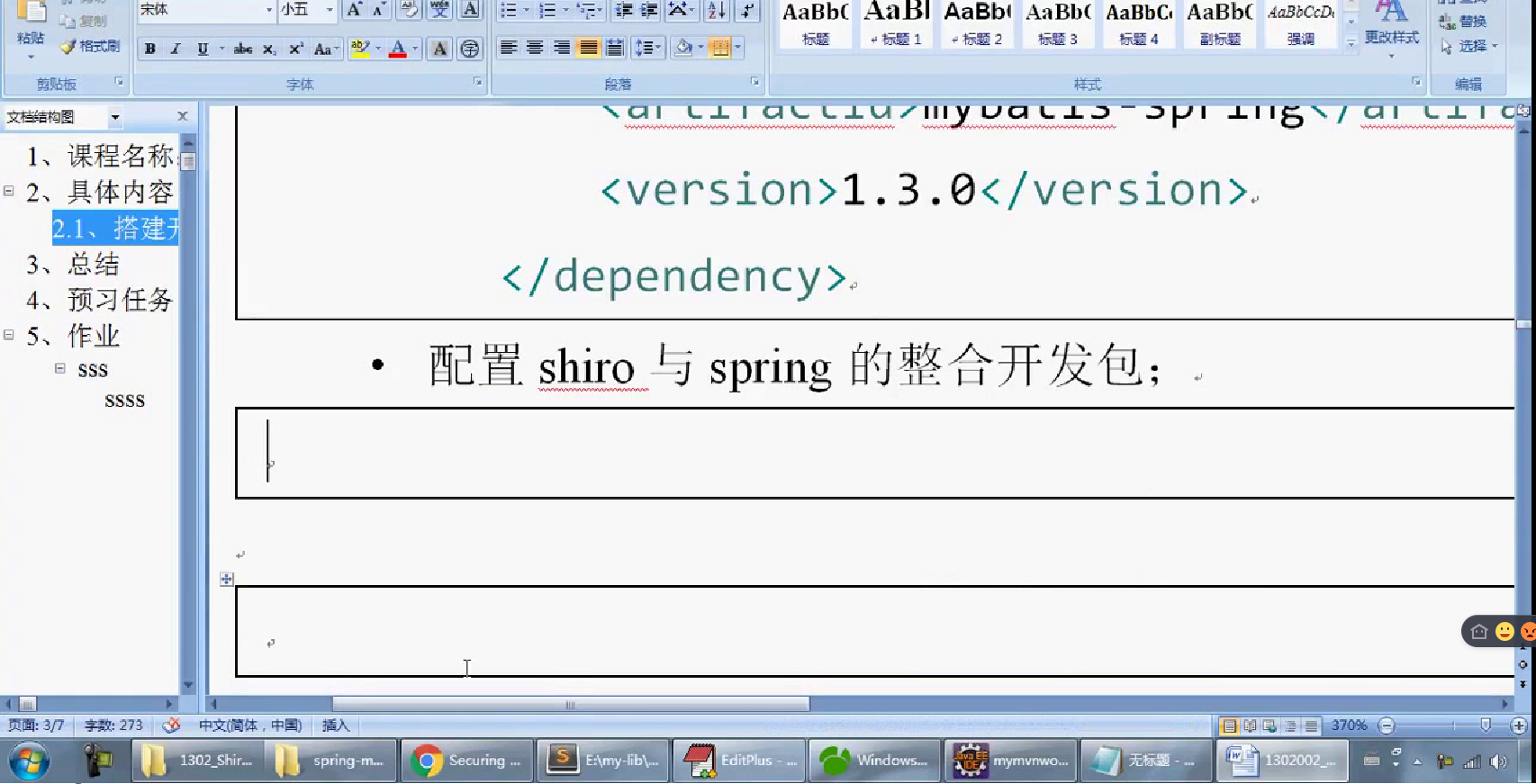
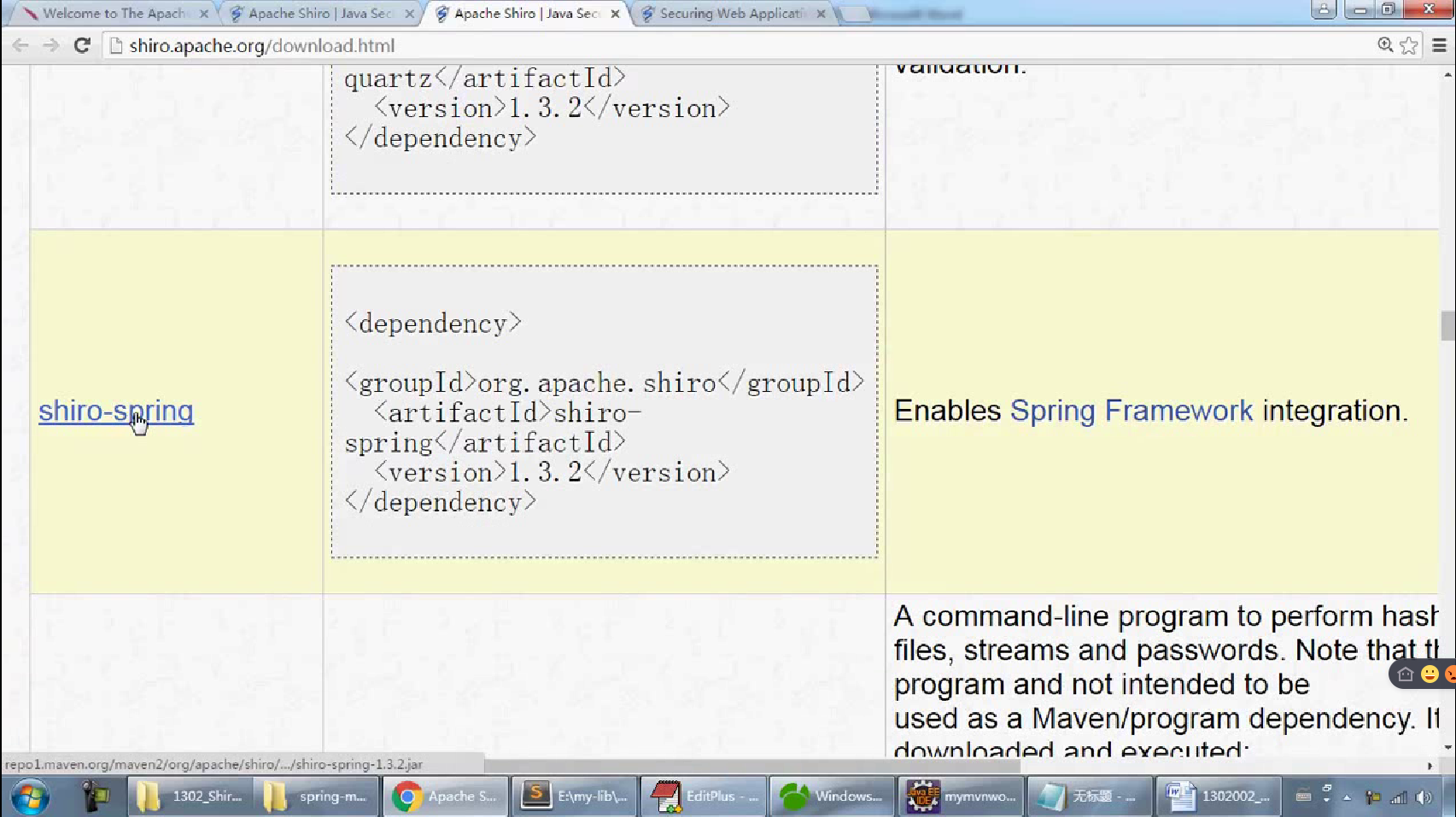

<dependency> <groupId>org.apache.shiro</groupId> <artifactId>shiro-spring</artifactId> <version>1.3.2</version> </dependency>
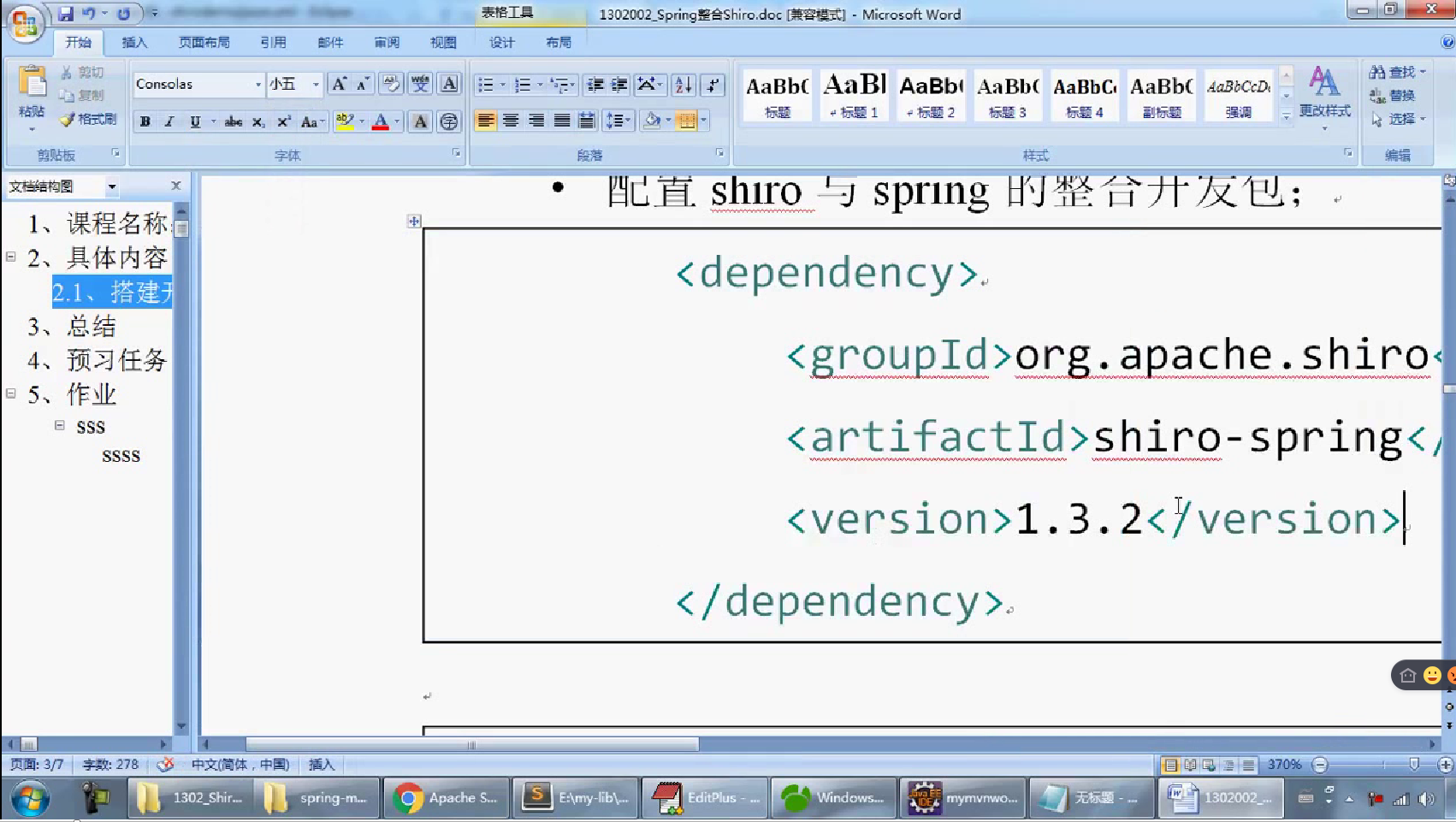
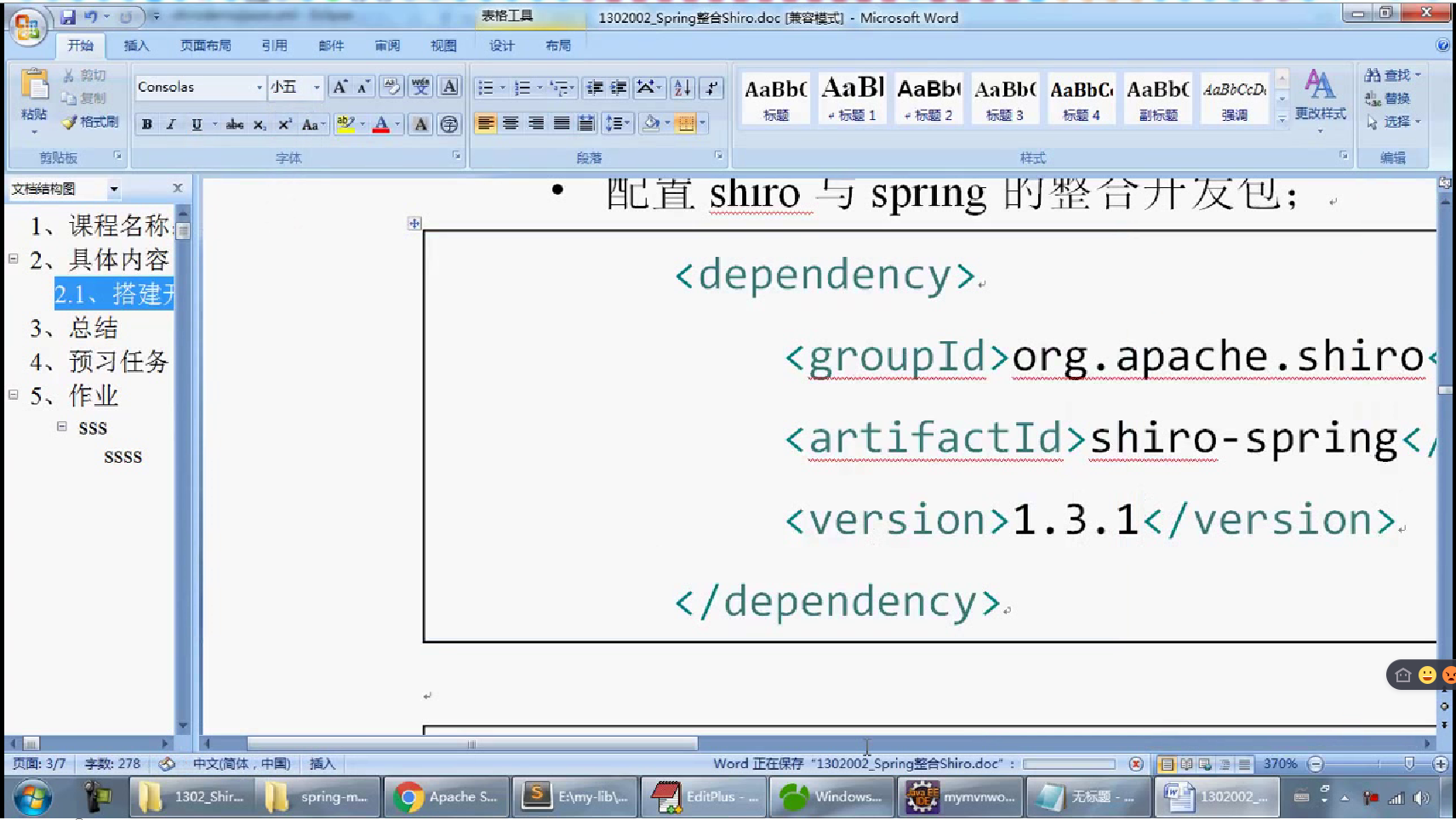
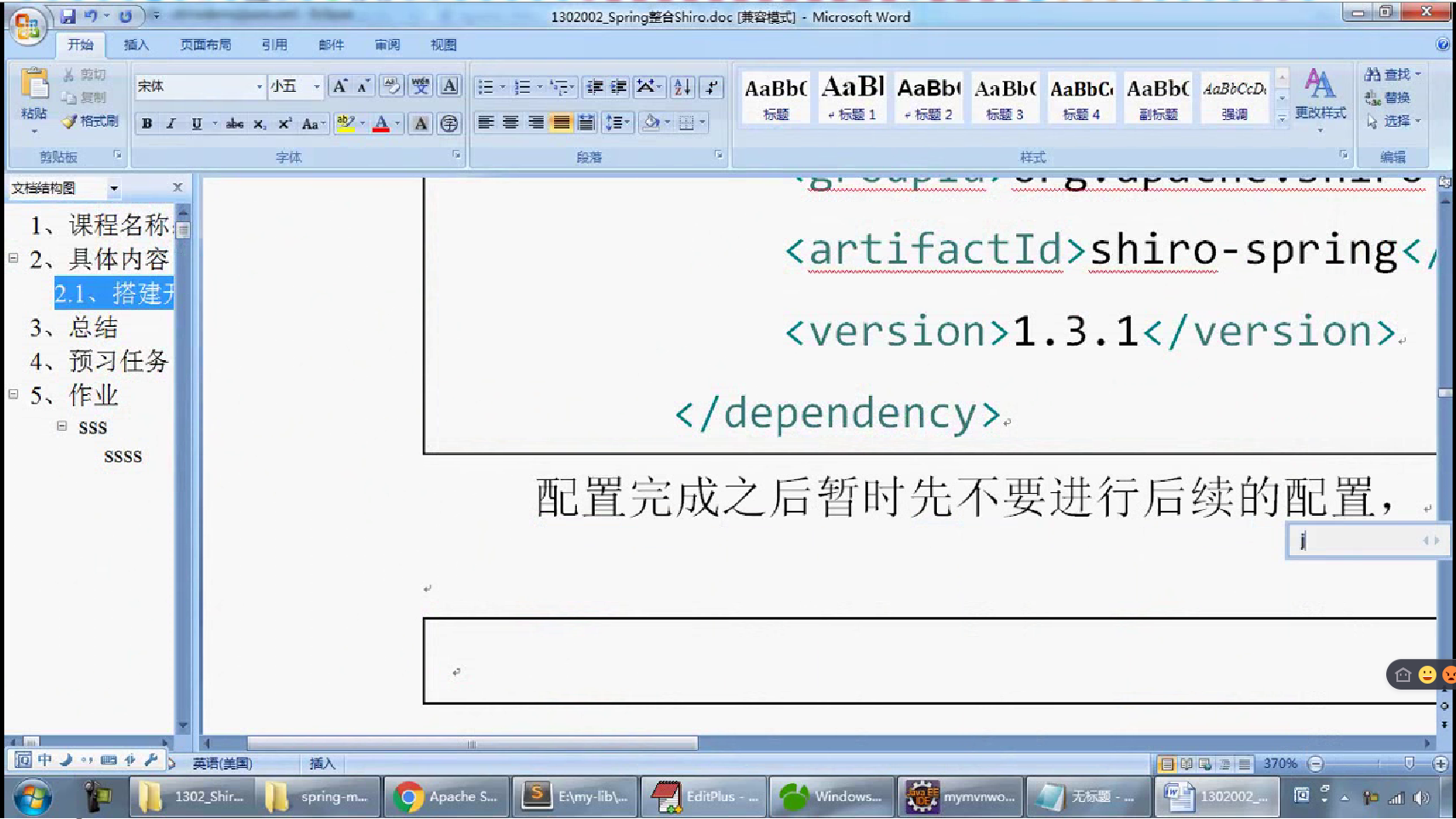
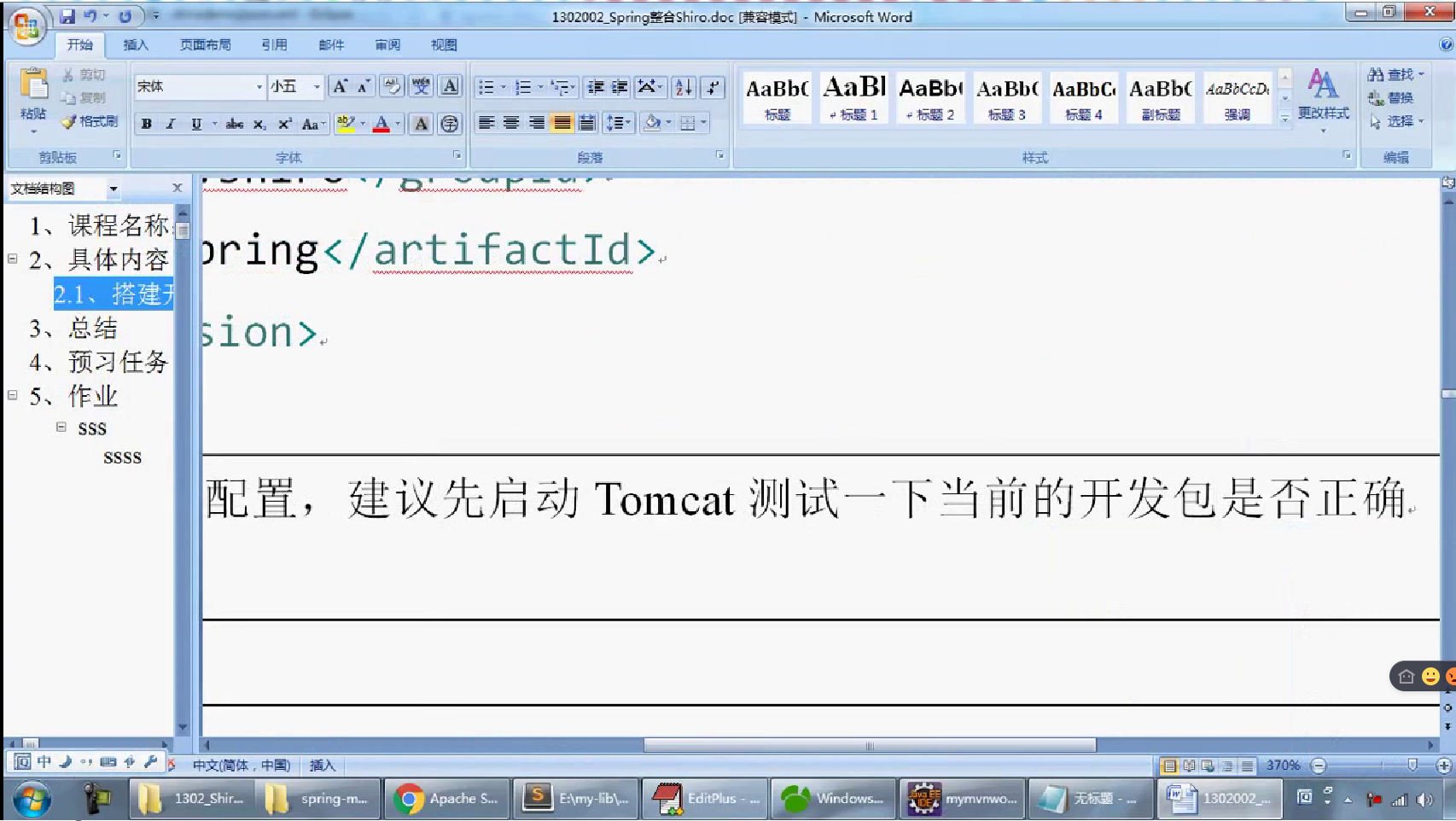
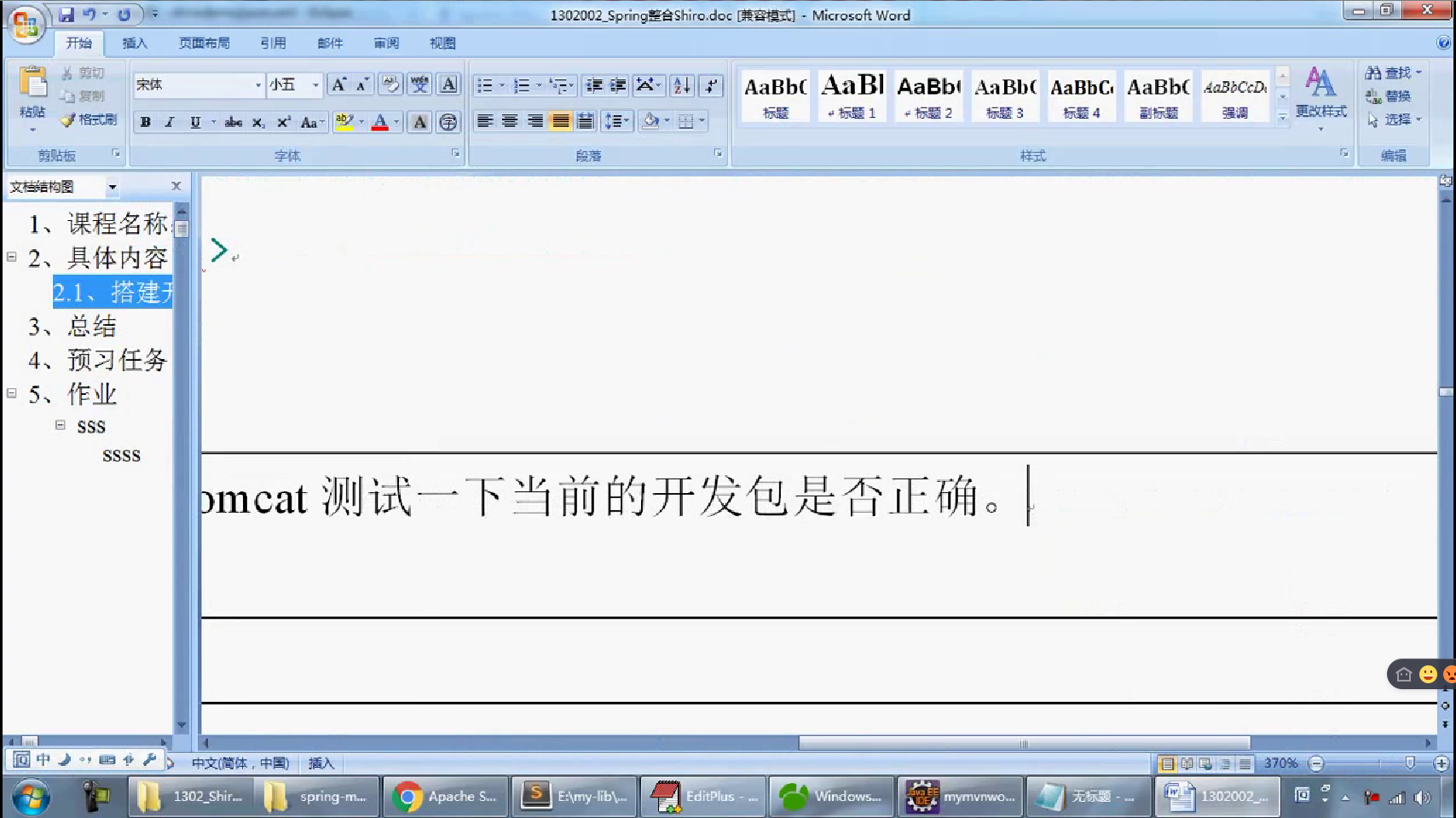
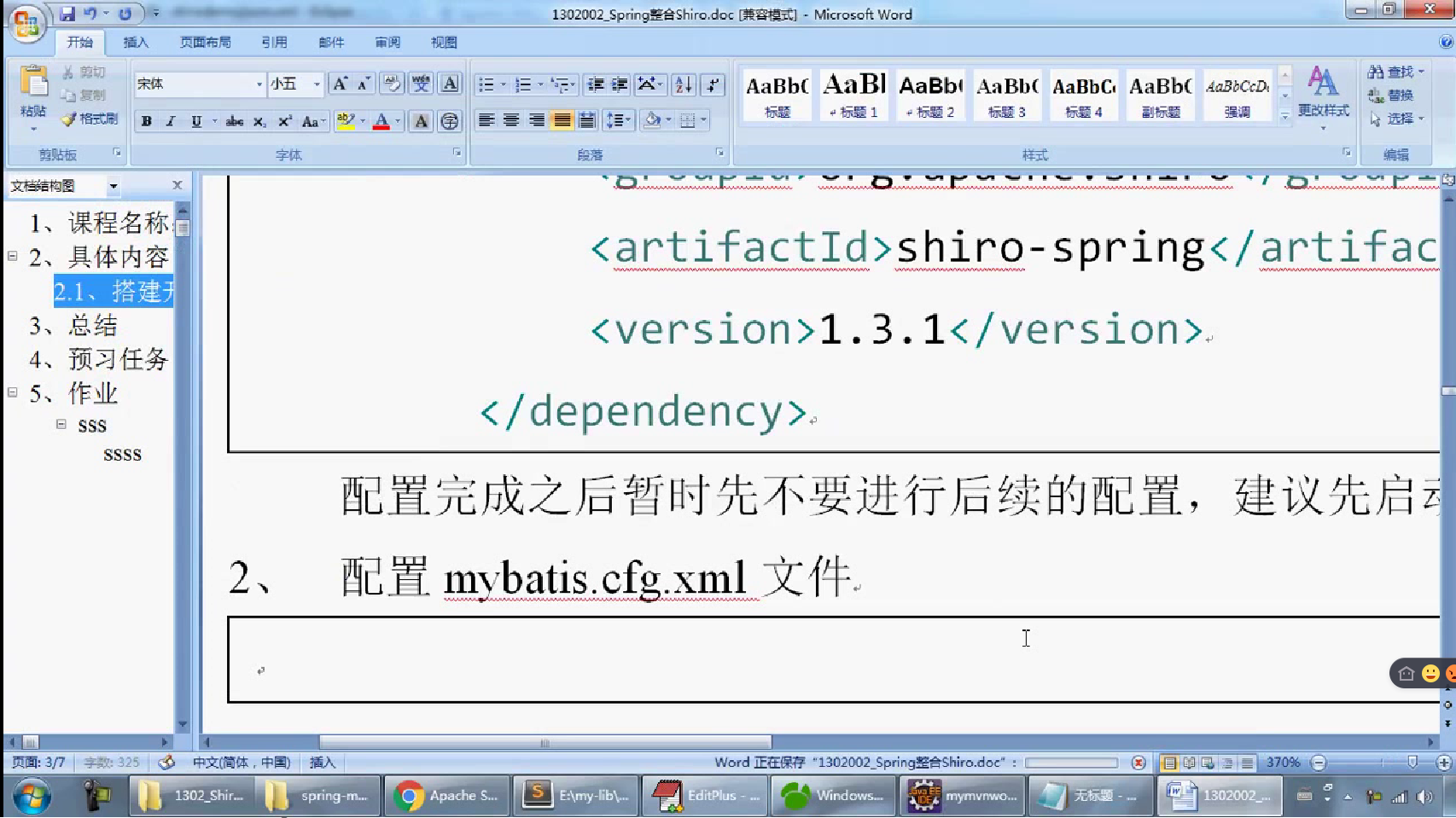
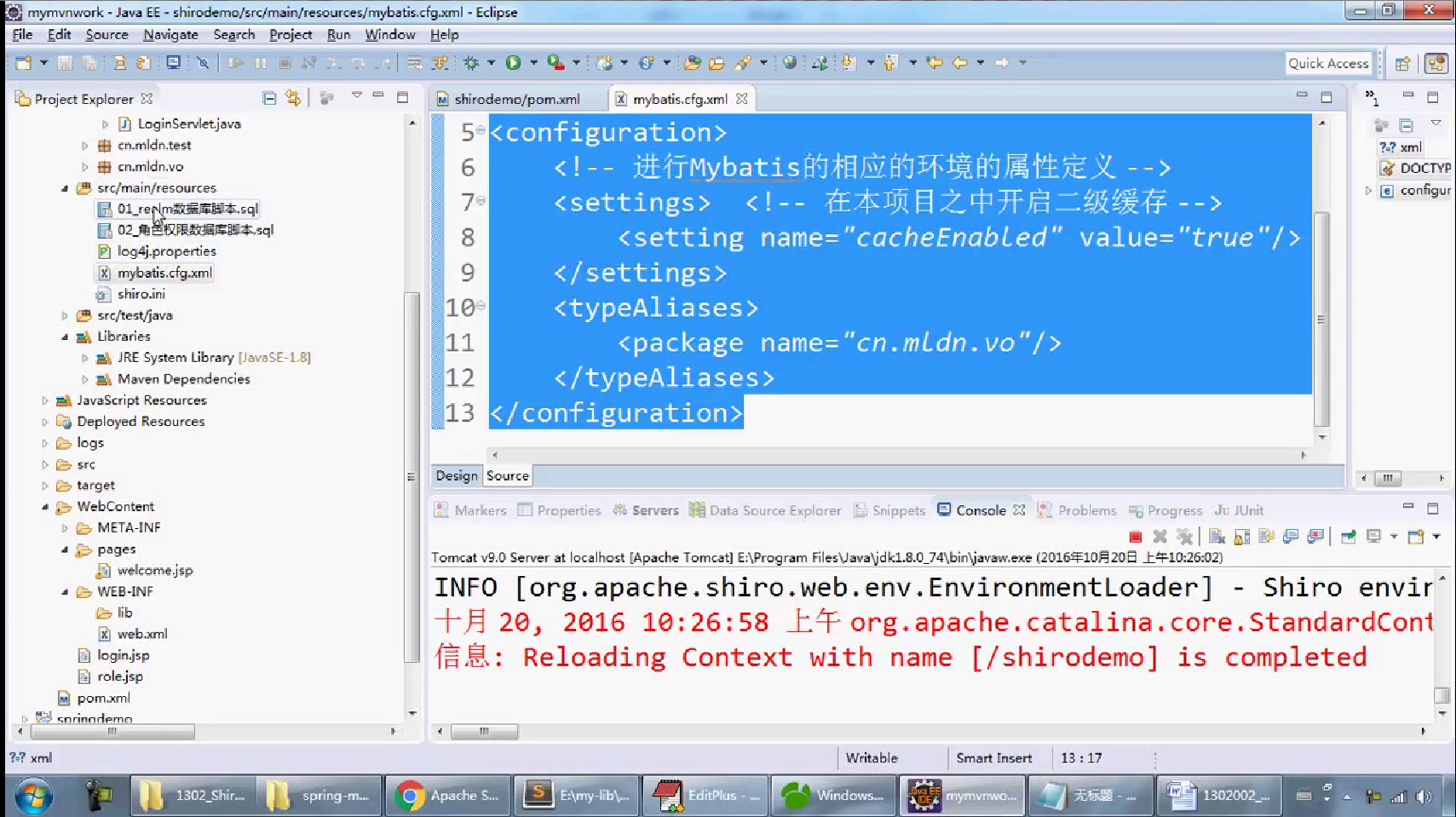

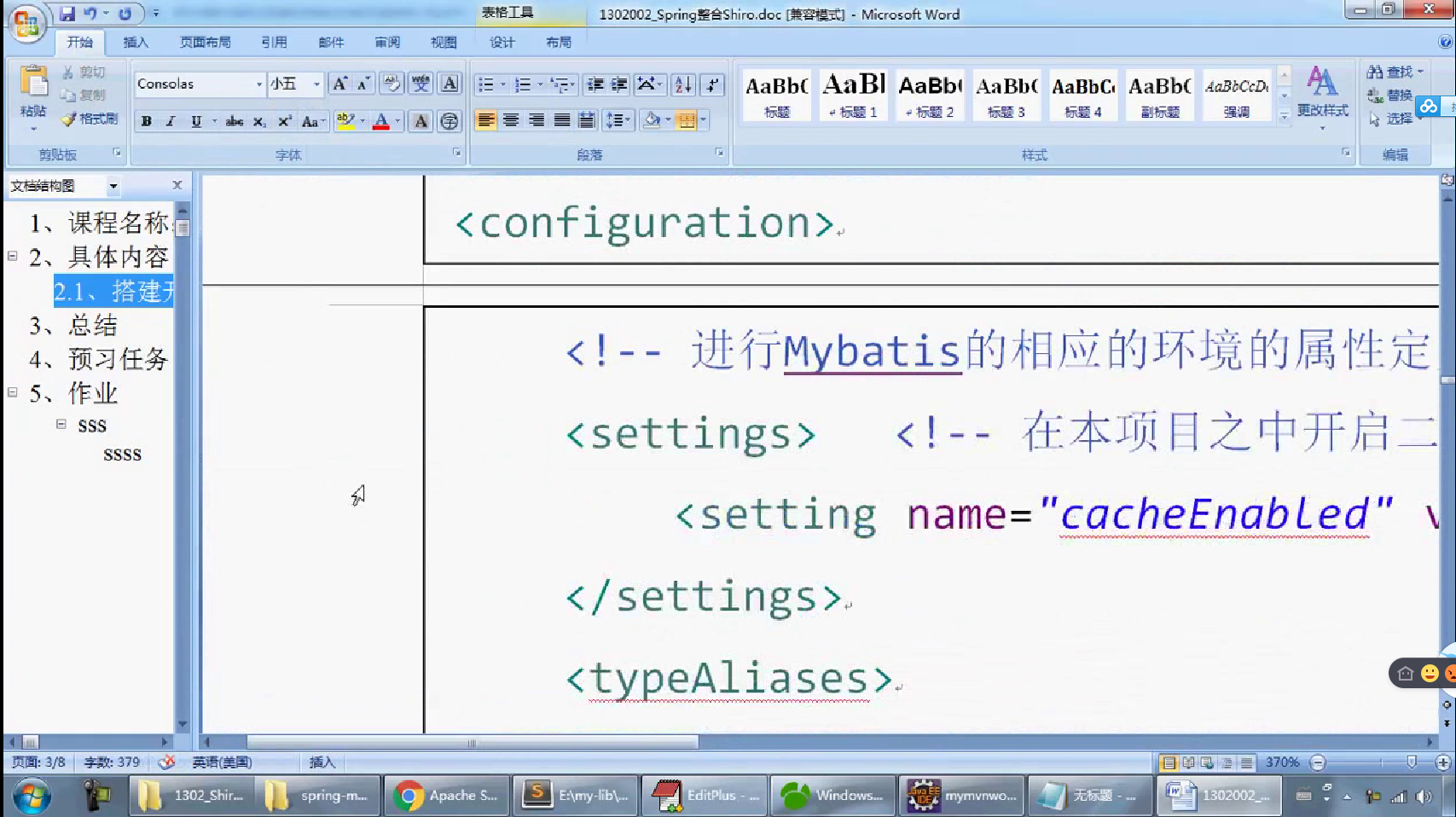
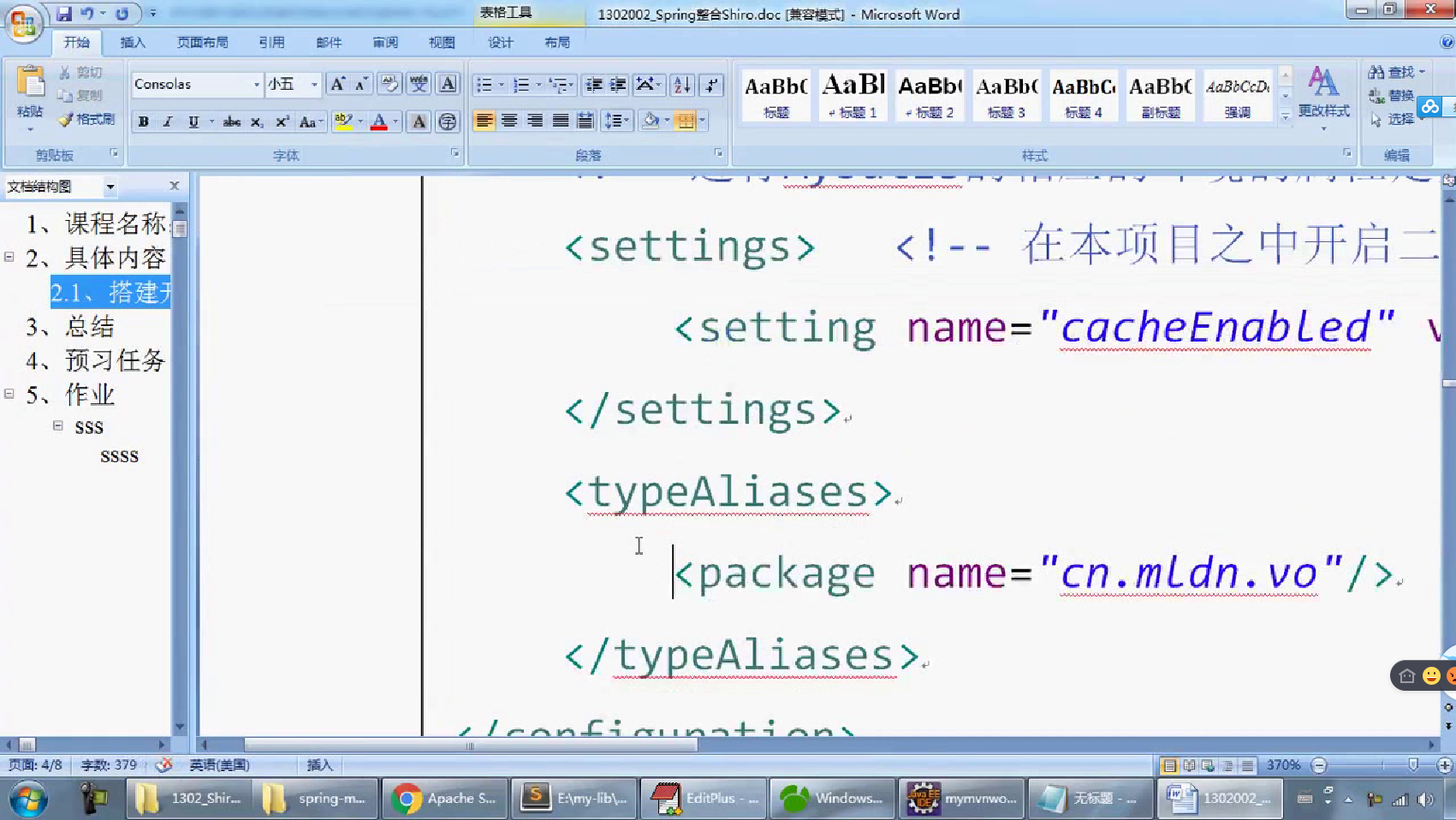
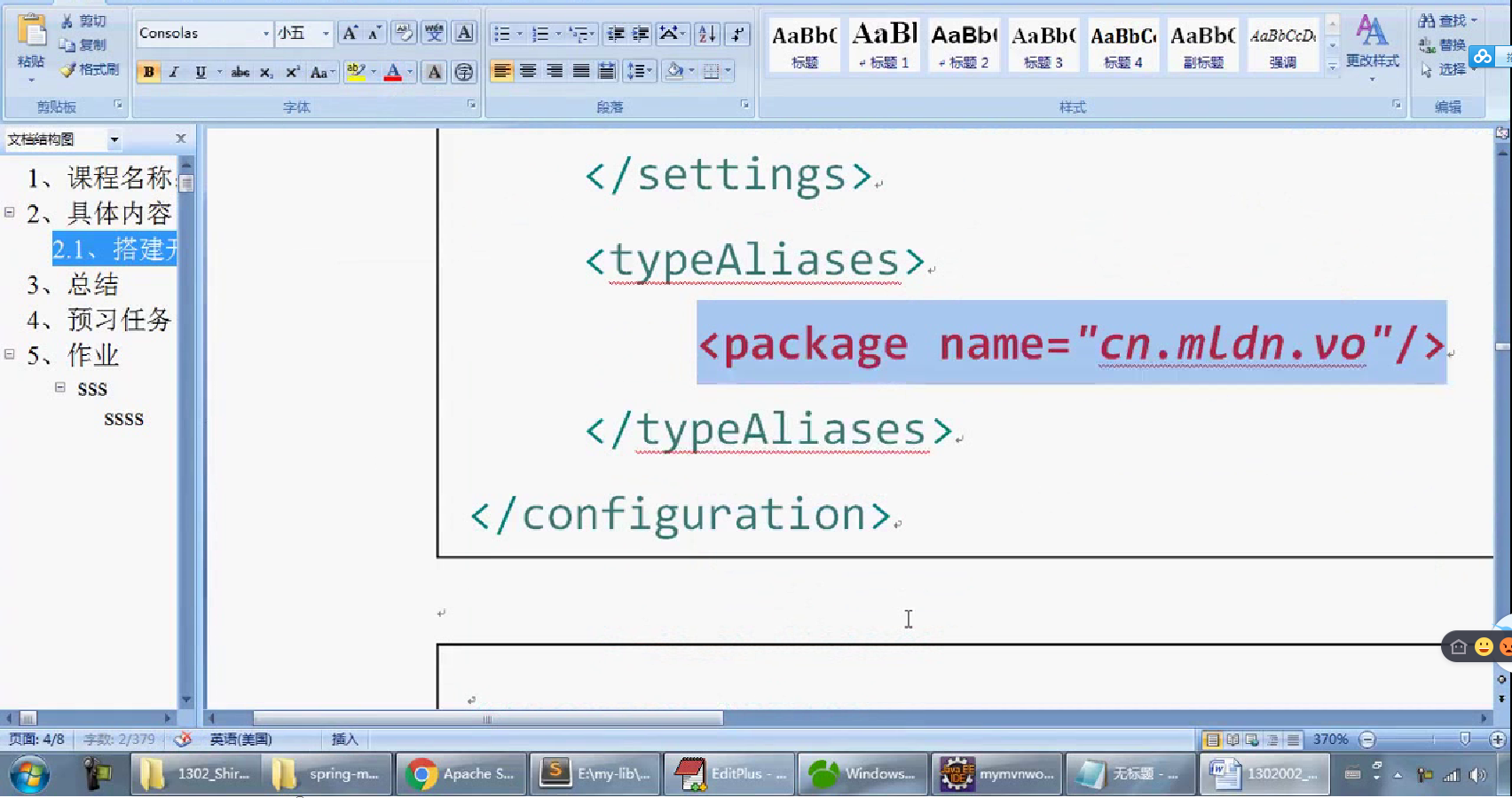
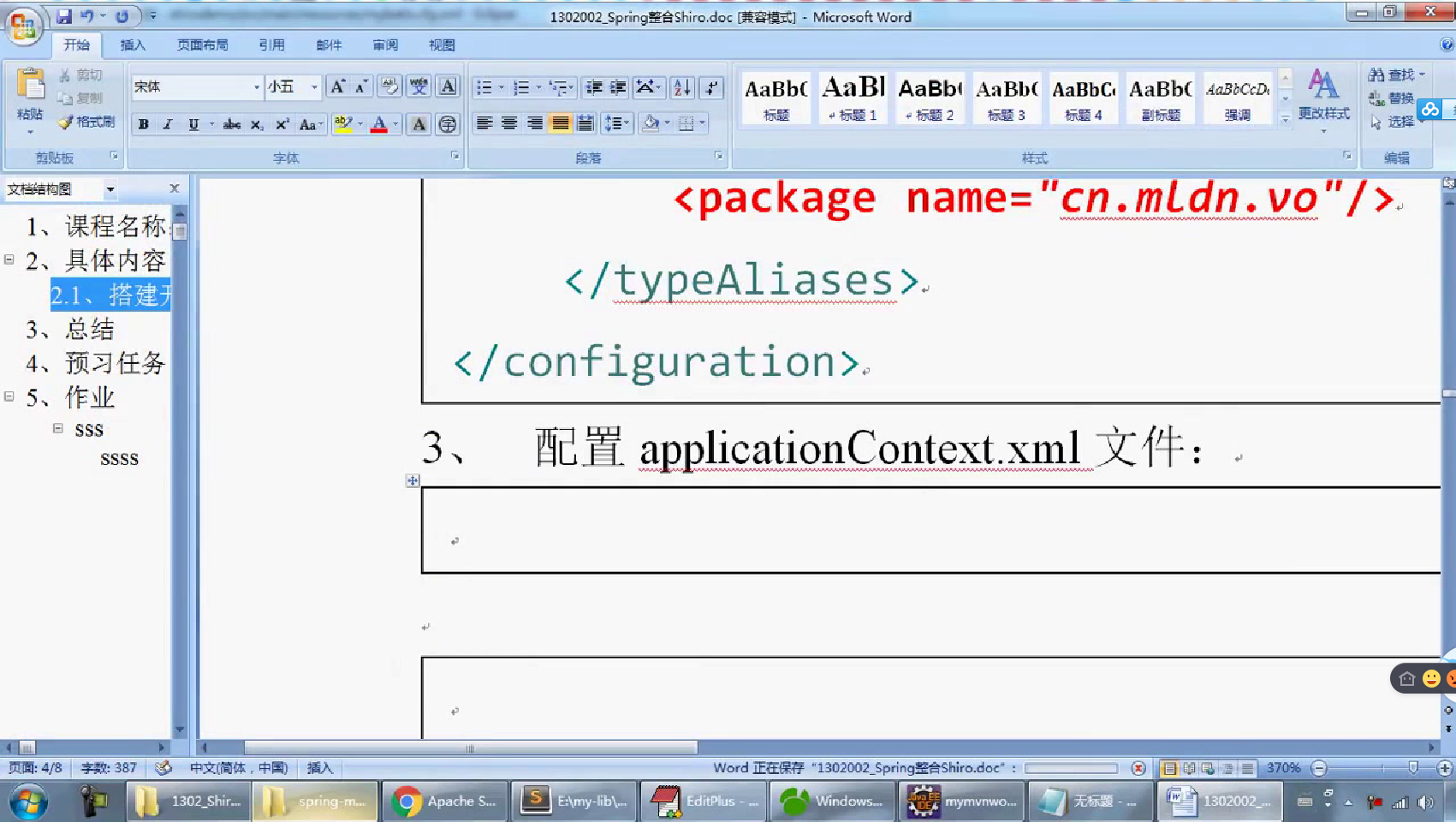
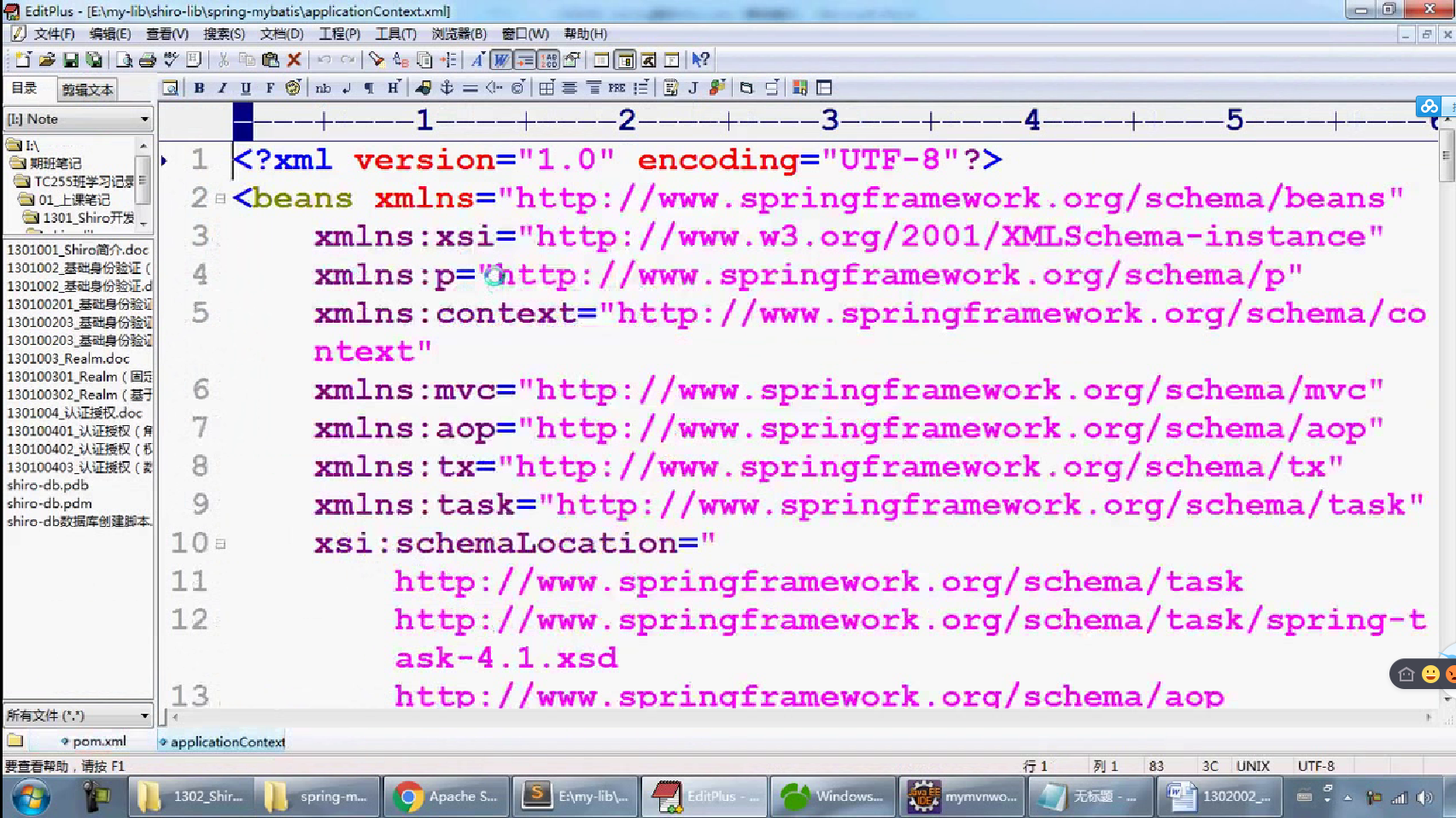
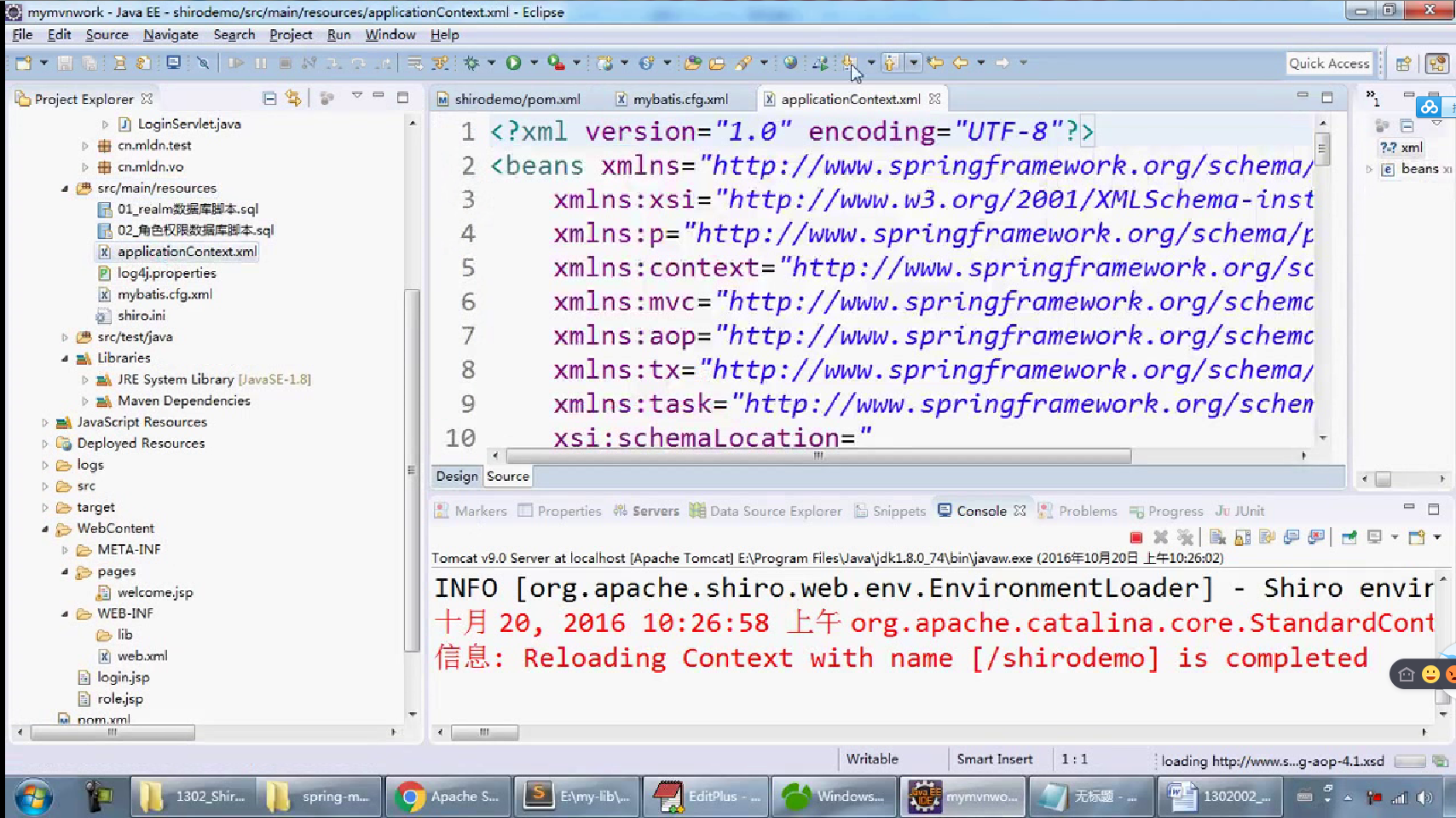
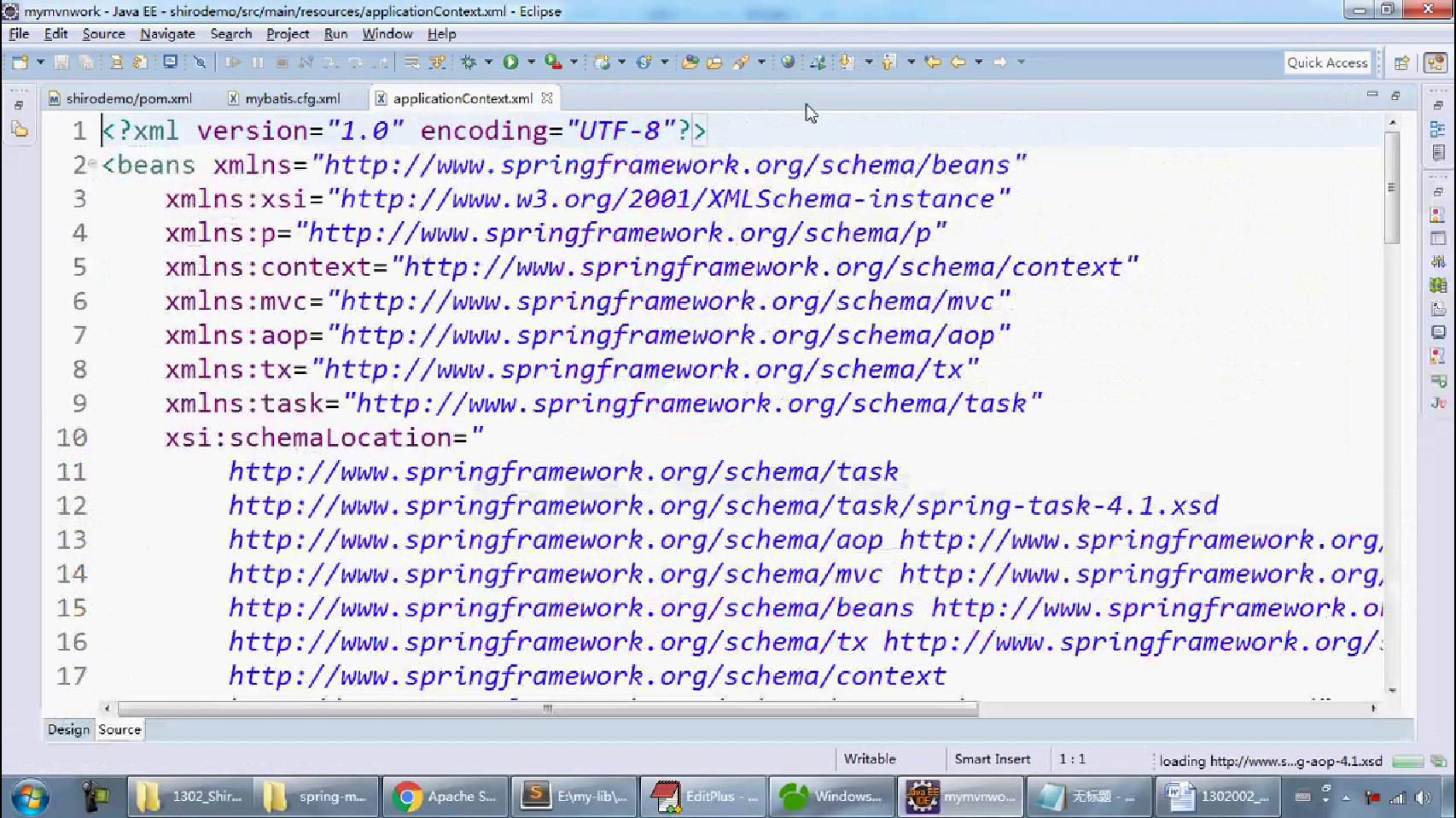
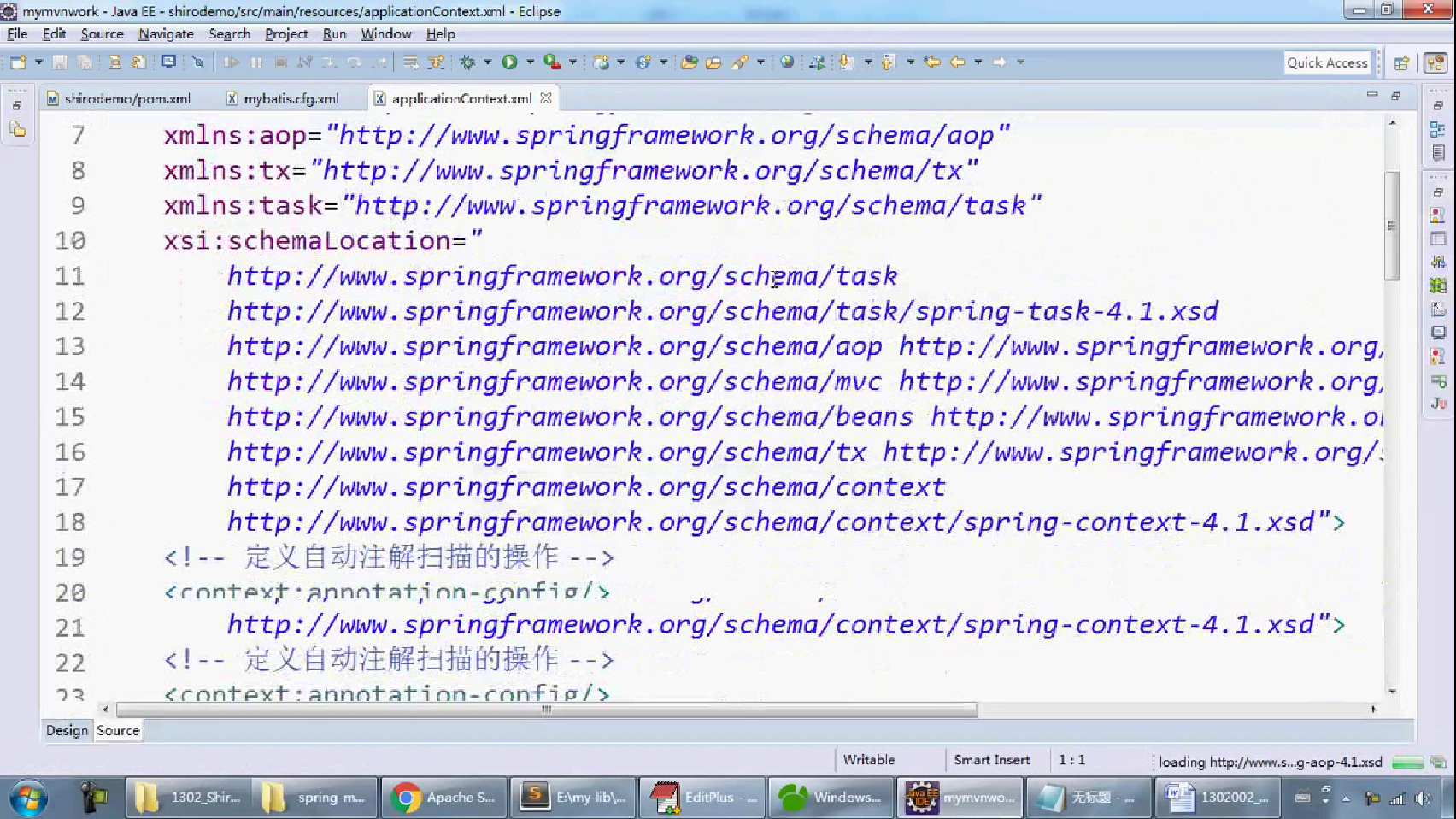
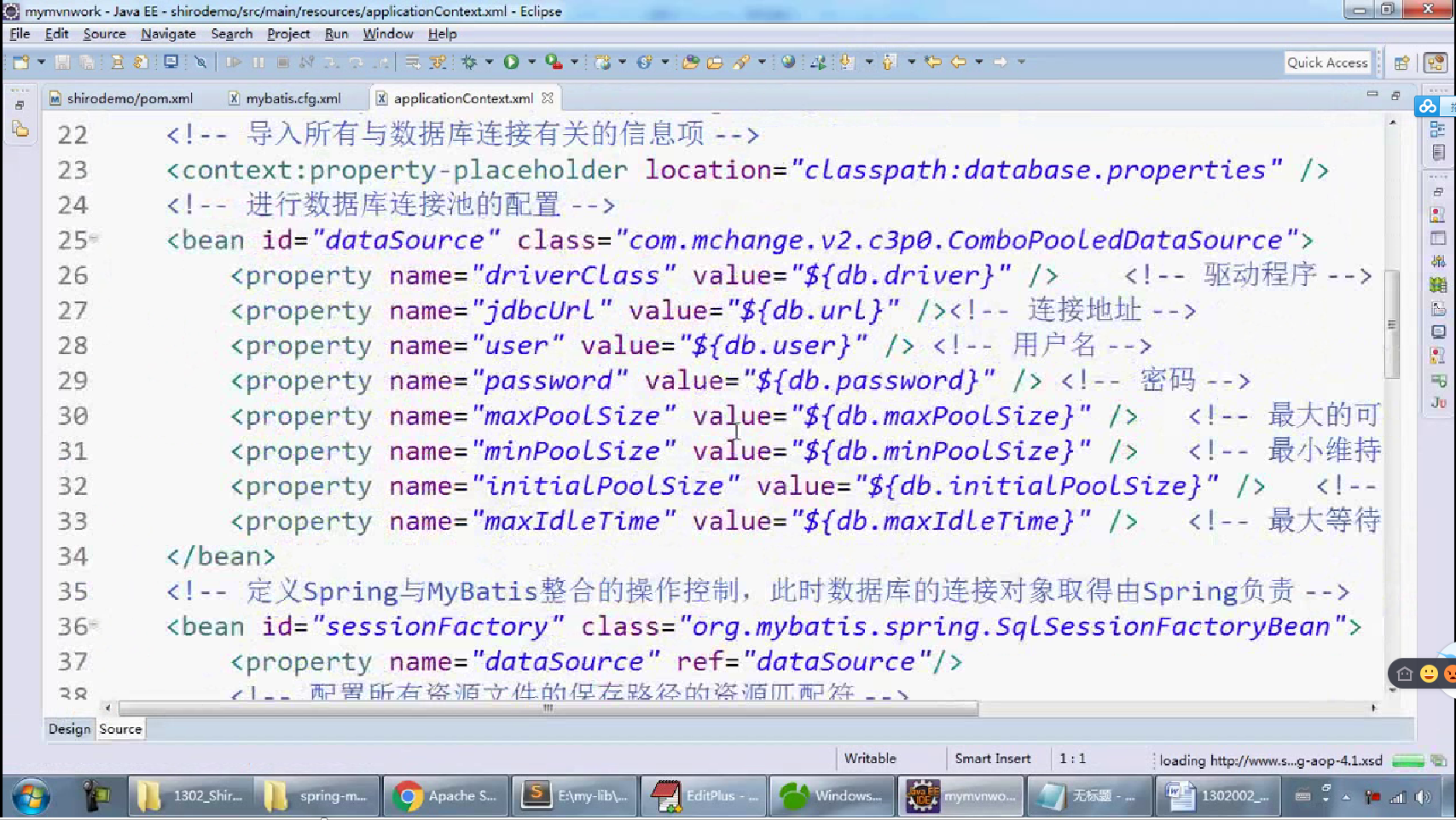
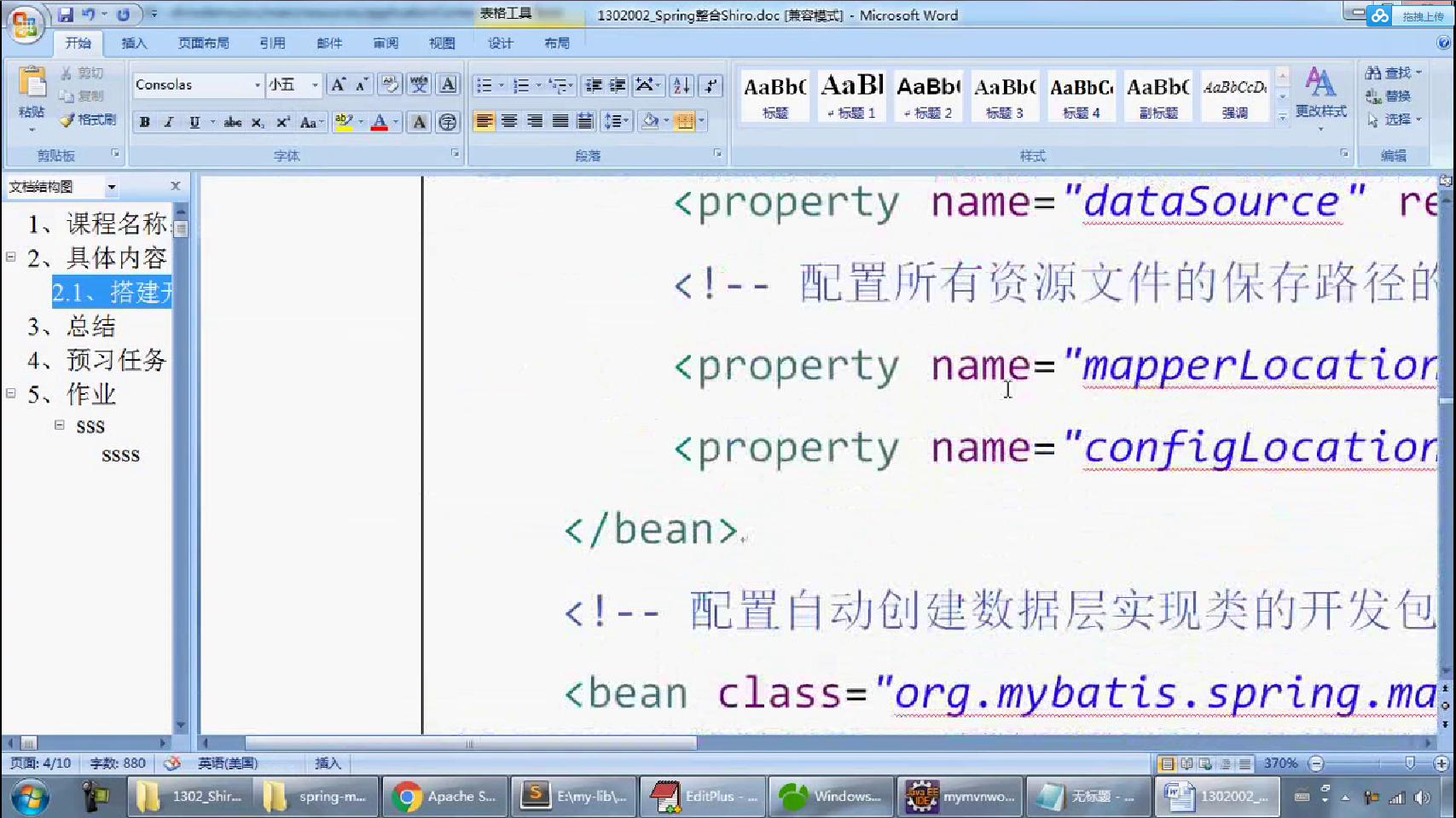
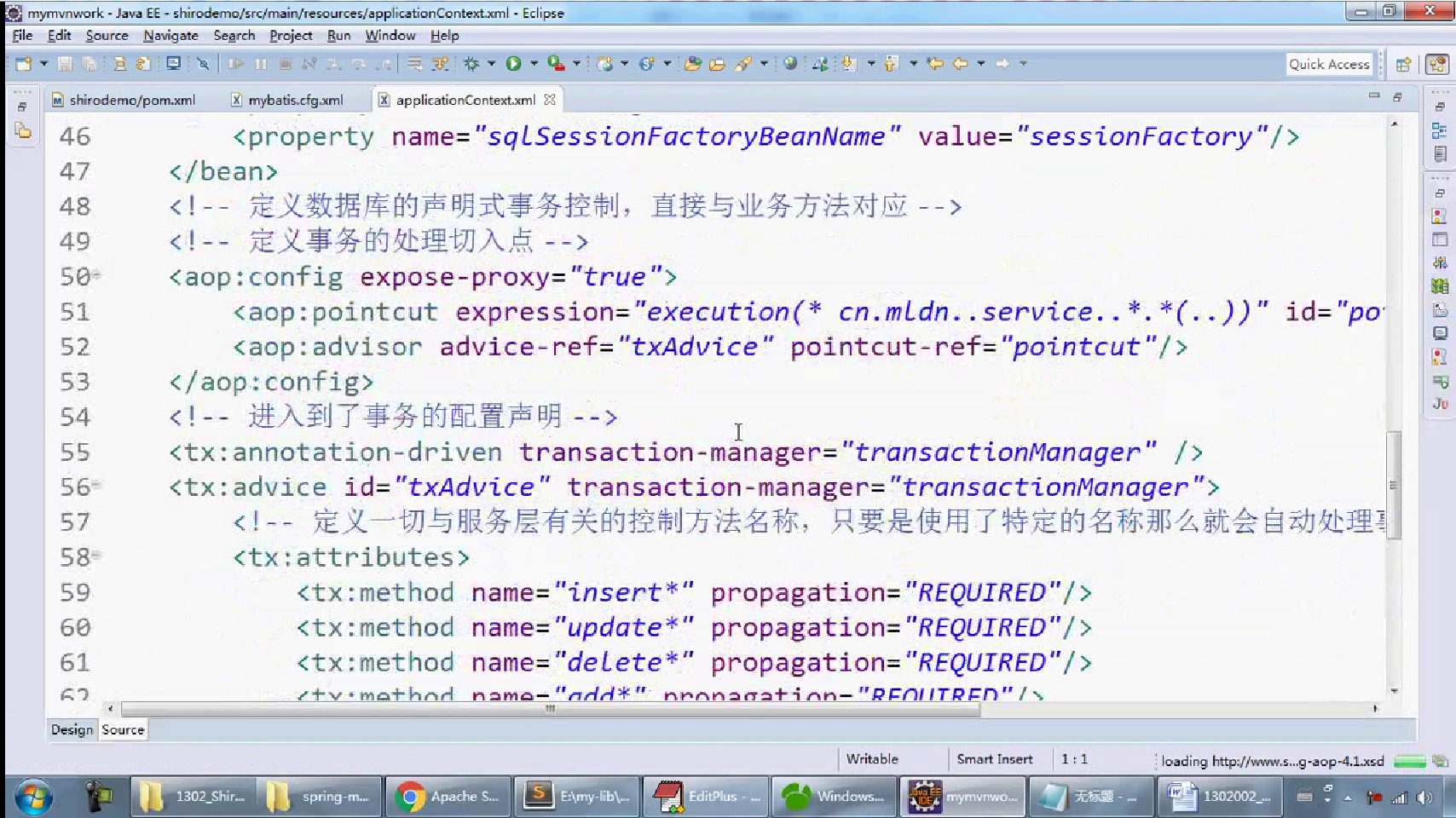
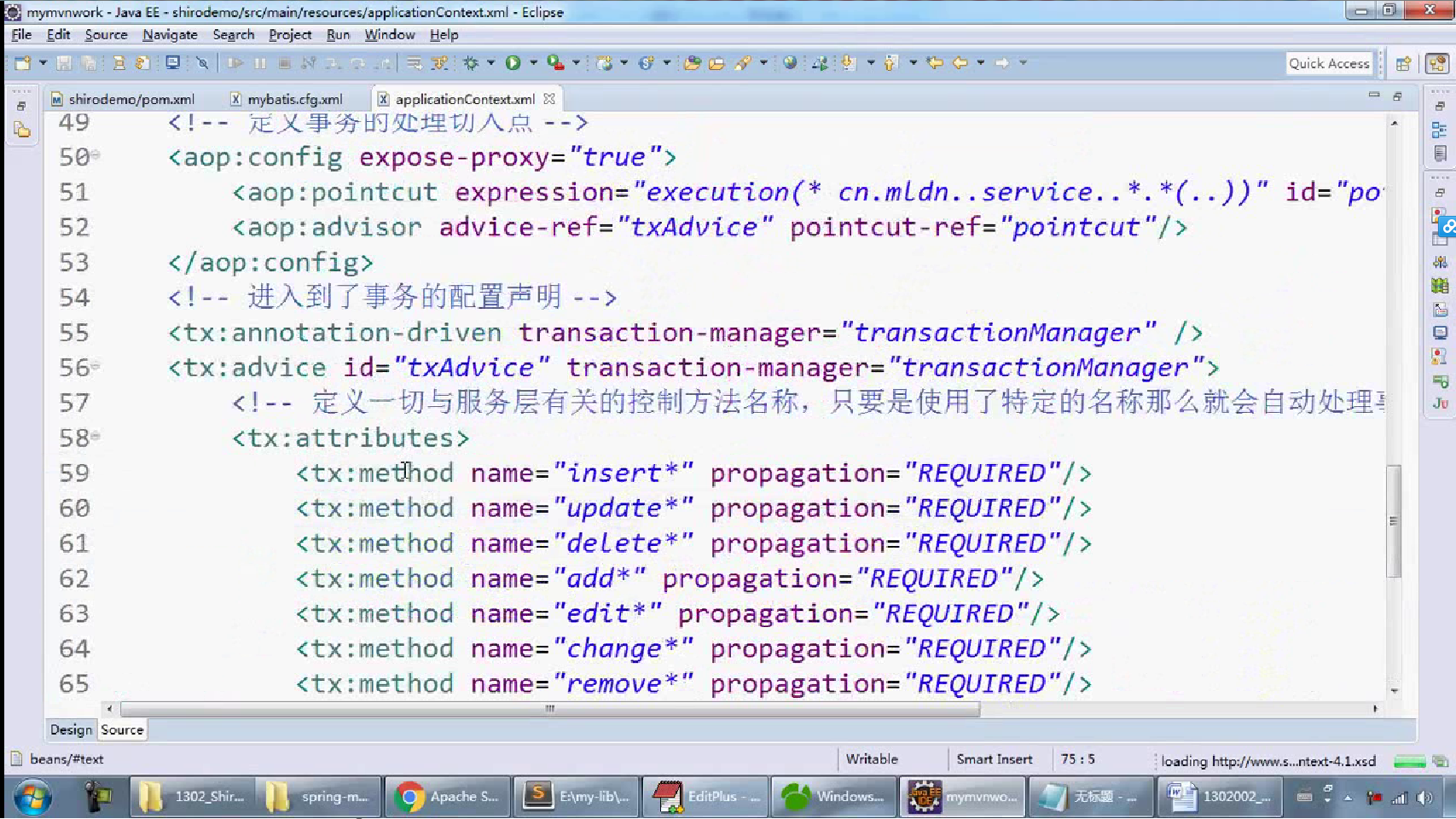
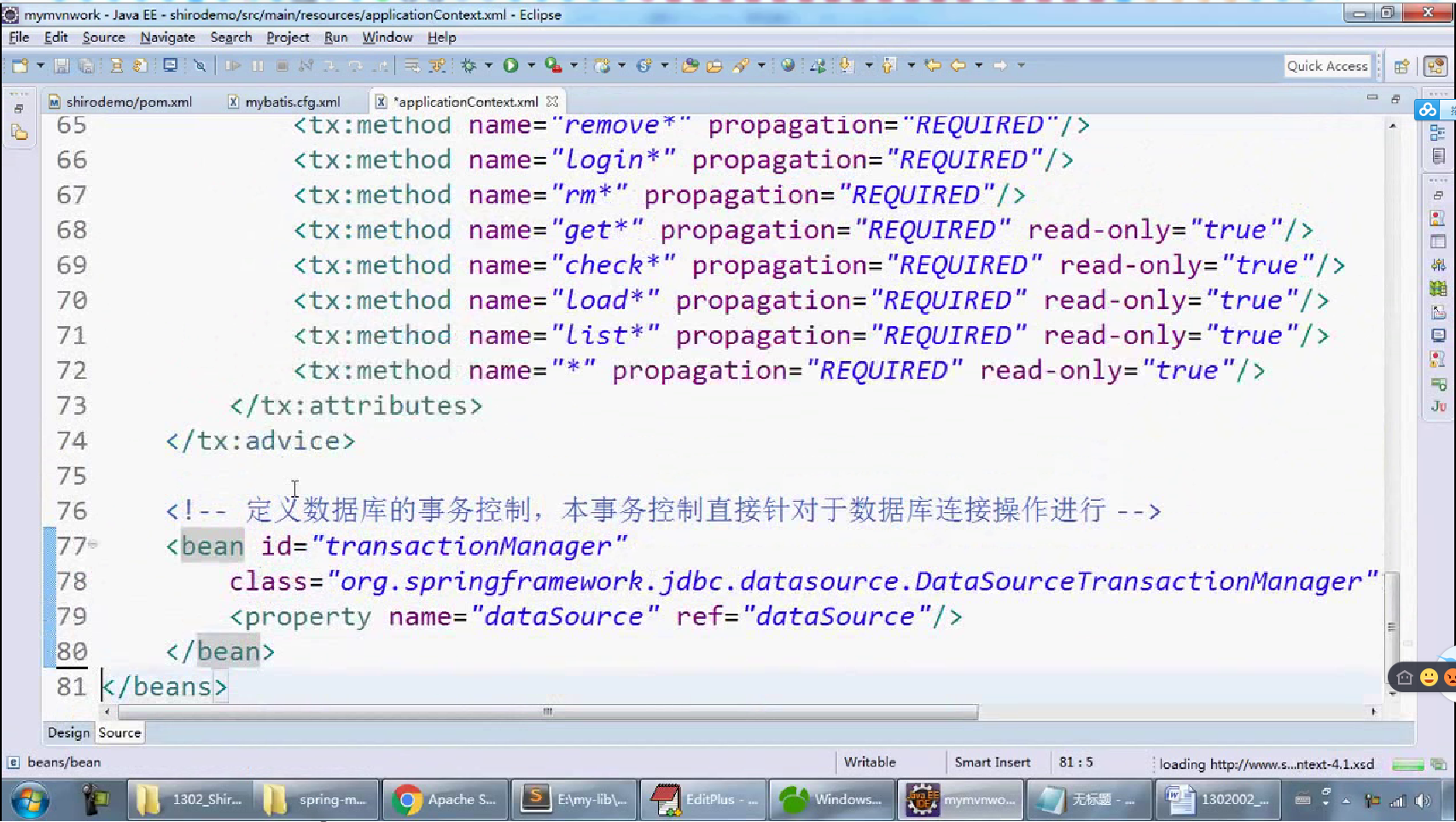
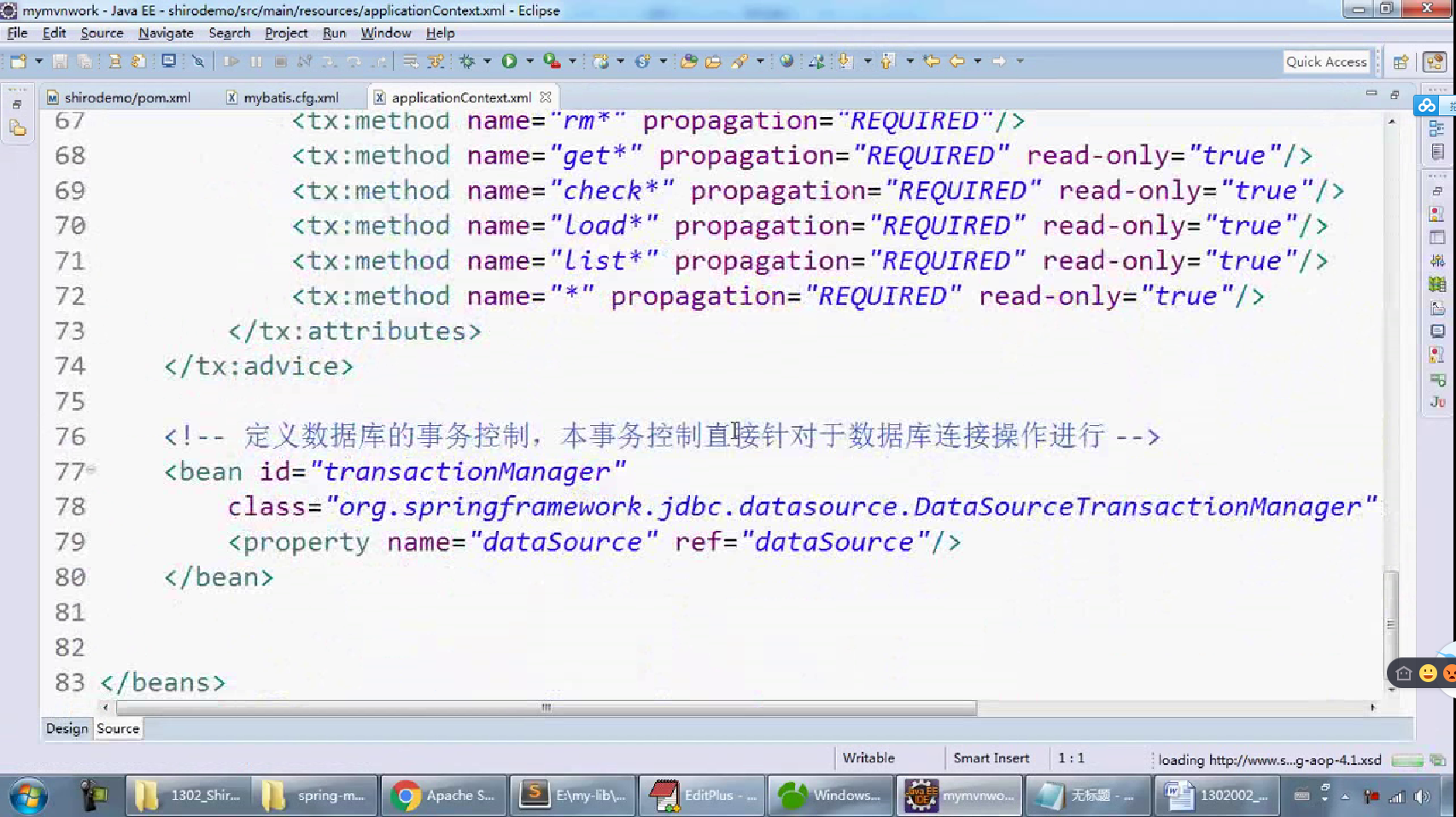
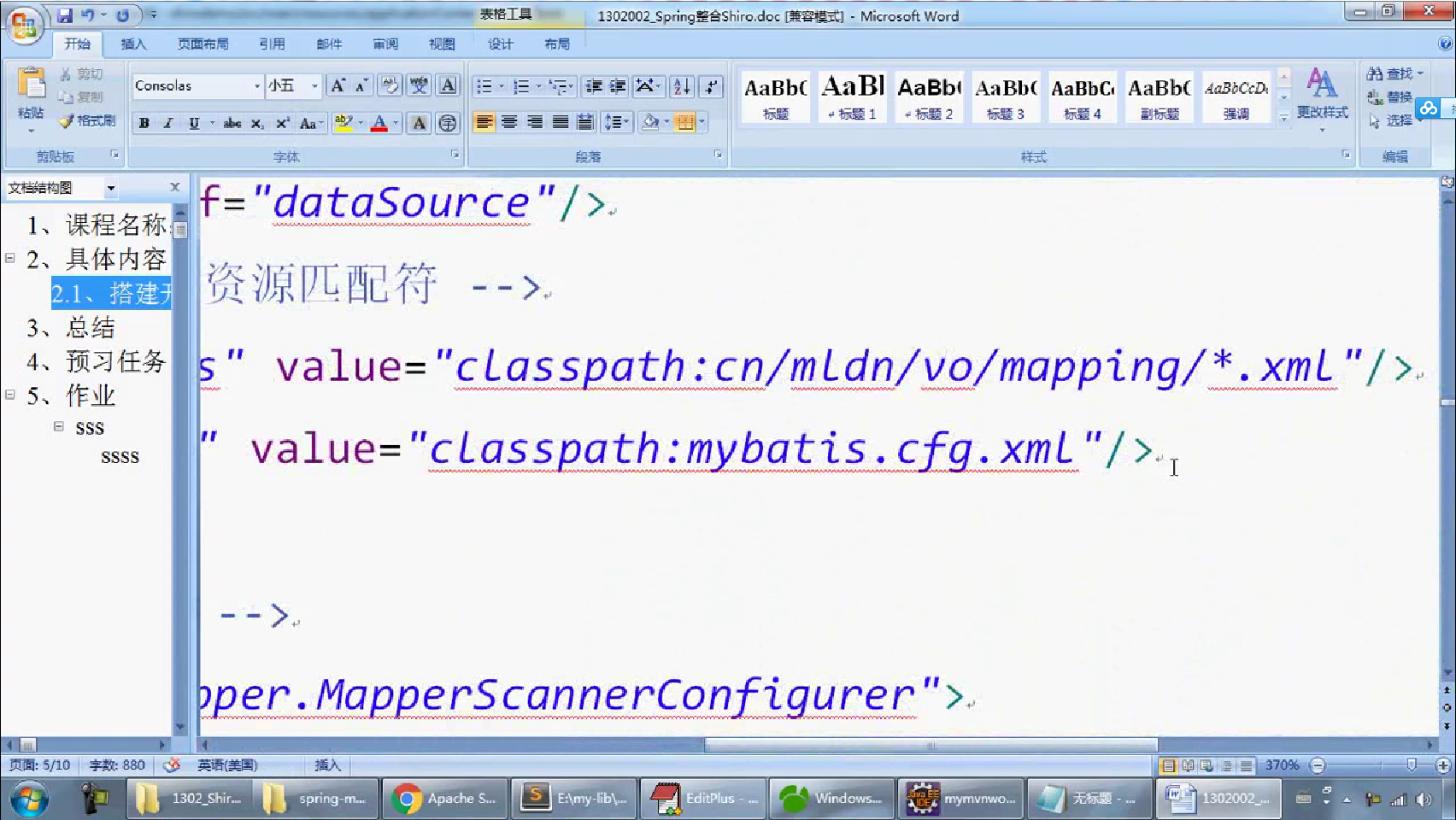
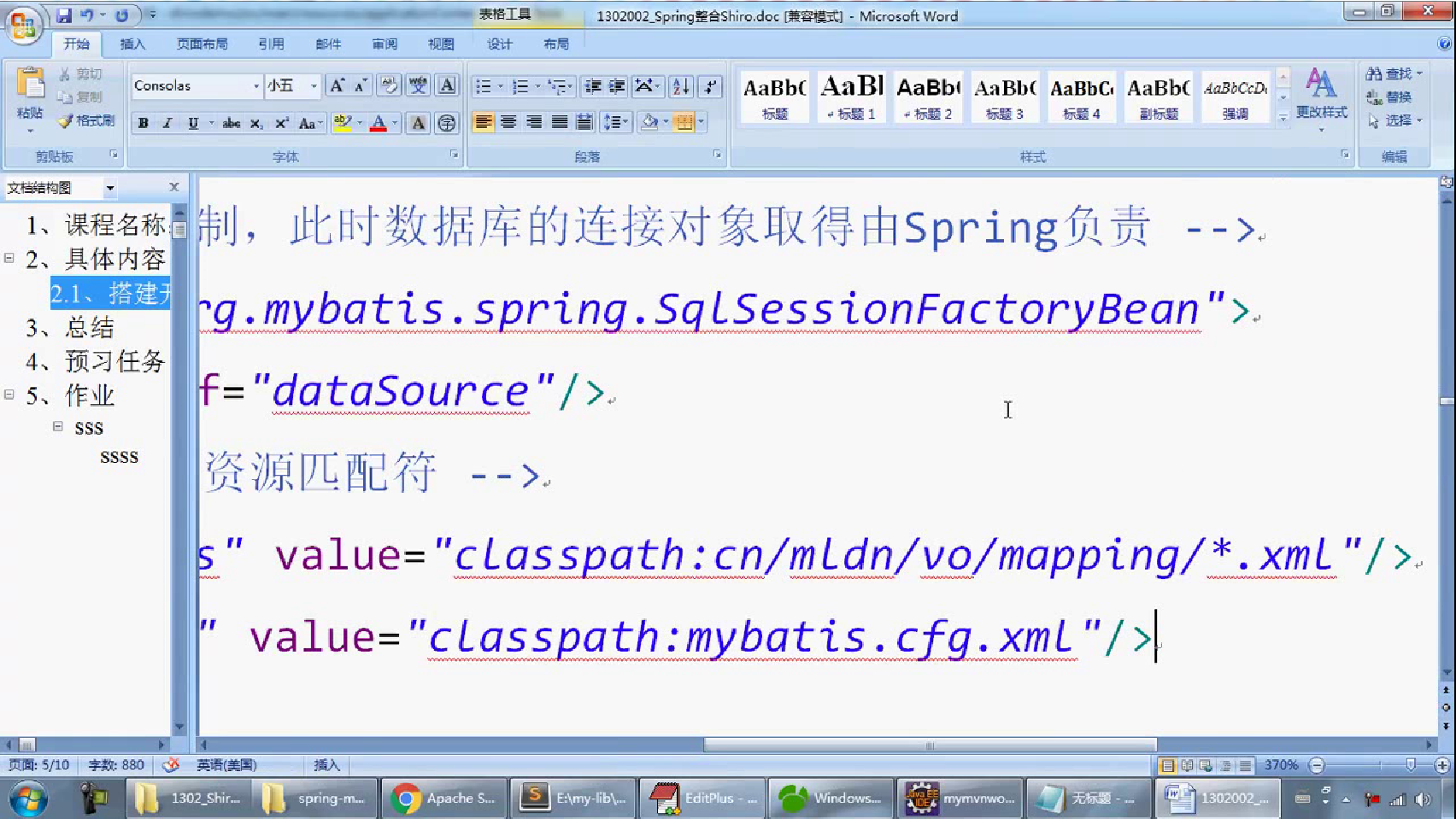
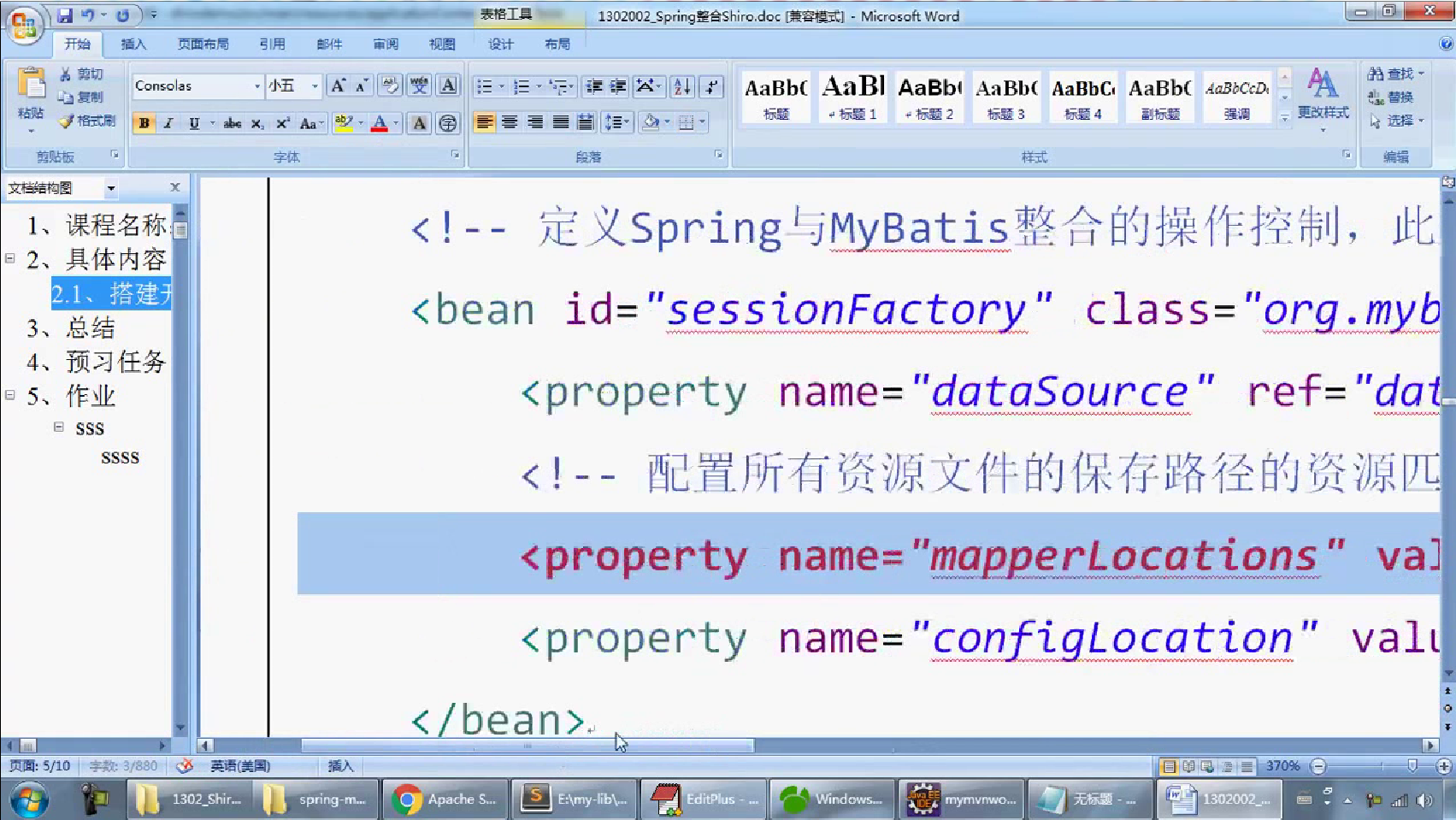
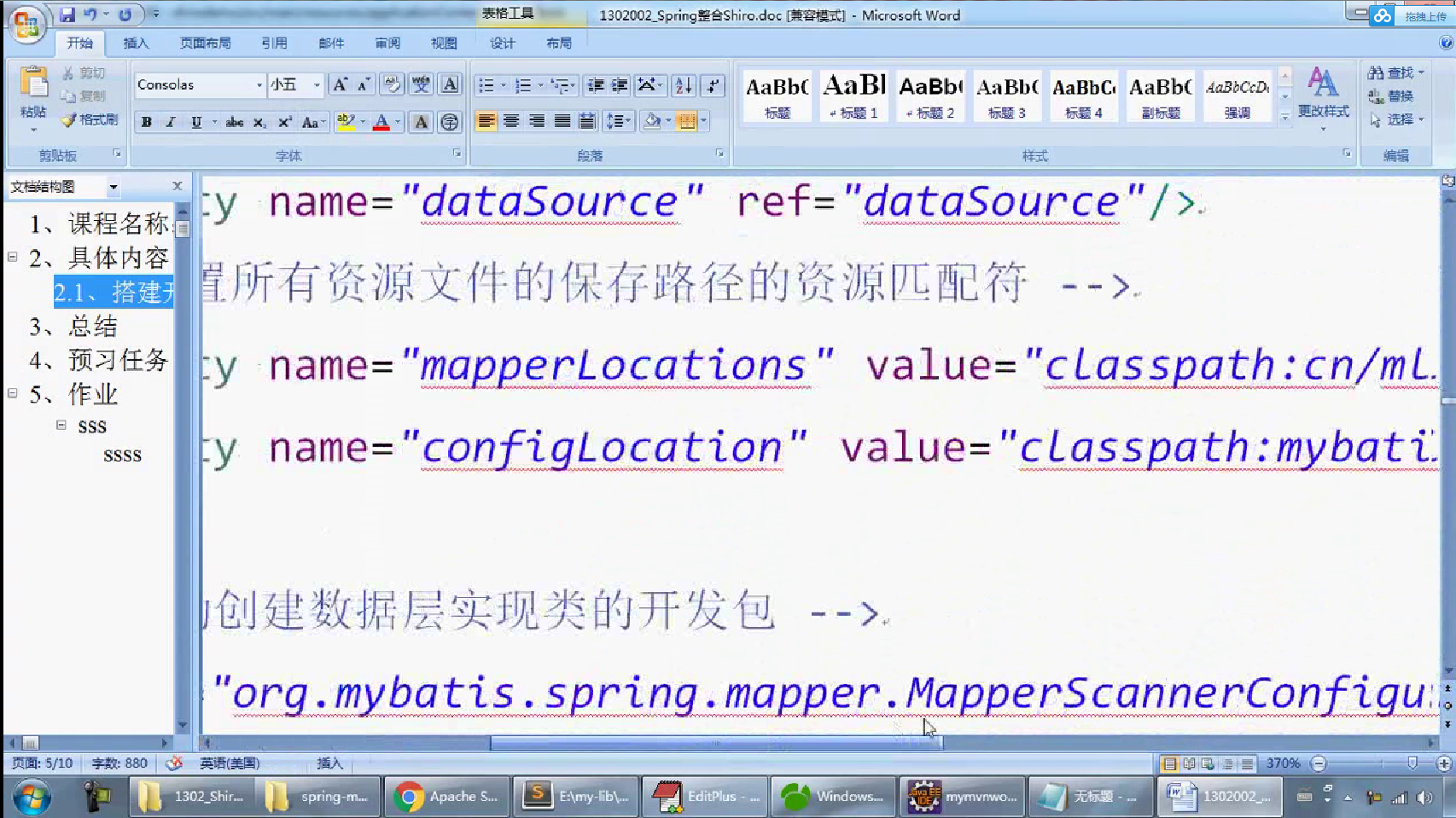
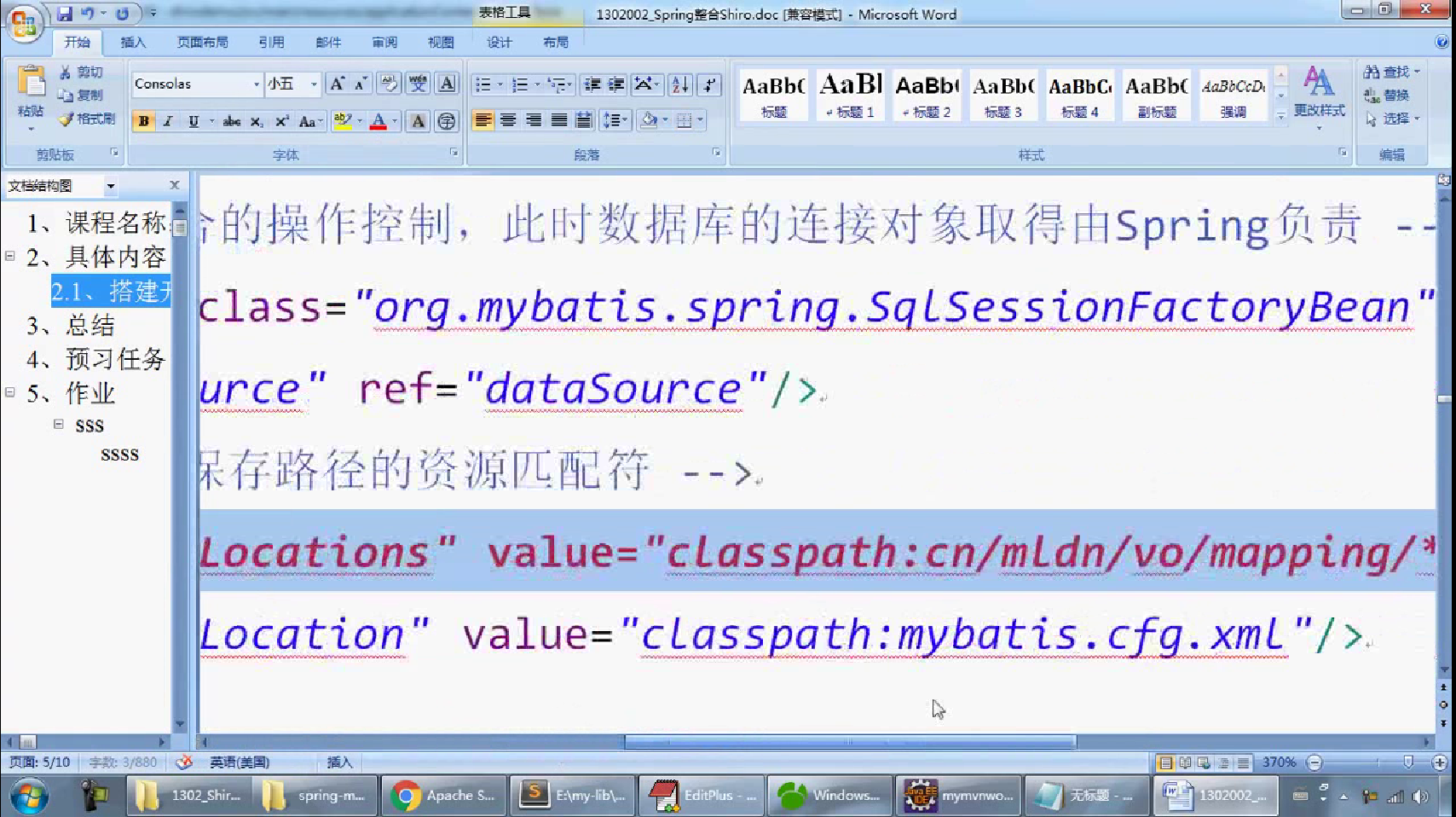
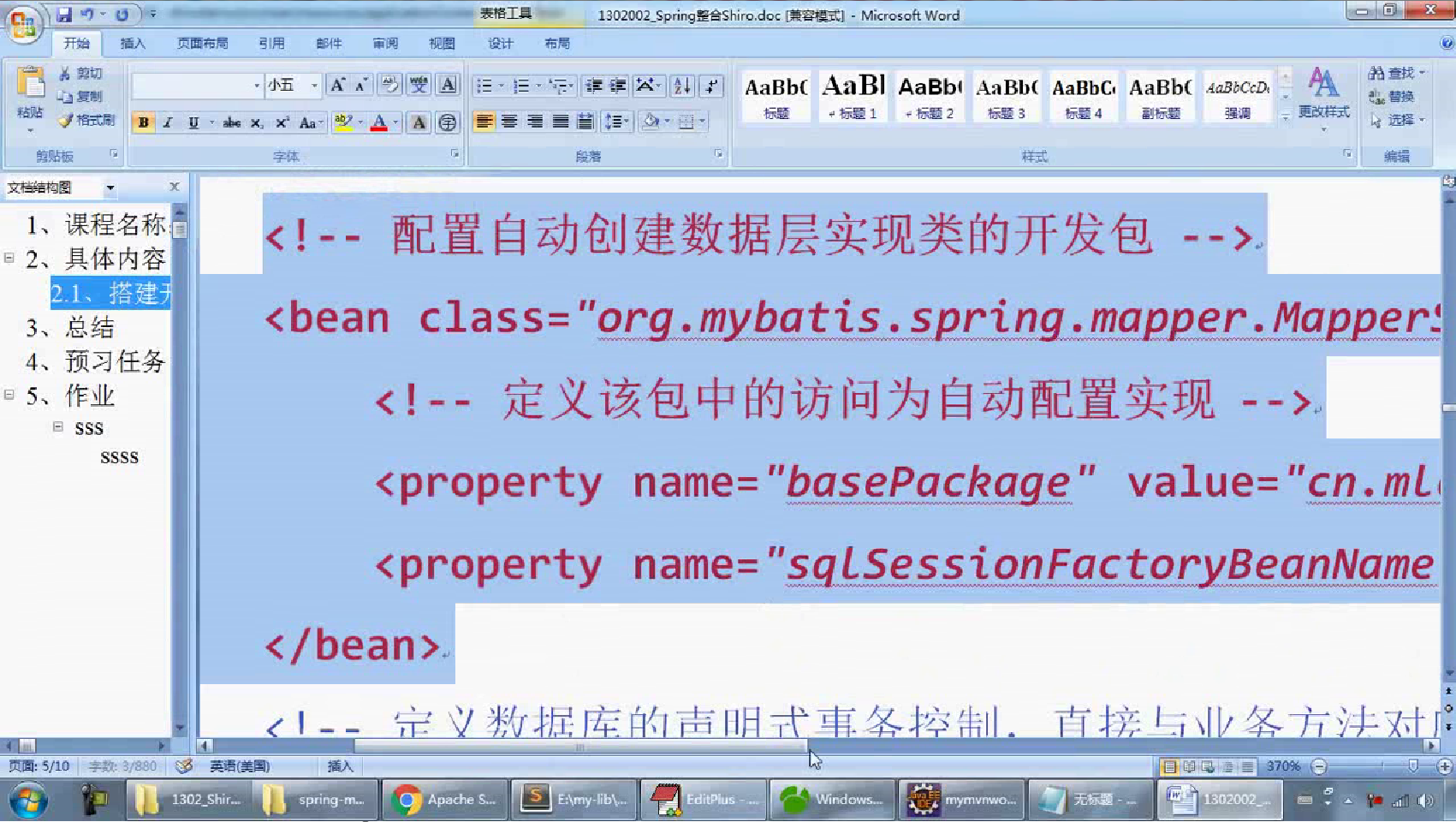

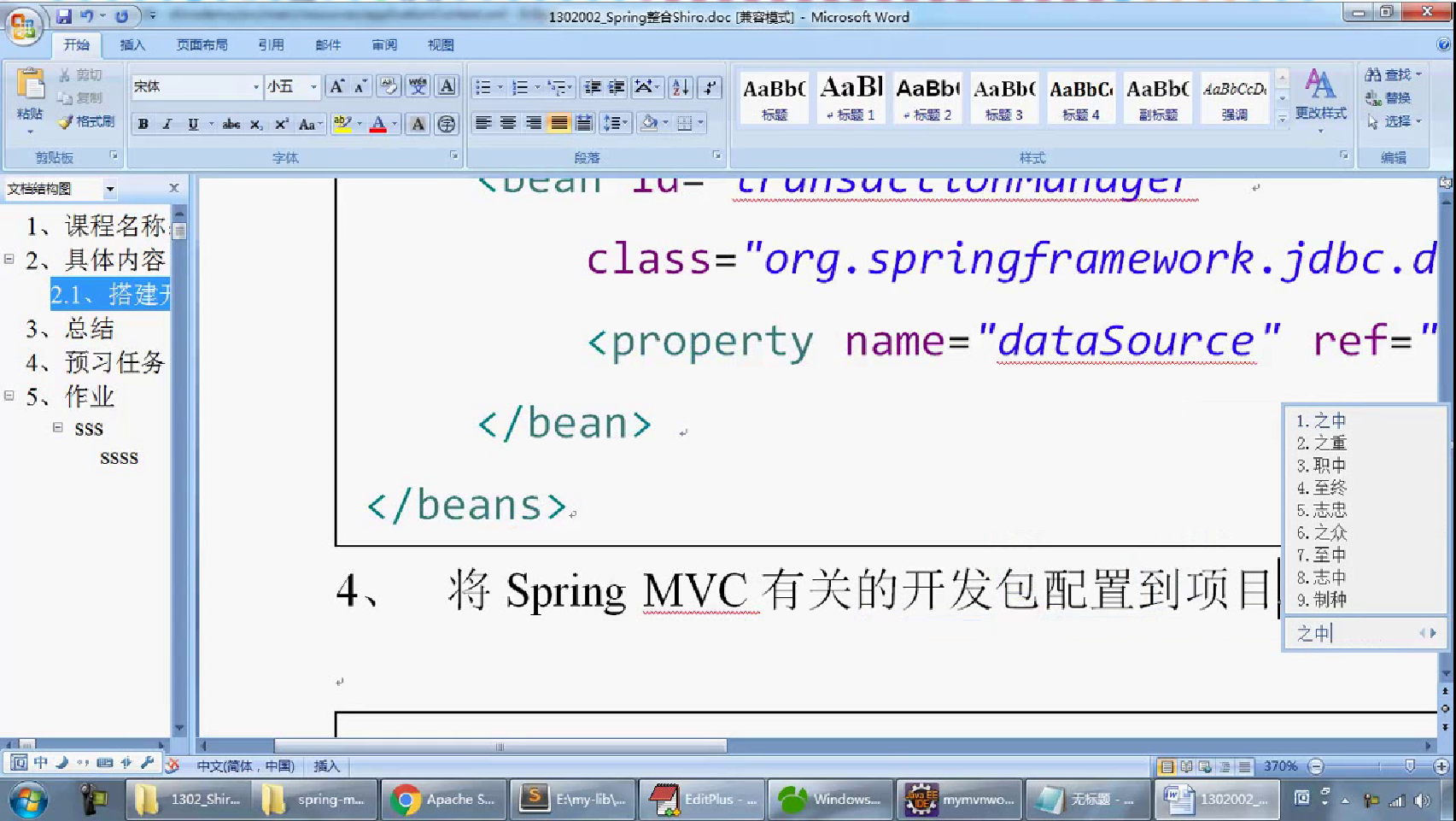
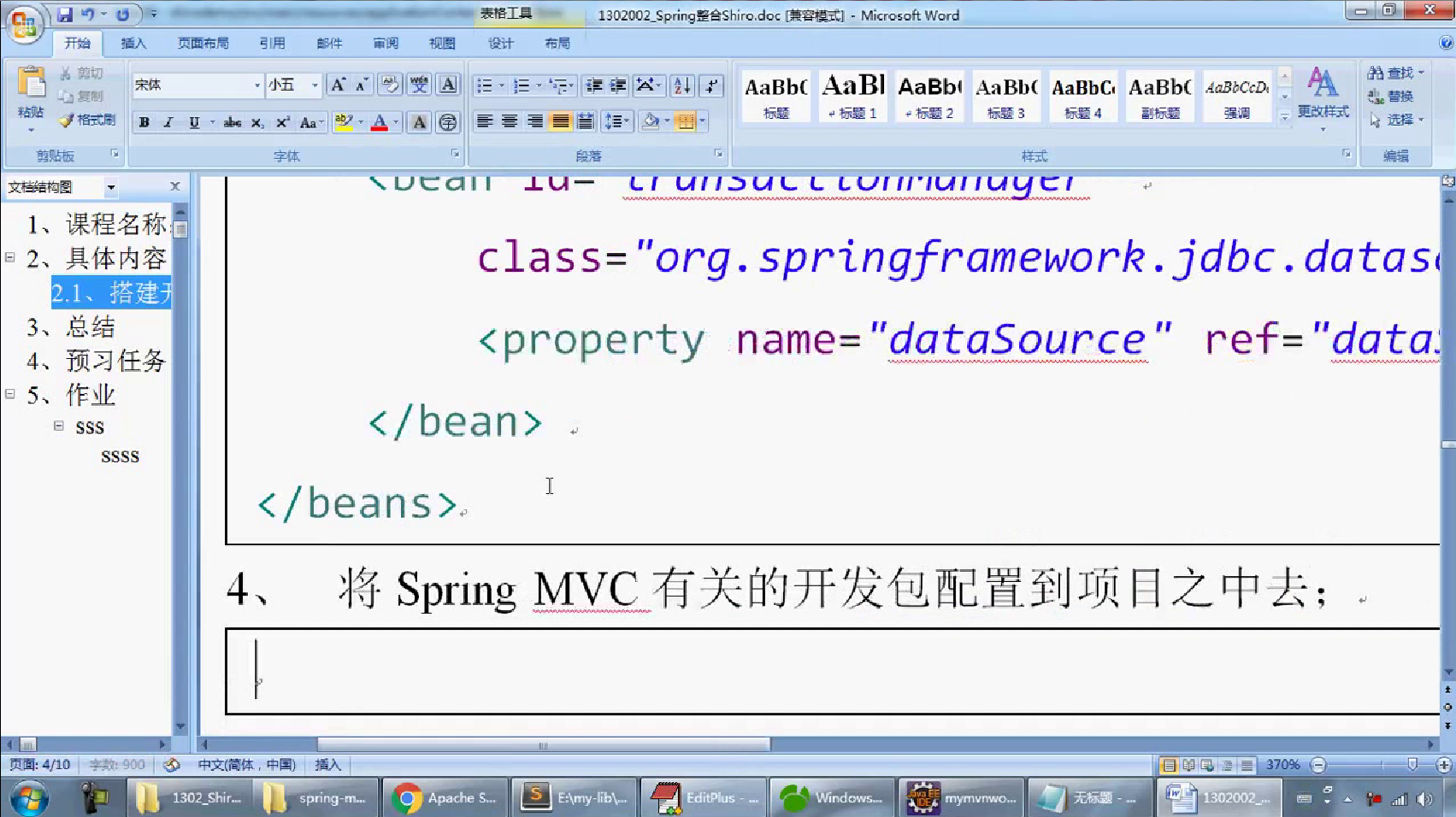
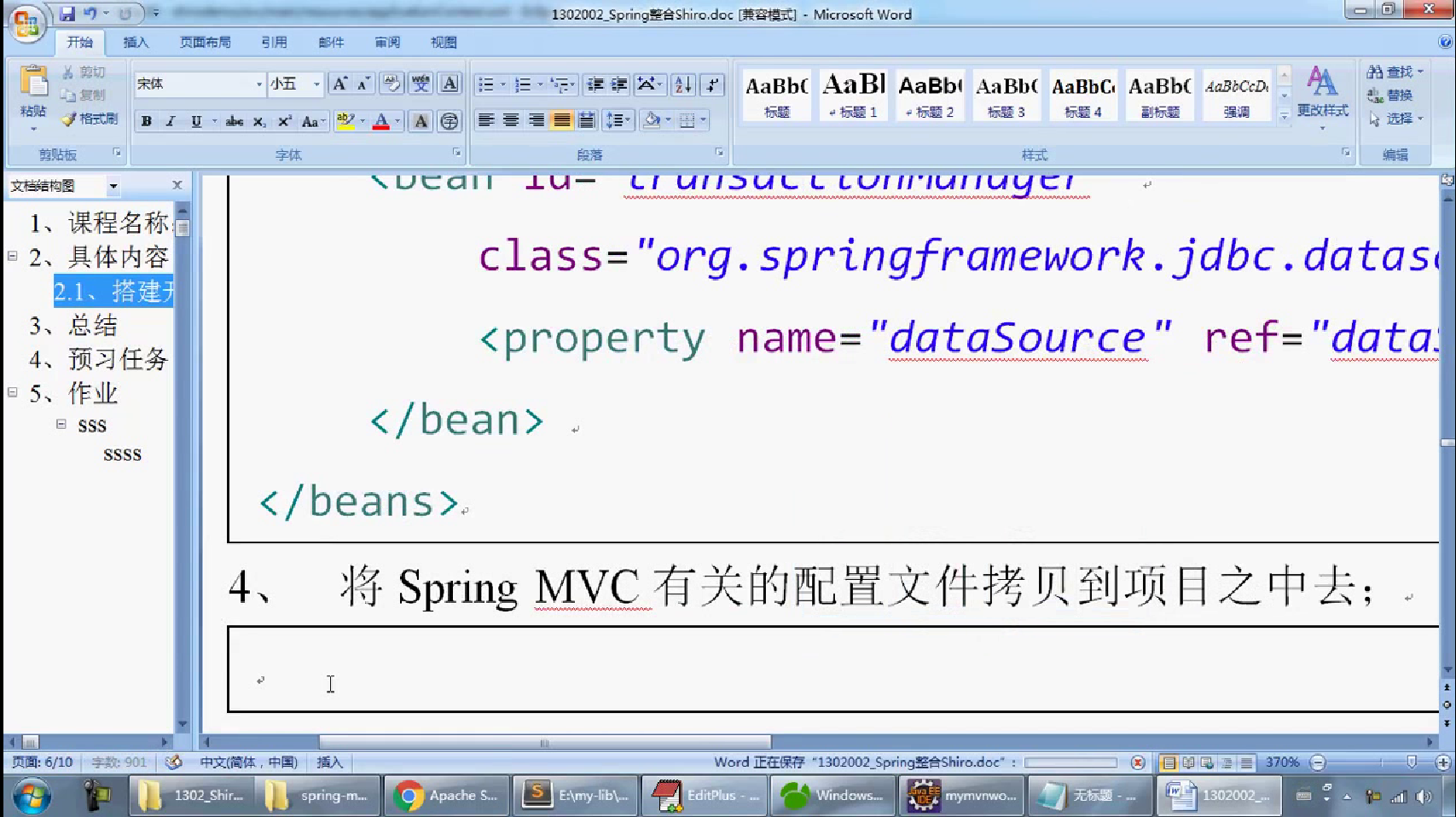
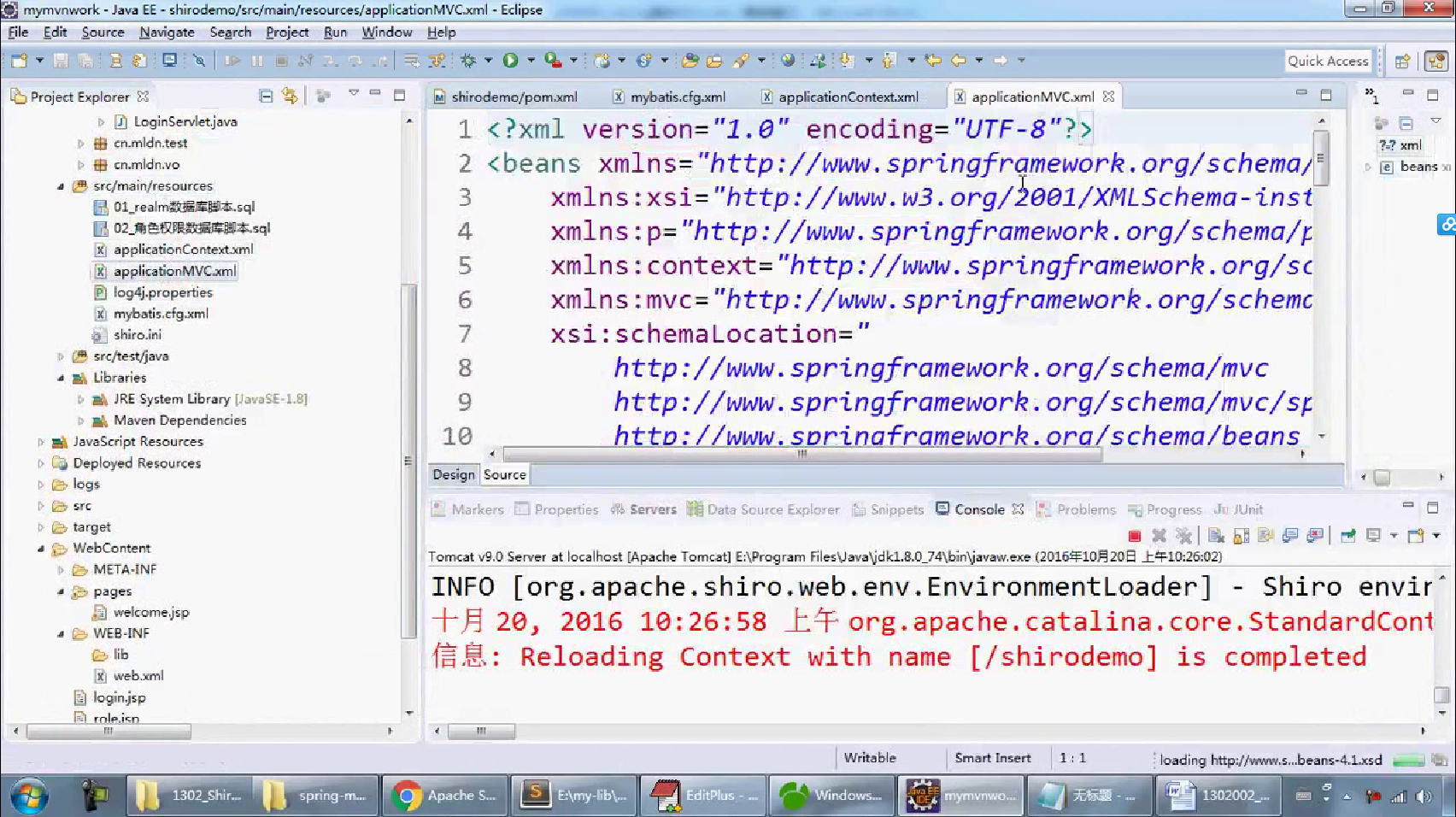
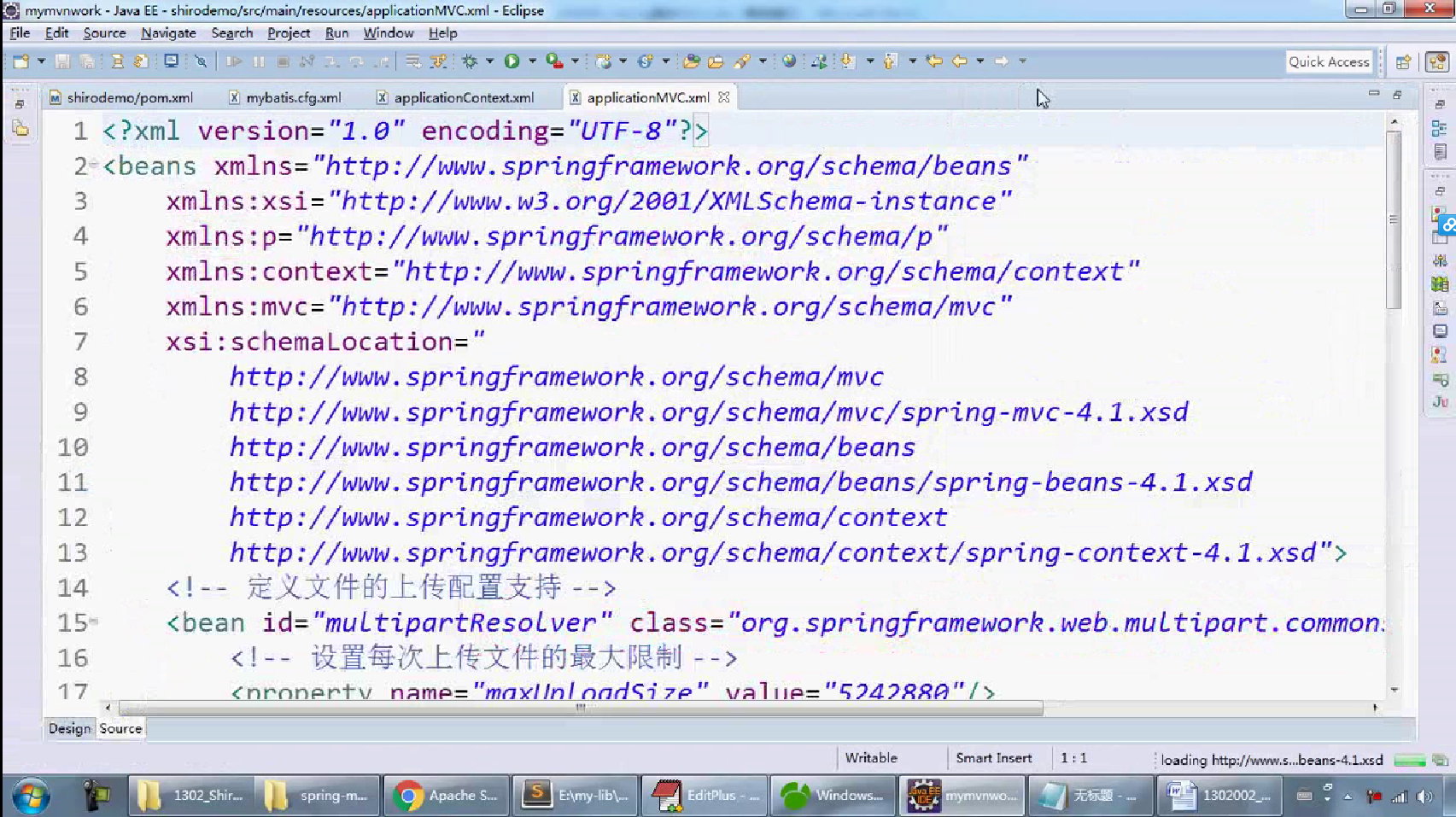
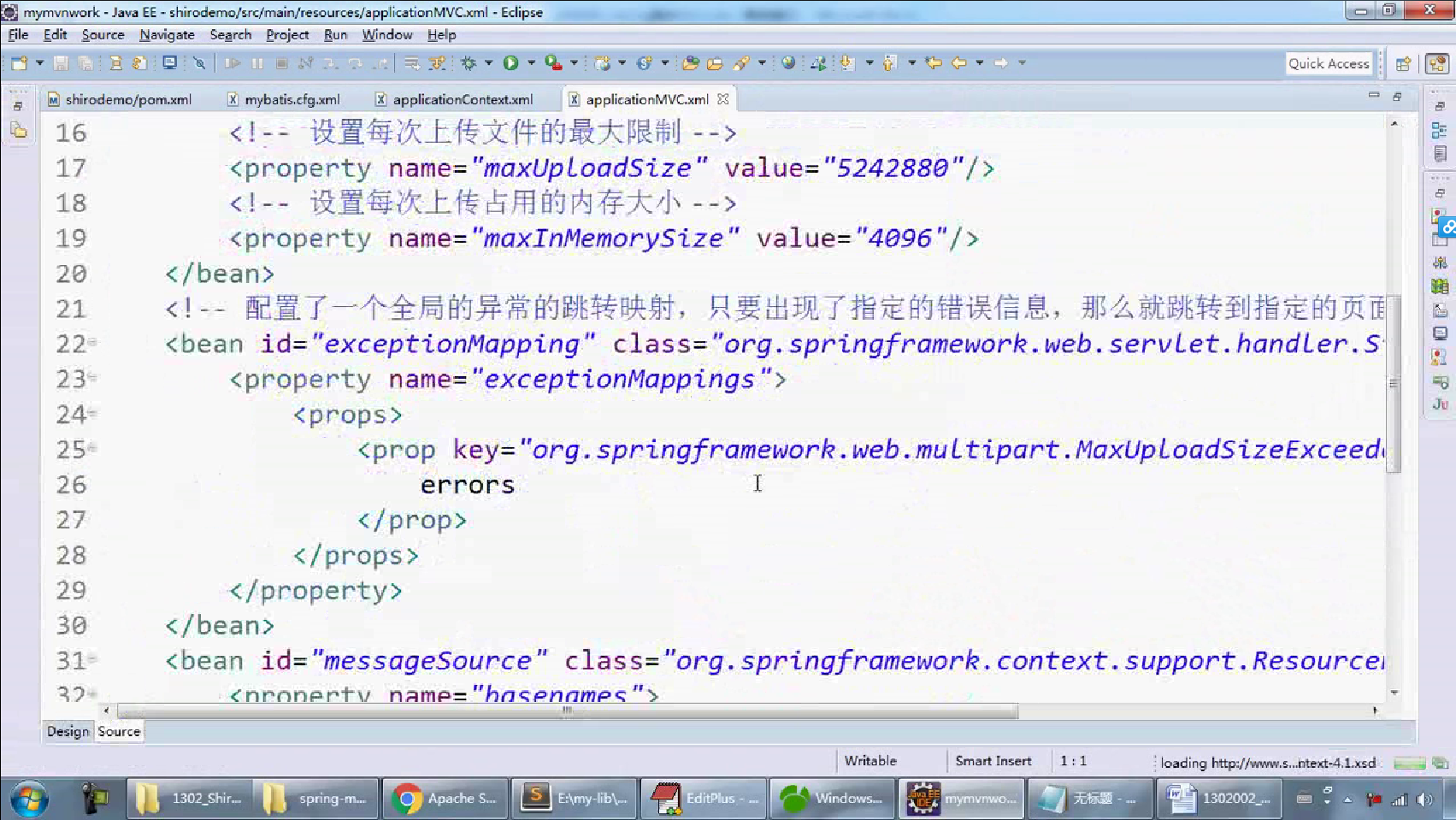
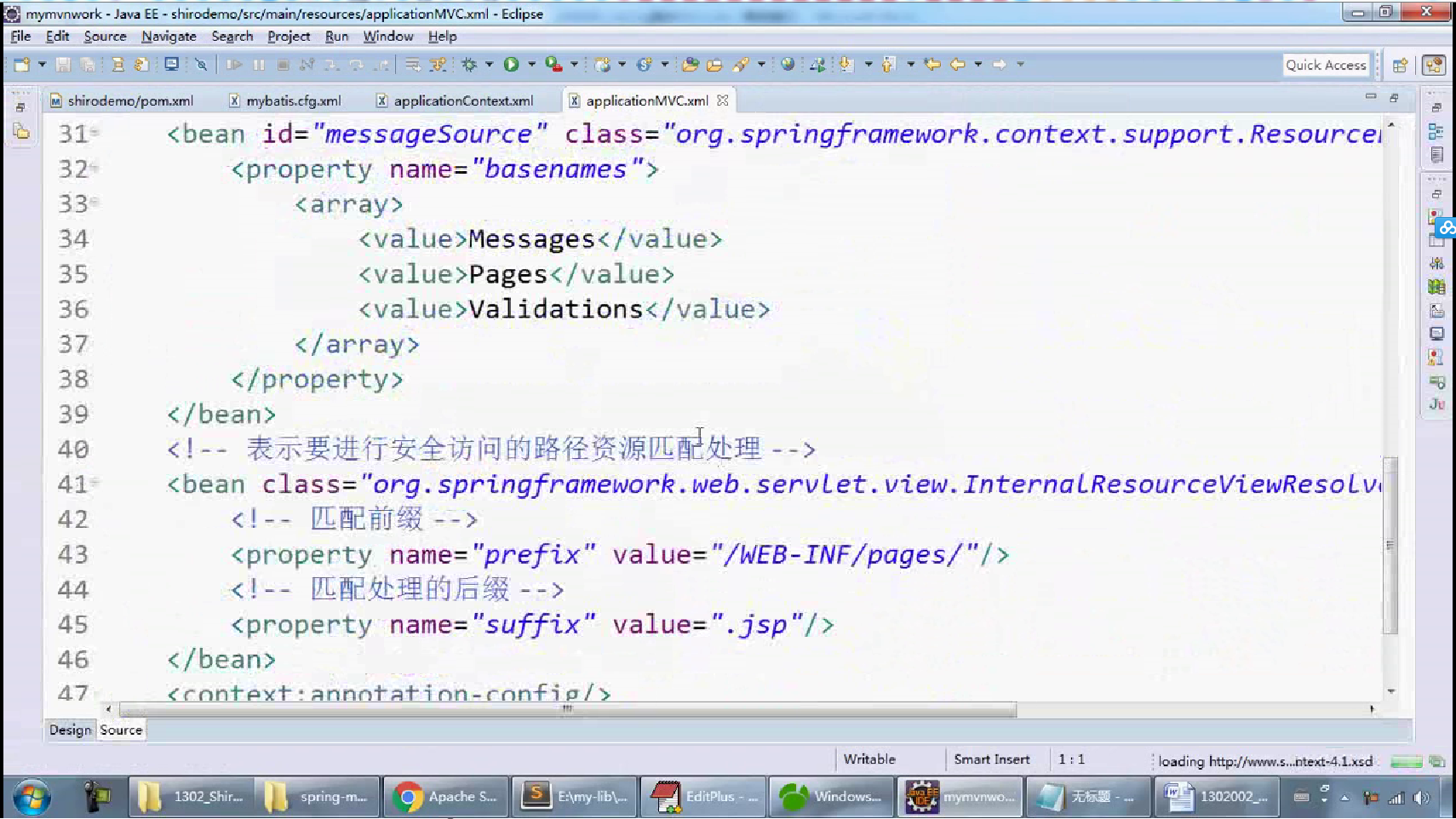
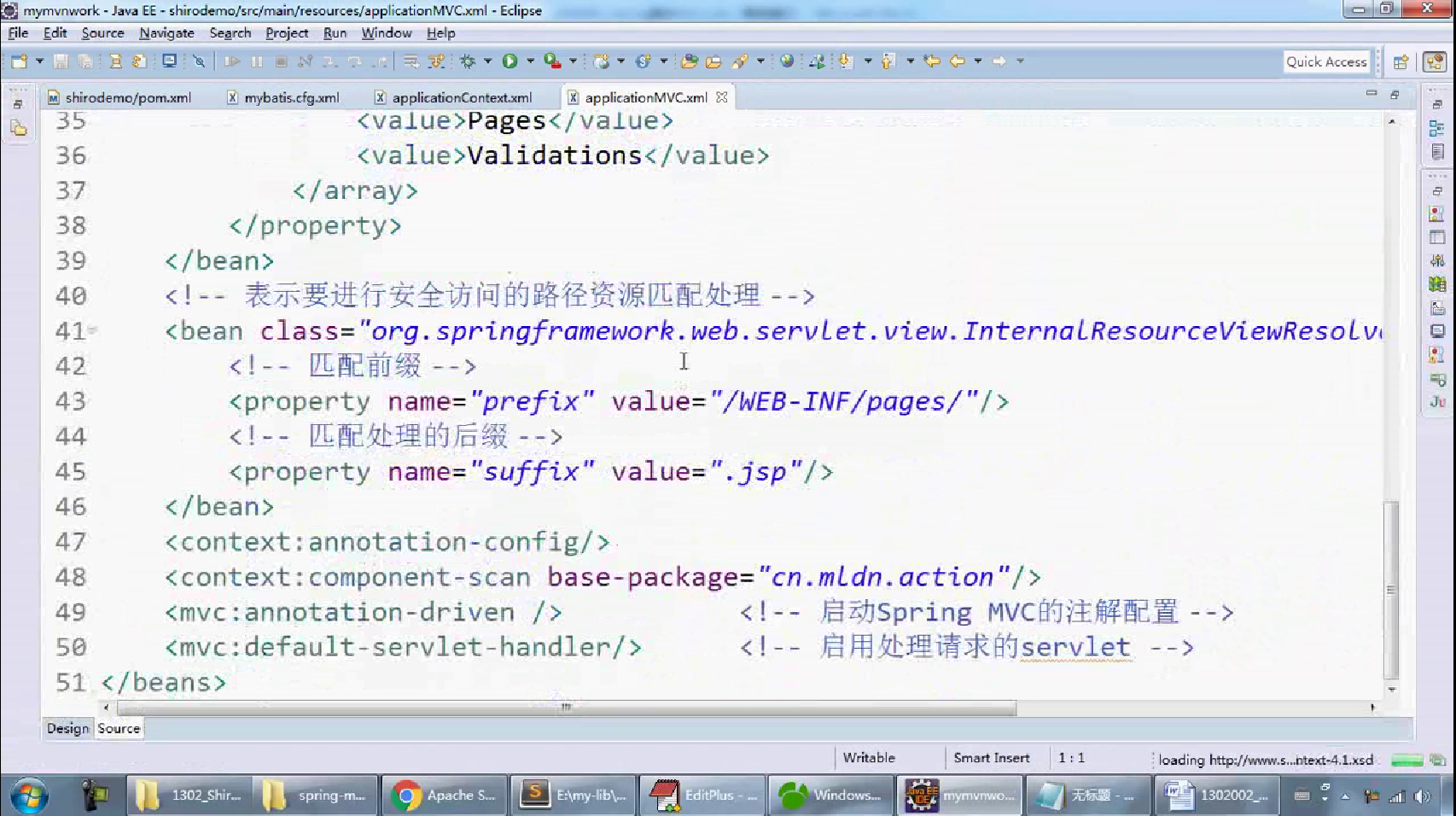

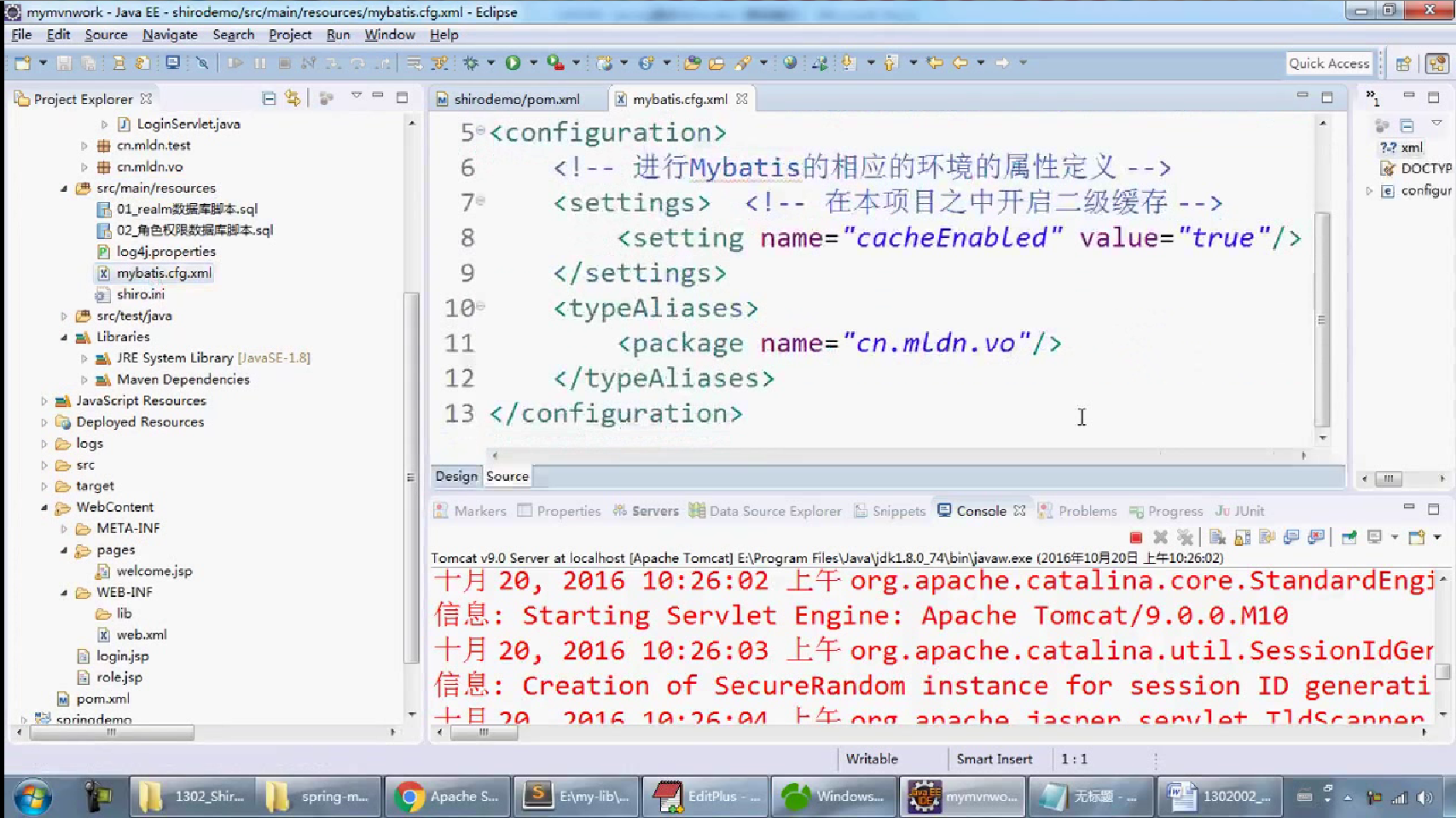
<?xml version="1.0" encoding="UTF-8" ?> <!-- Copyright 2009-2012 the original author or authors. Licensed under the Apache License, Version 2.0 (the "License"); you may not use this file except in compliance with the License. You may obtain a copy of the License at http://www.apache.org/licenses/LICENSE-2.0 Unless required by applicable law or agreed to in writing, software distributed under the License is distributed on an "AS IS" BASIS, WITHOUT WARRANTIES OR CONDITIONS OF ANY KIND, either express or implied. See the License for the specific language governing permissions and limitations under the License. --> <!DOCTYPE configuration PUBLIC "-//mybatis.org//DTD Config 3.0//EN" "http://mybatis.org/dtd/mybatis-3-config.dtd"> <configuration> <settings> <setting name="cacheEnabled" value="true"></setting> </settings> <typeAliases > <package name="cn.mldn.vo"></package> </typeAliases> </configuration>
<?xml version="1.0" encoding="UTF-8" ?> <!-- Copyright 2009-2012 the original author or authors. Licensed under the Apache License, Version 2.0 (the "License"); you may not use this file except in compliance with the License. You may obtain a copy of the License at http://www.apache.org/licenses/LICENSE-2.0 Unless required by applicable law or agreed to in writing, software distributed under the License is distributed on an "AS IS" BASIS, WITHOUT WARRANTIES OR CONDITIONS OF ANY KIND, either express or implied. See the License for the specific language governing permissions and limitations under the License. --> <!DOCTYPE configuration PUBLIC "-//mybatis.org//DTD Config 3.0//EN" "http://mybatis.org/dtd/mybatis-3-config.dtd"> <configuration> <!-- 进行Mybatis的相应的环境的属性定义 --> <settings> <!-- 在本项目之中开启二级缓存 --> <setting name="cacheEnabled" value="true"></setting> </settings> <typeAliases> <package name="cn.mldn.vo"></package> </typeAliases> </configuration>
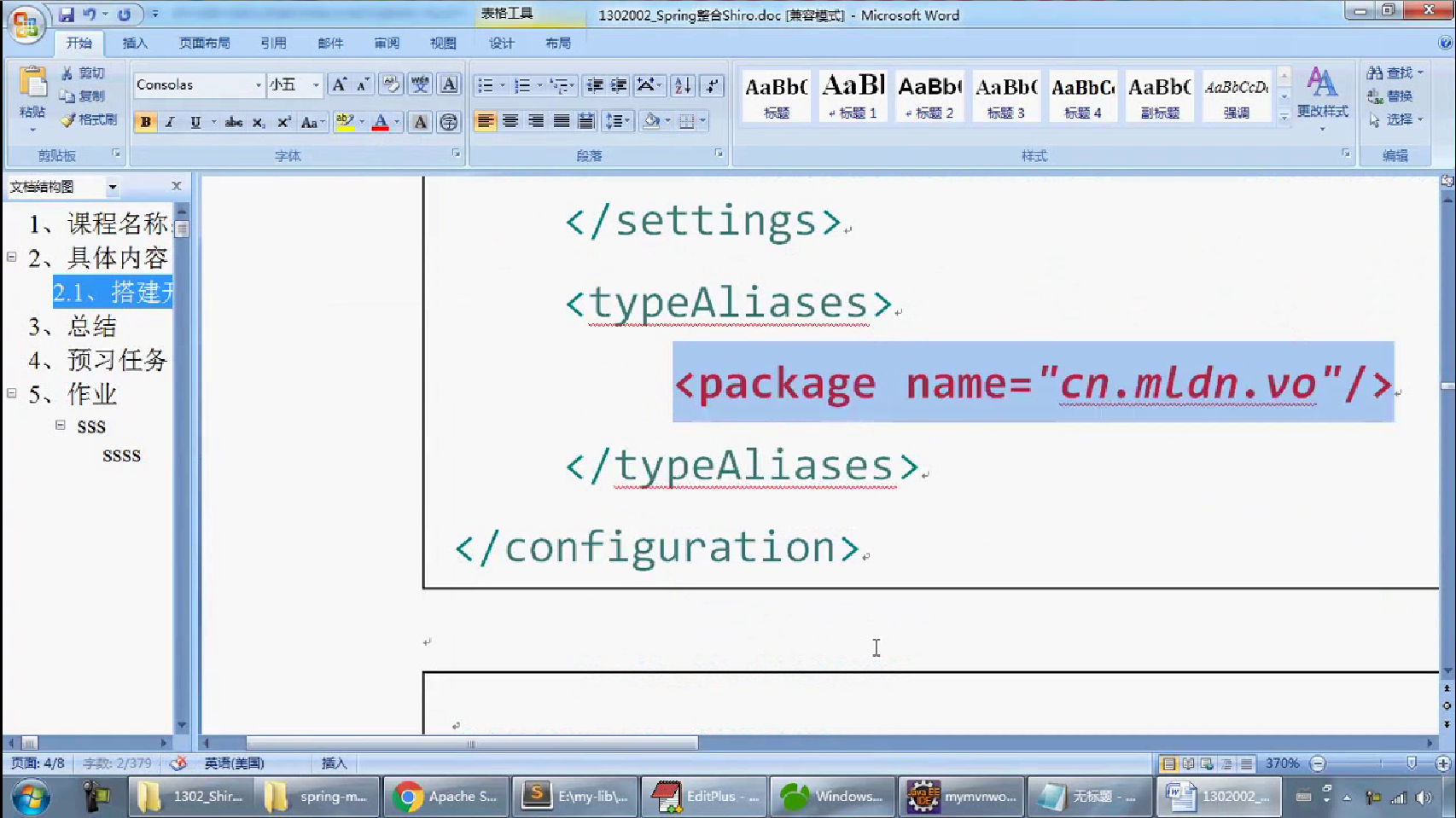
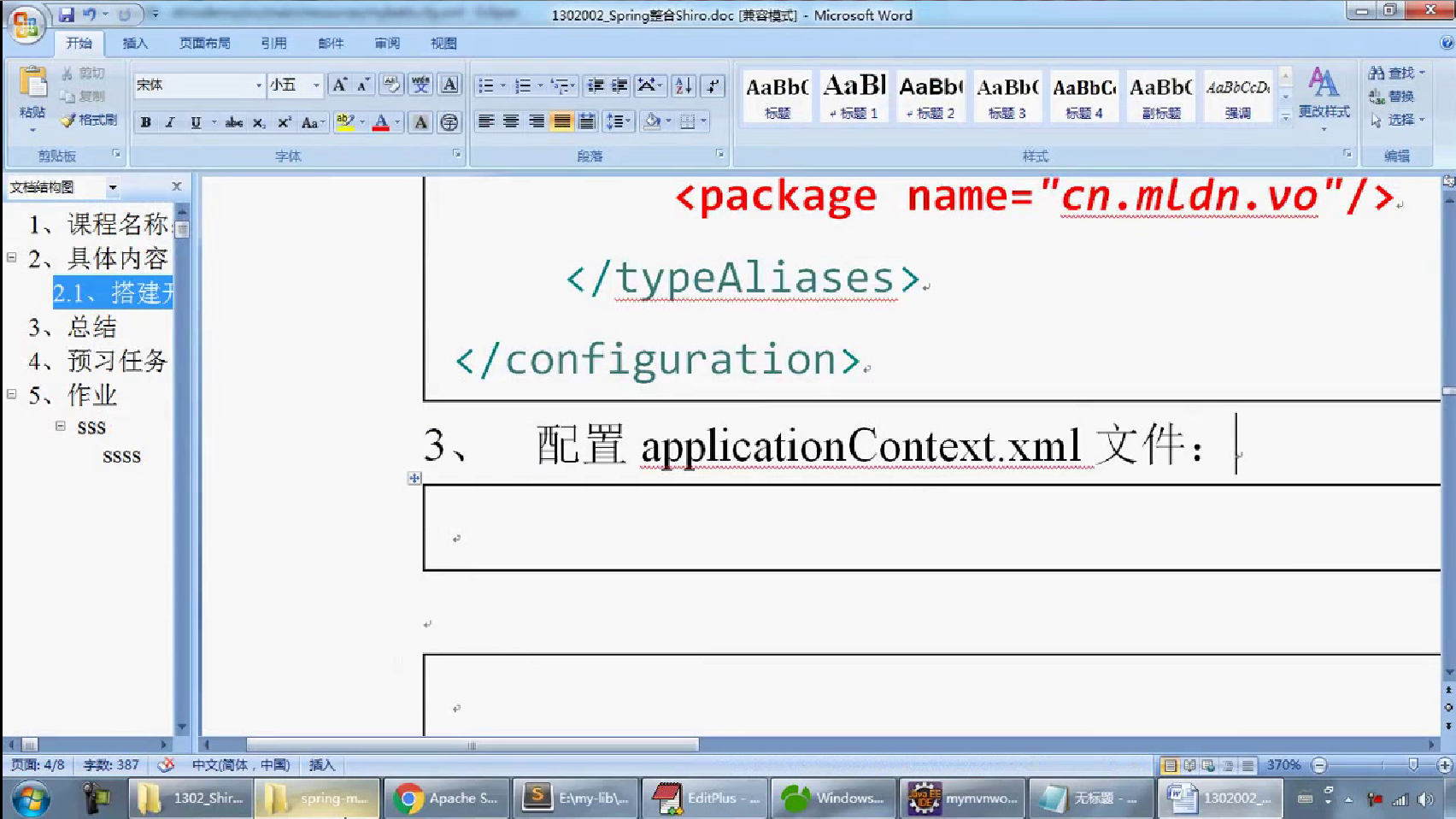
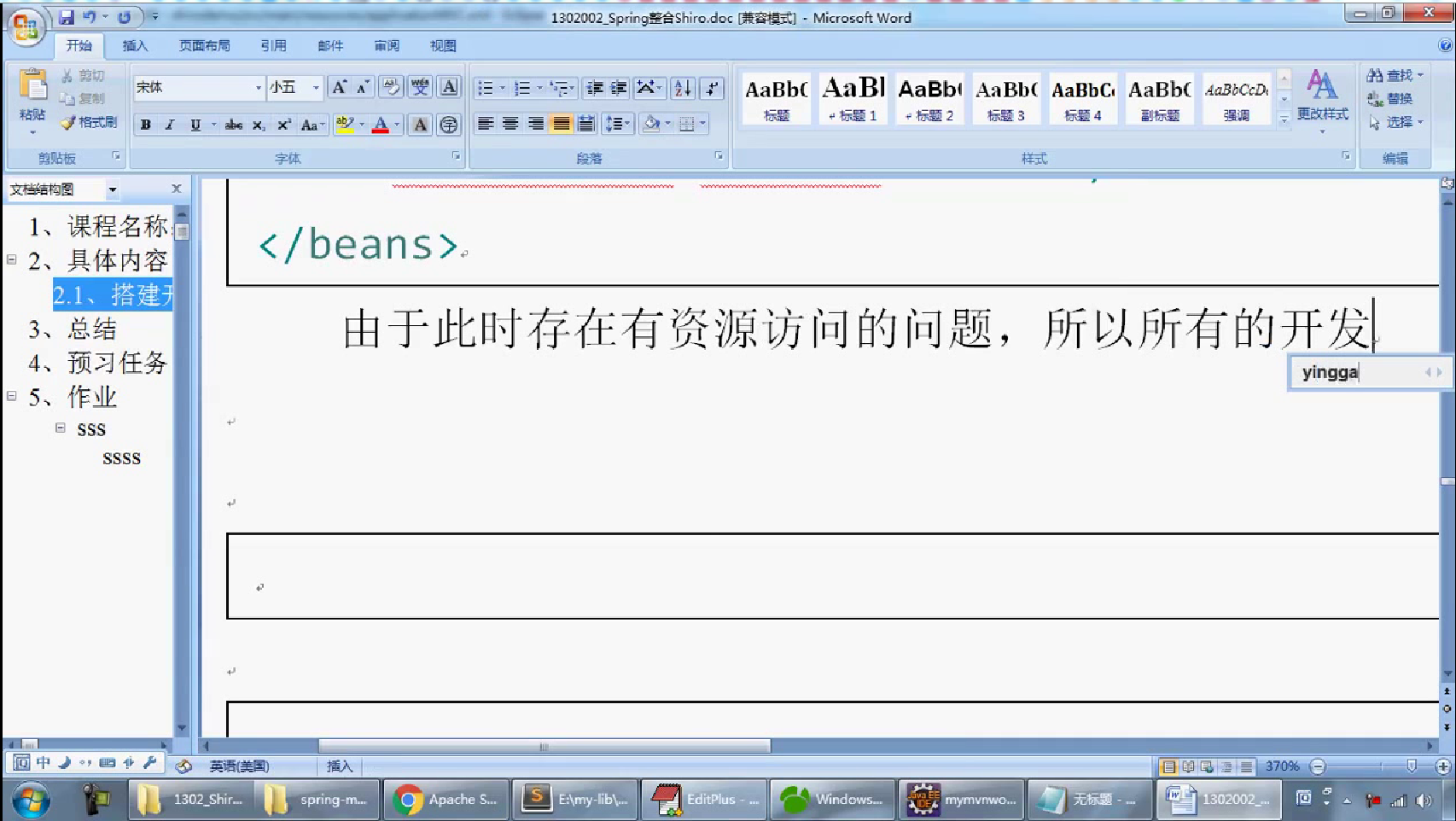
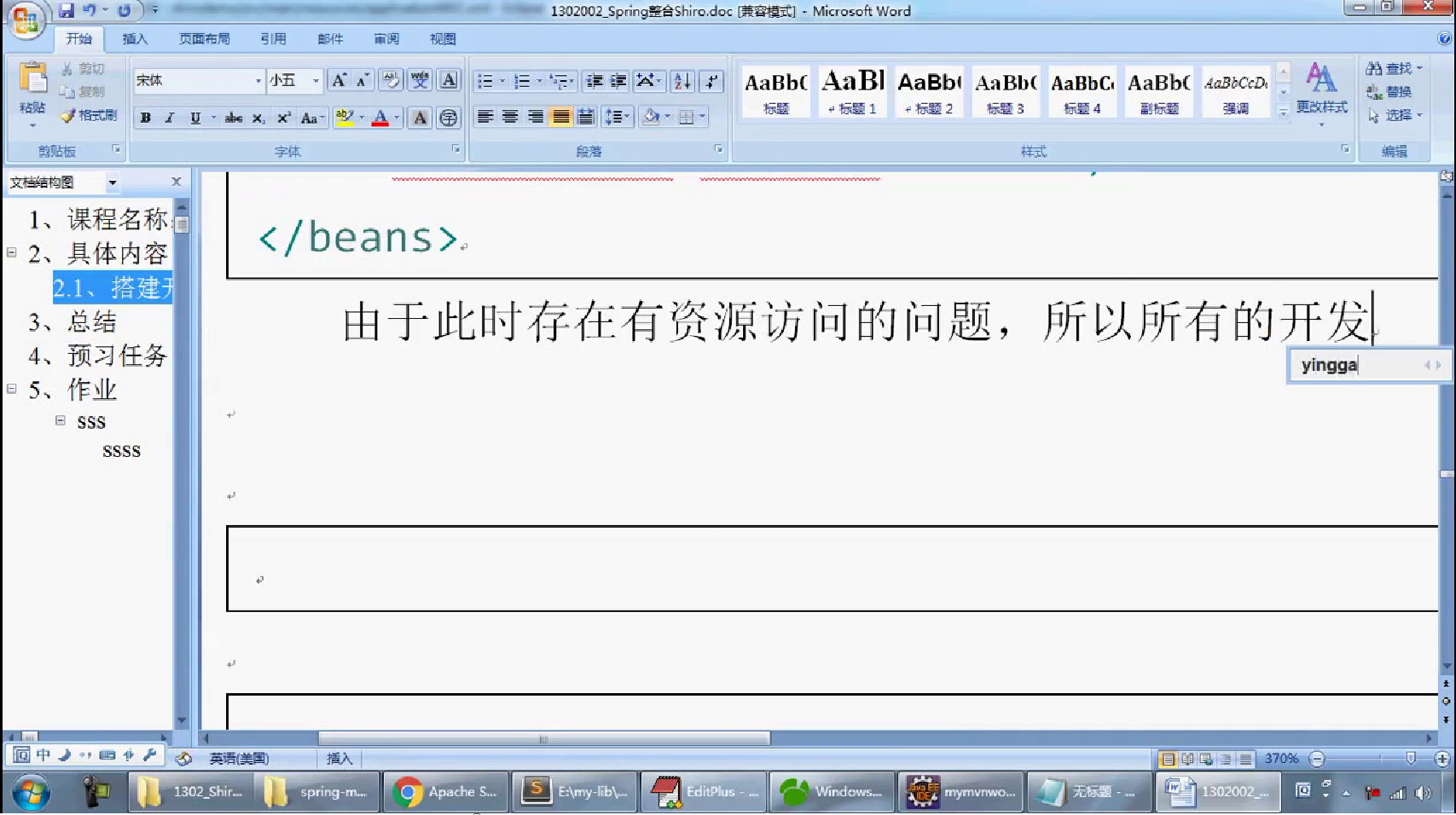
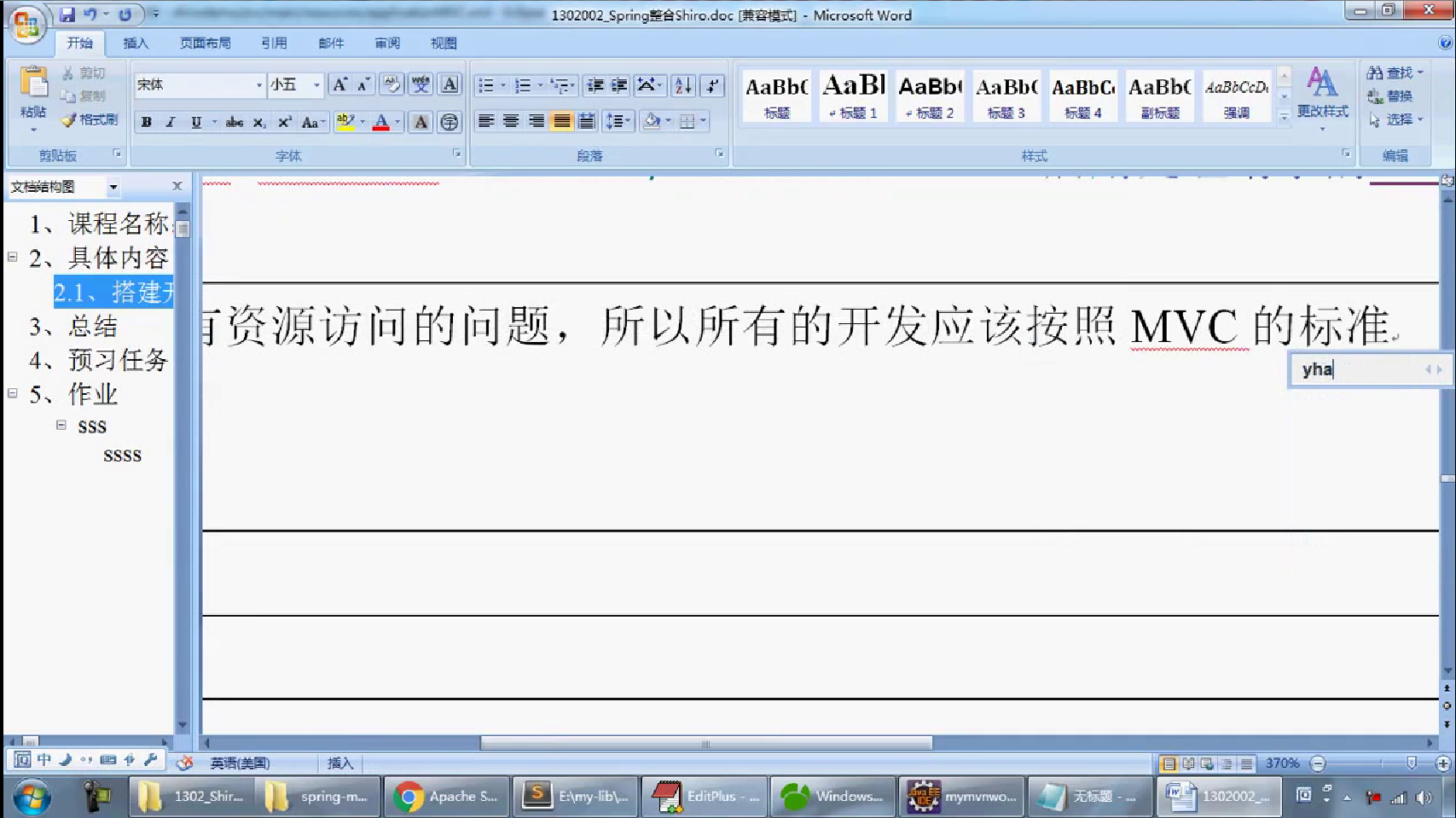
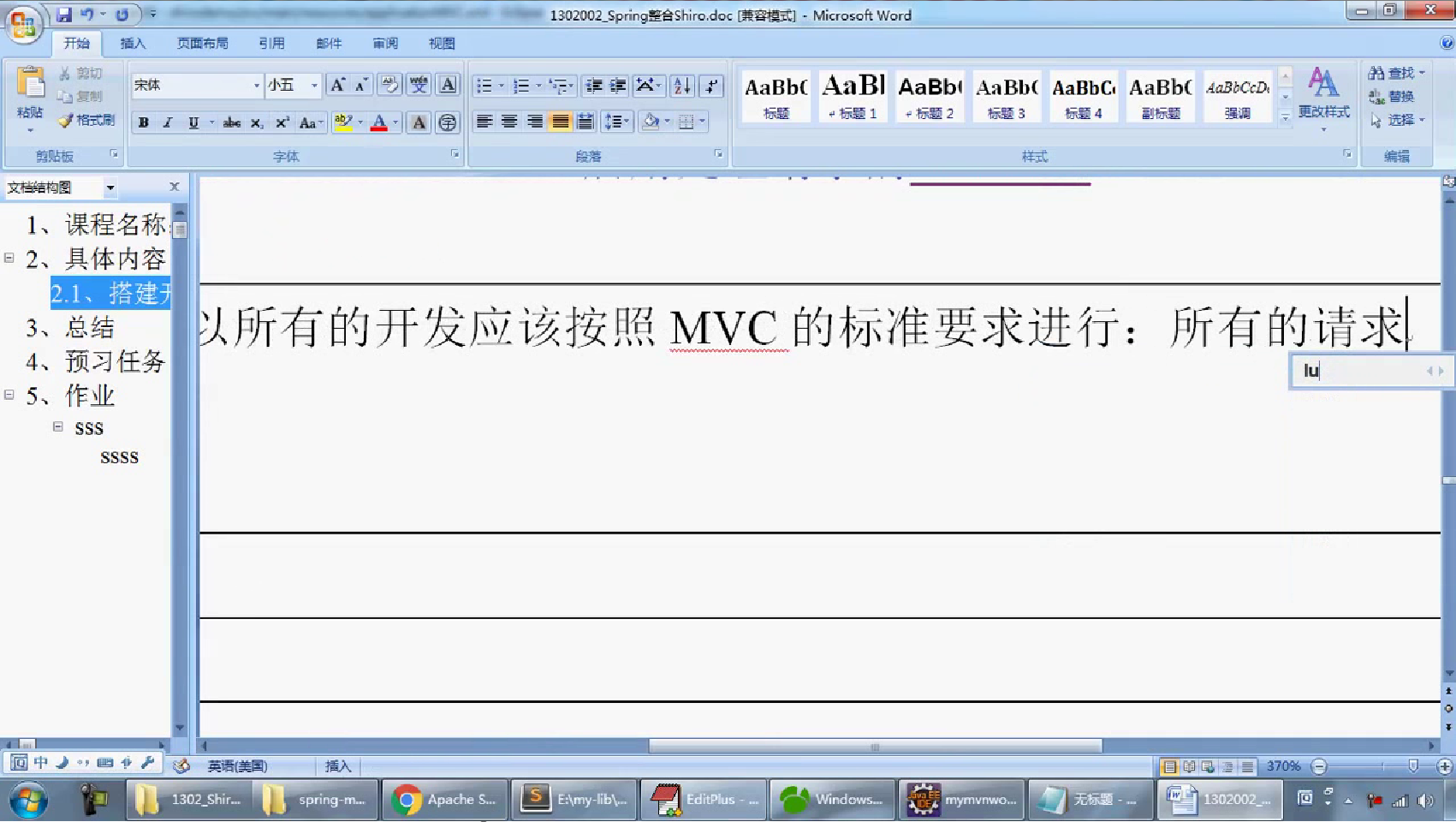
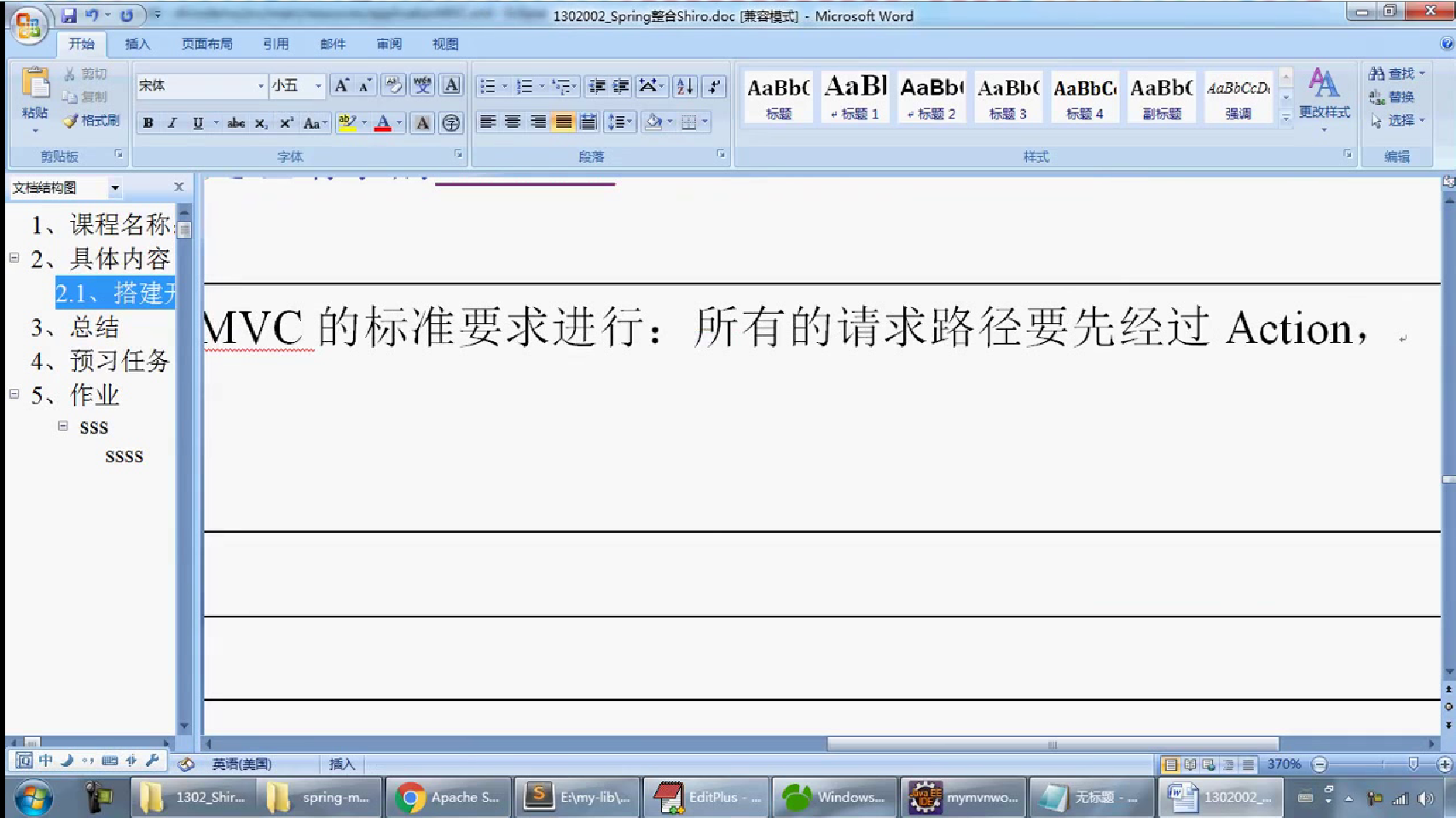
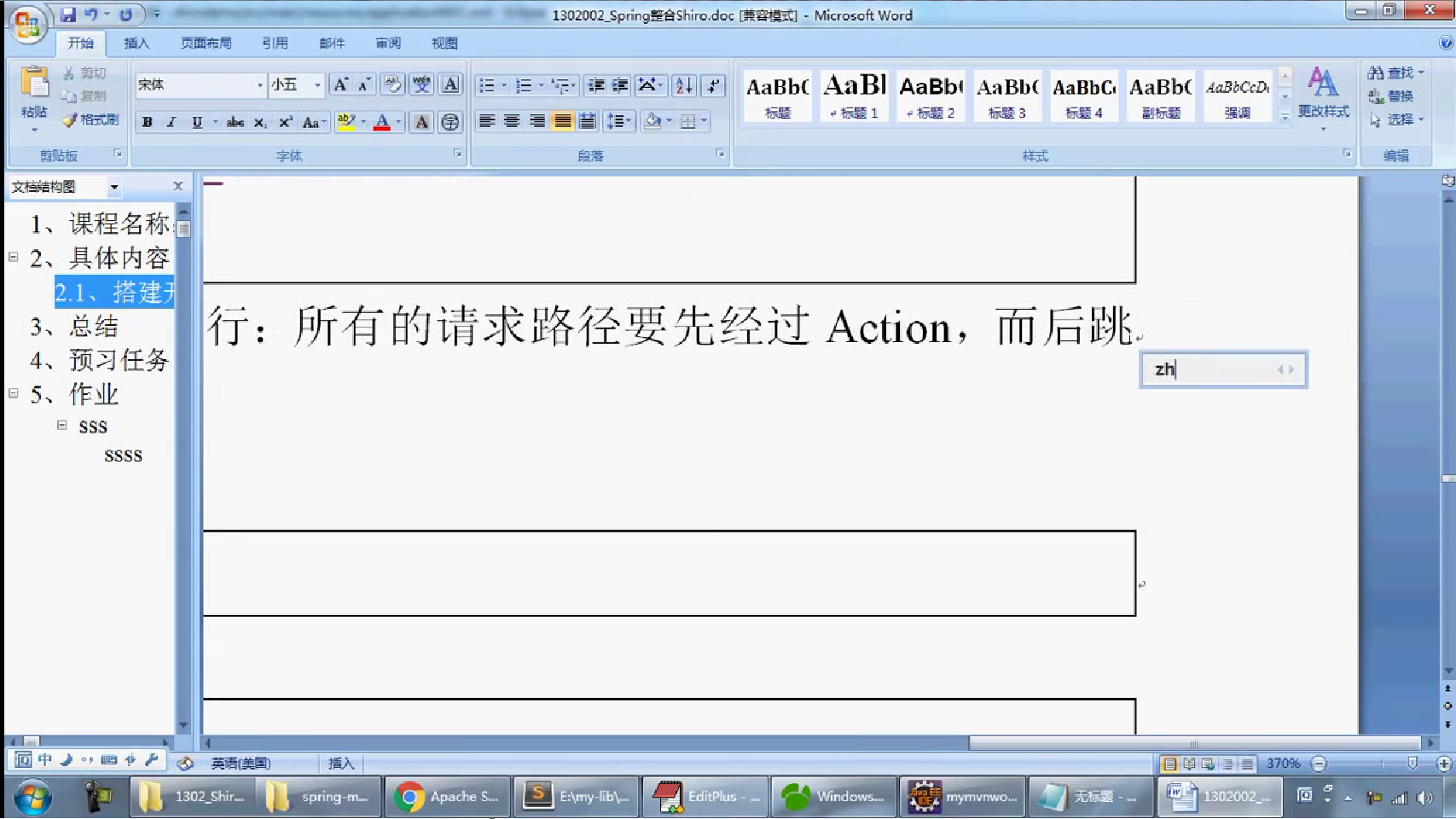
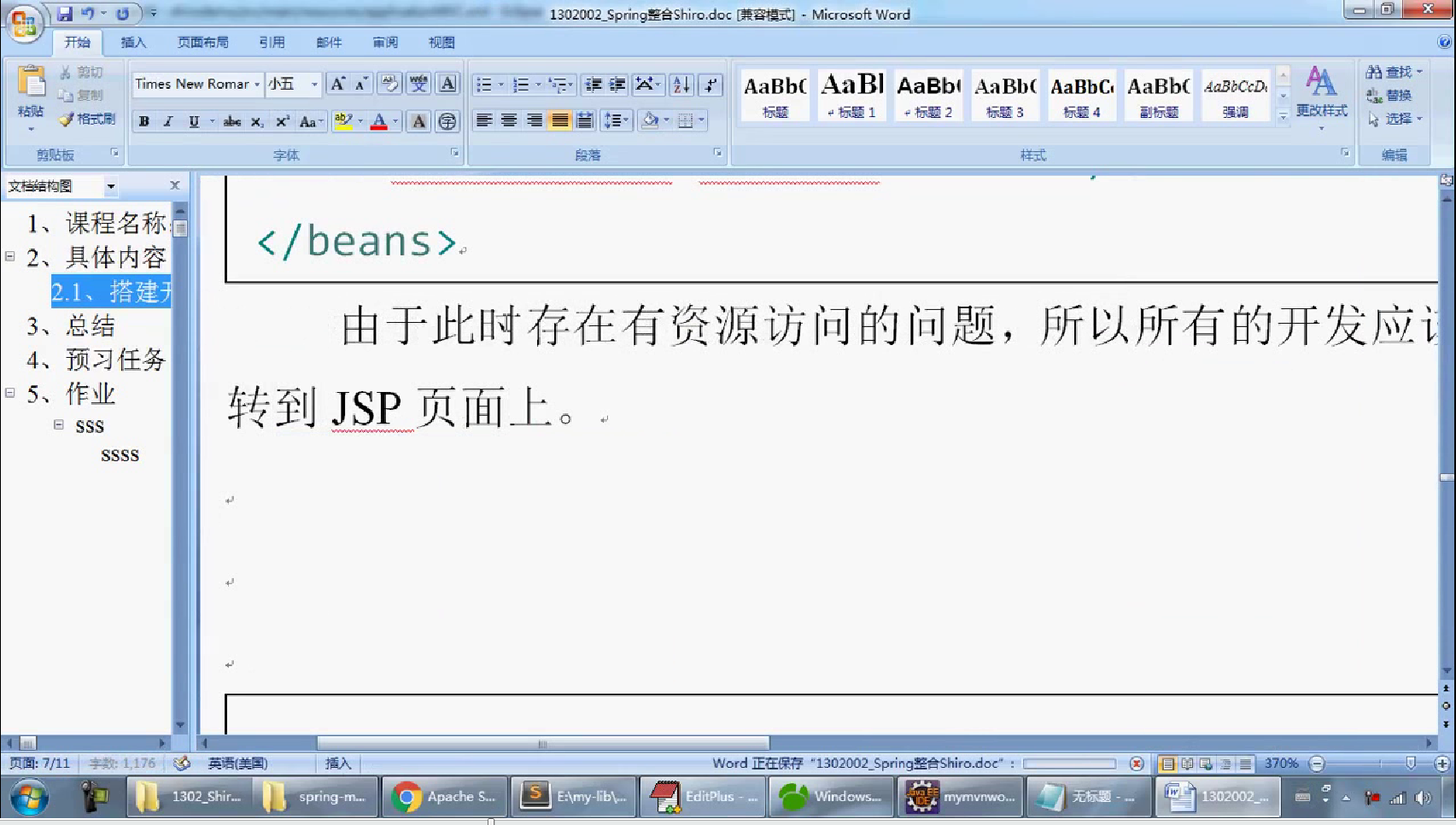
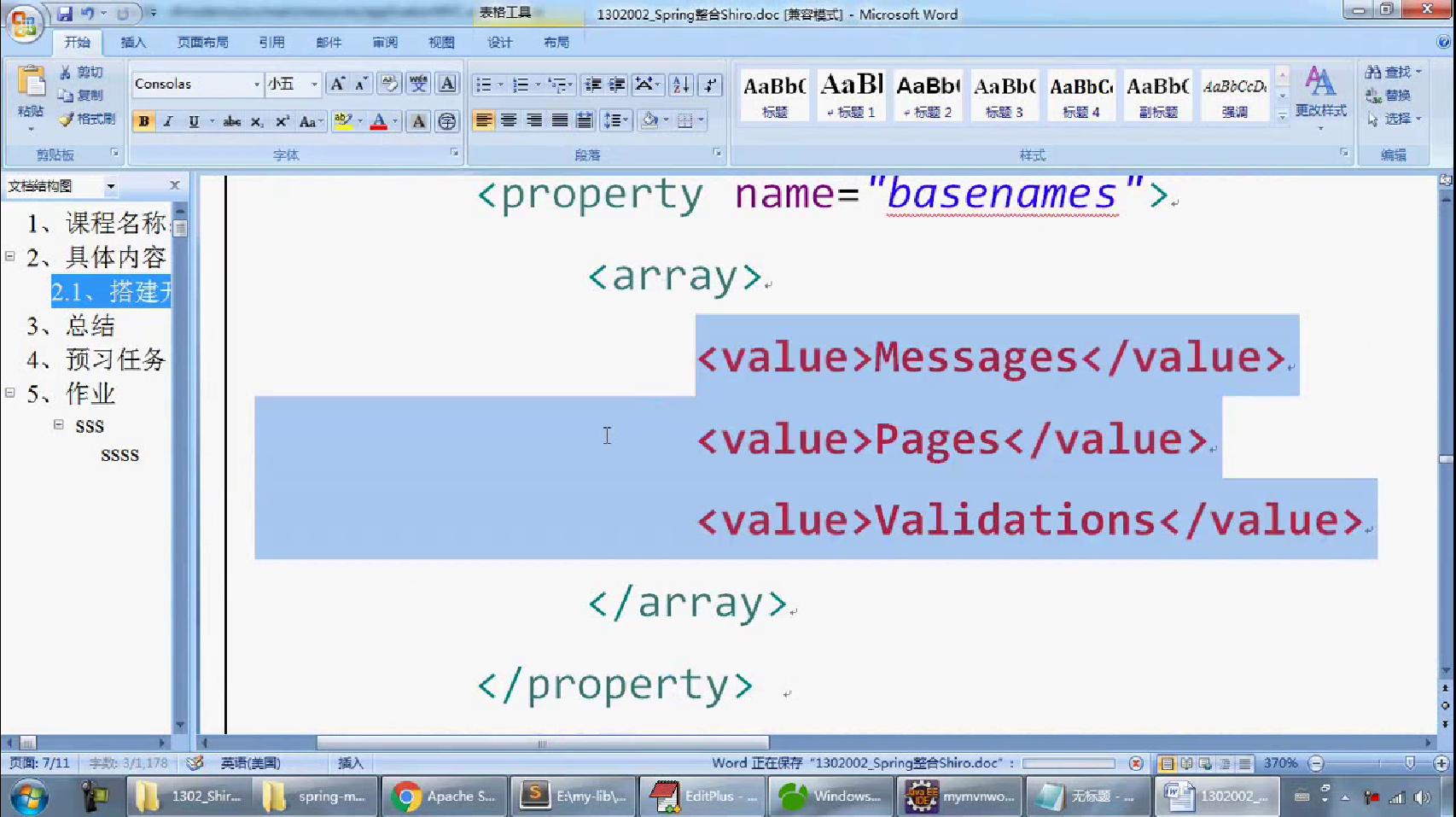
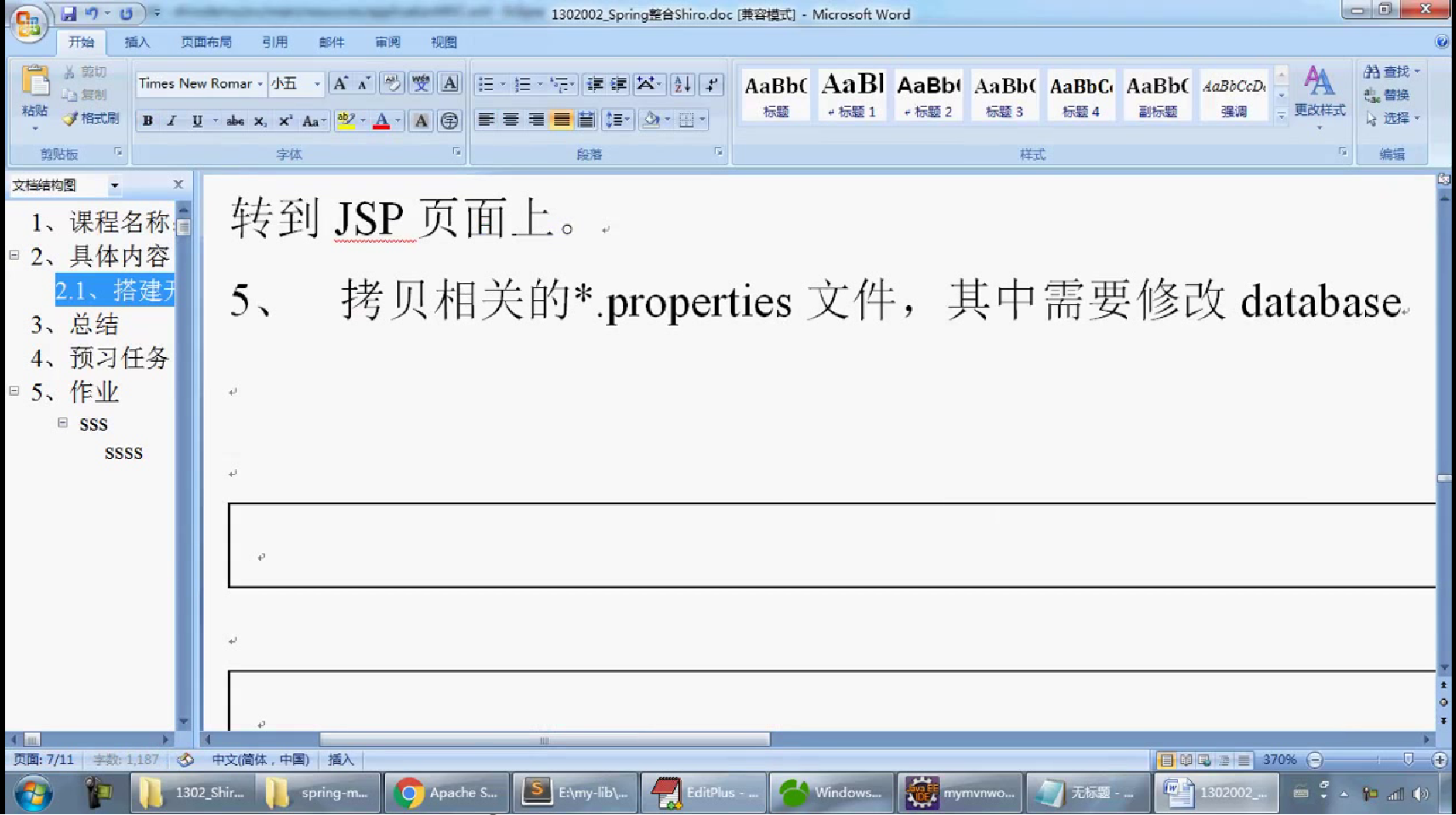
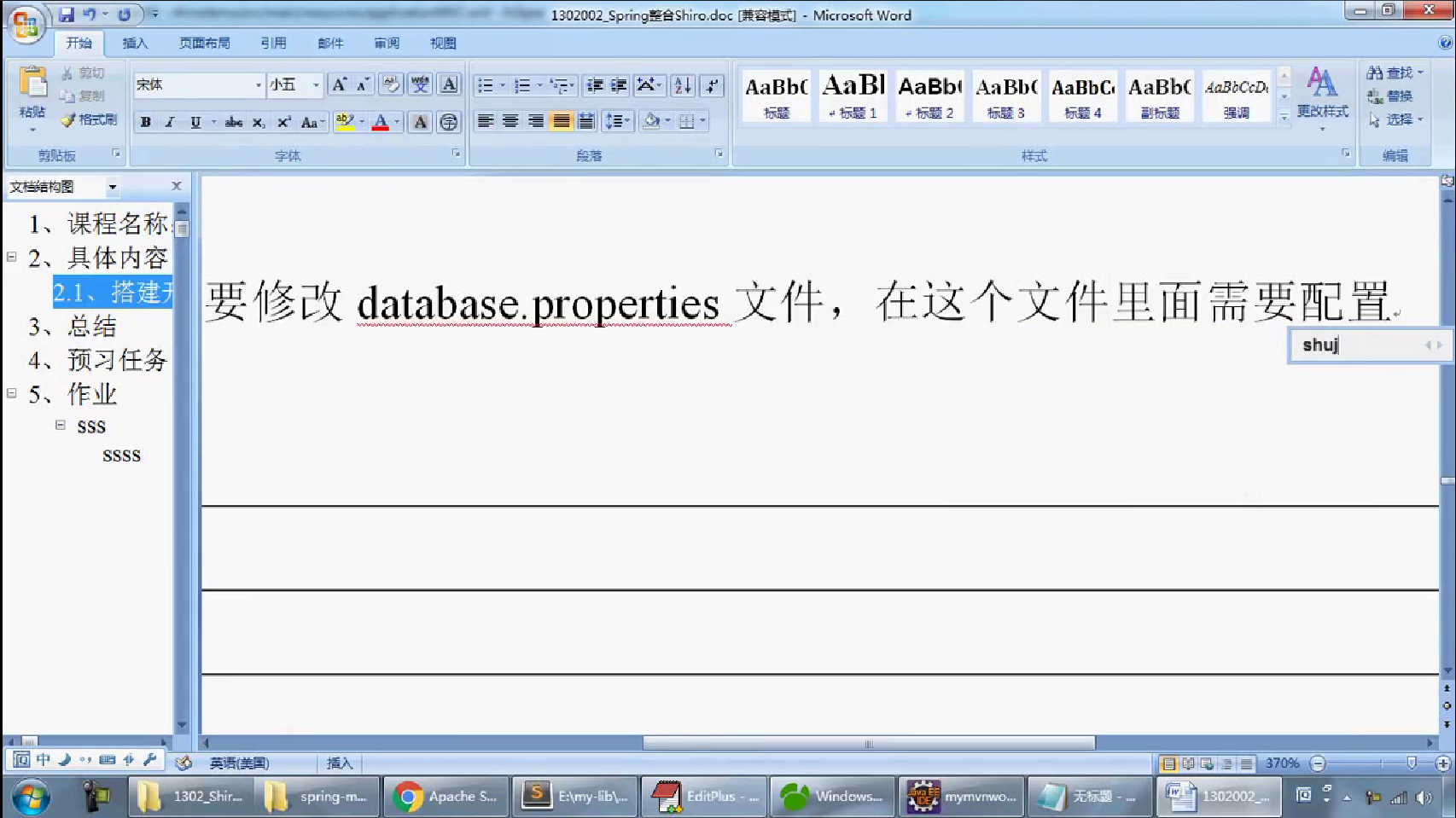
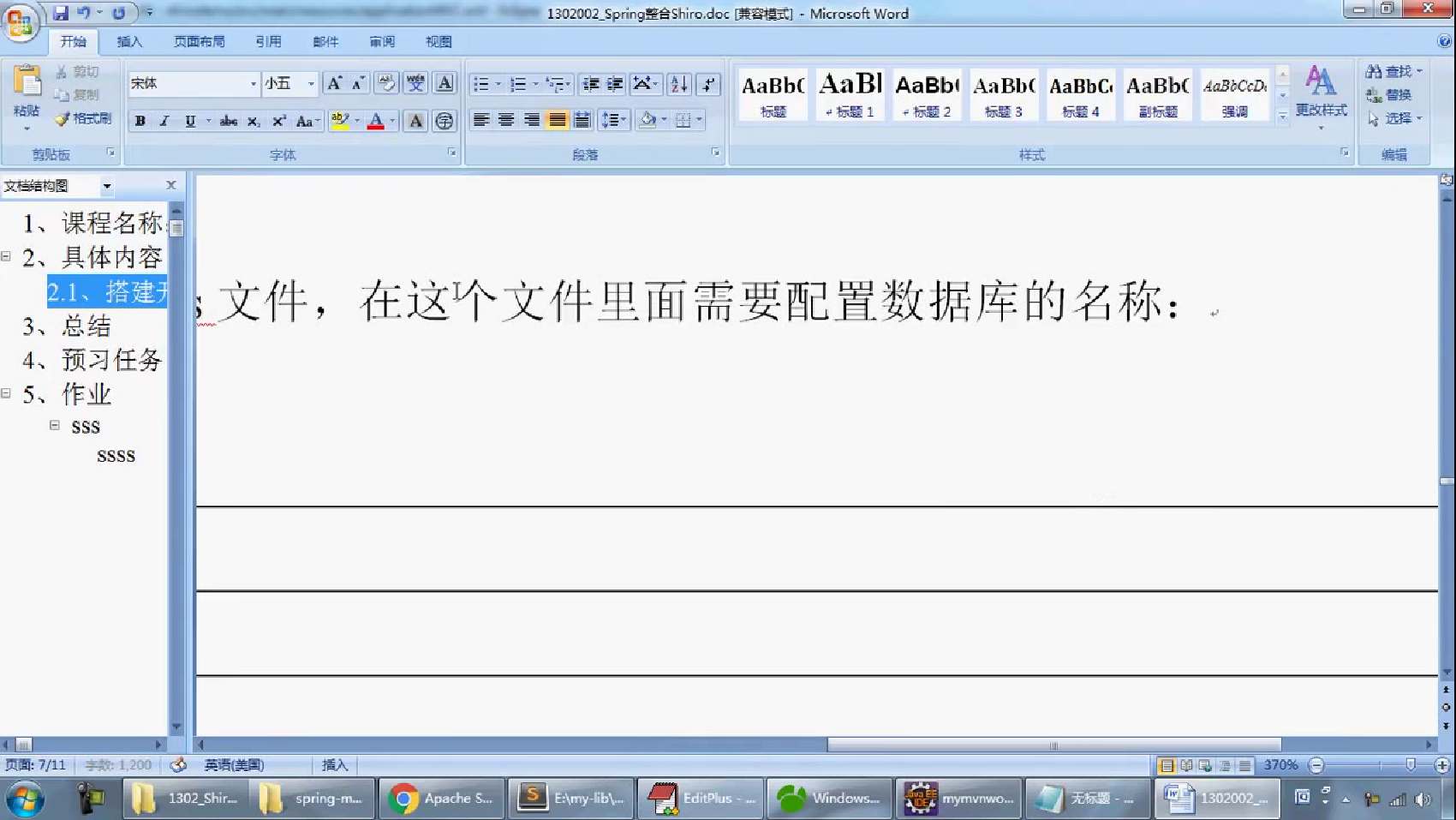
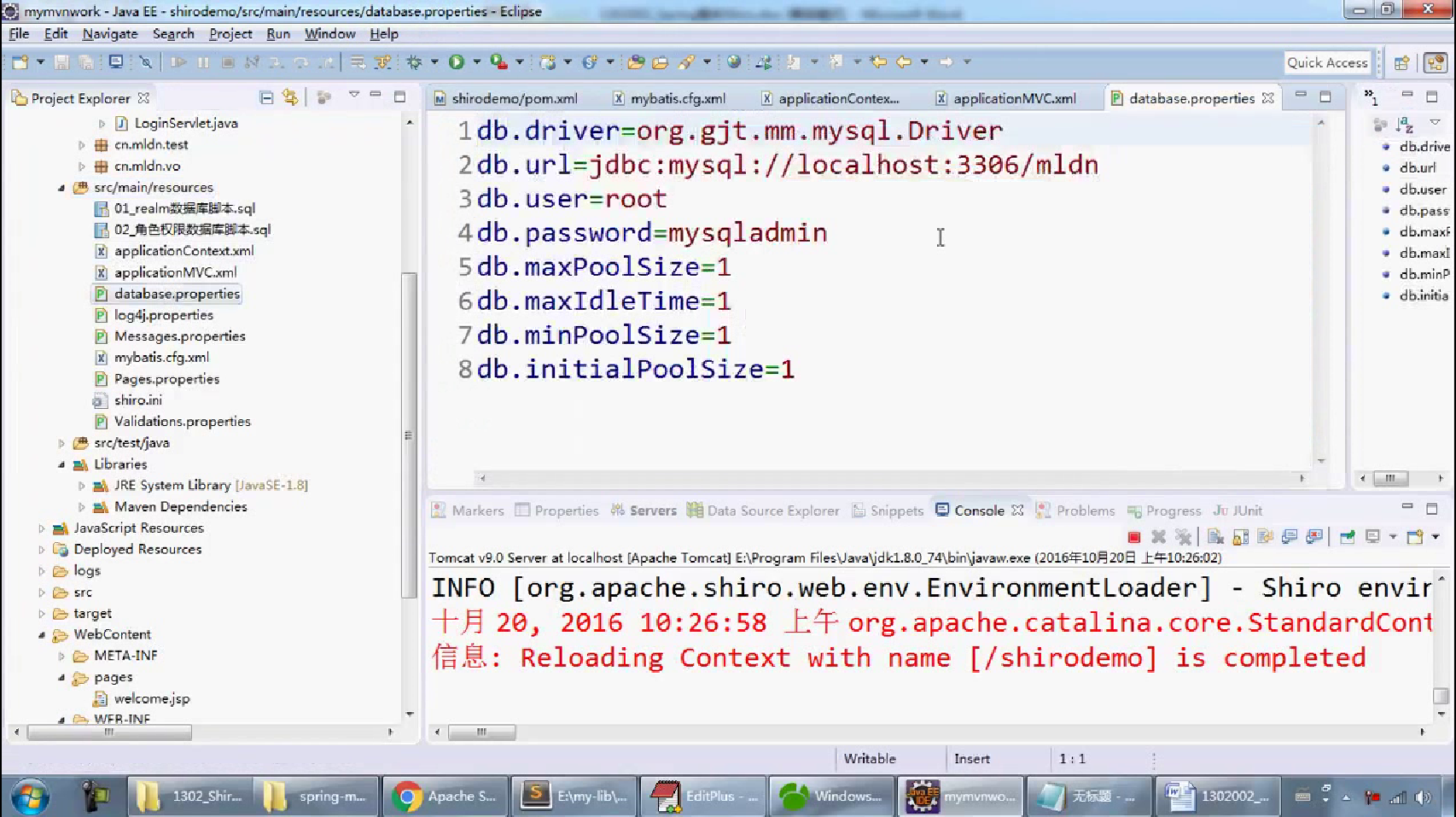
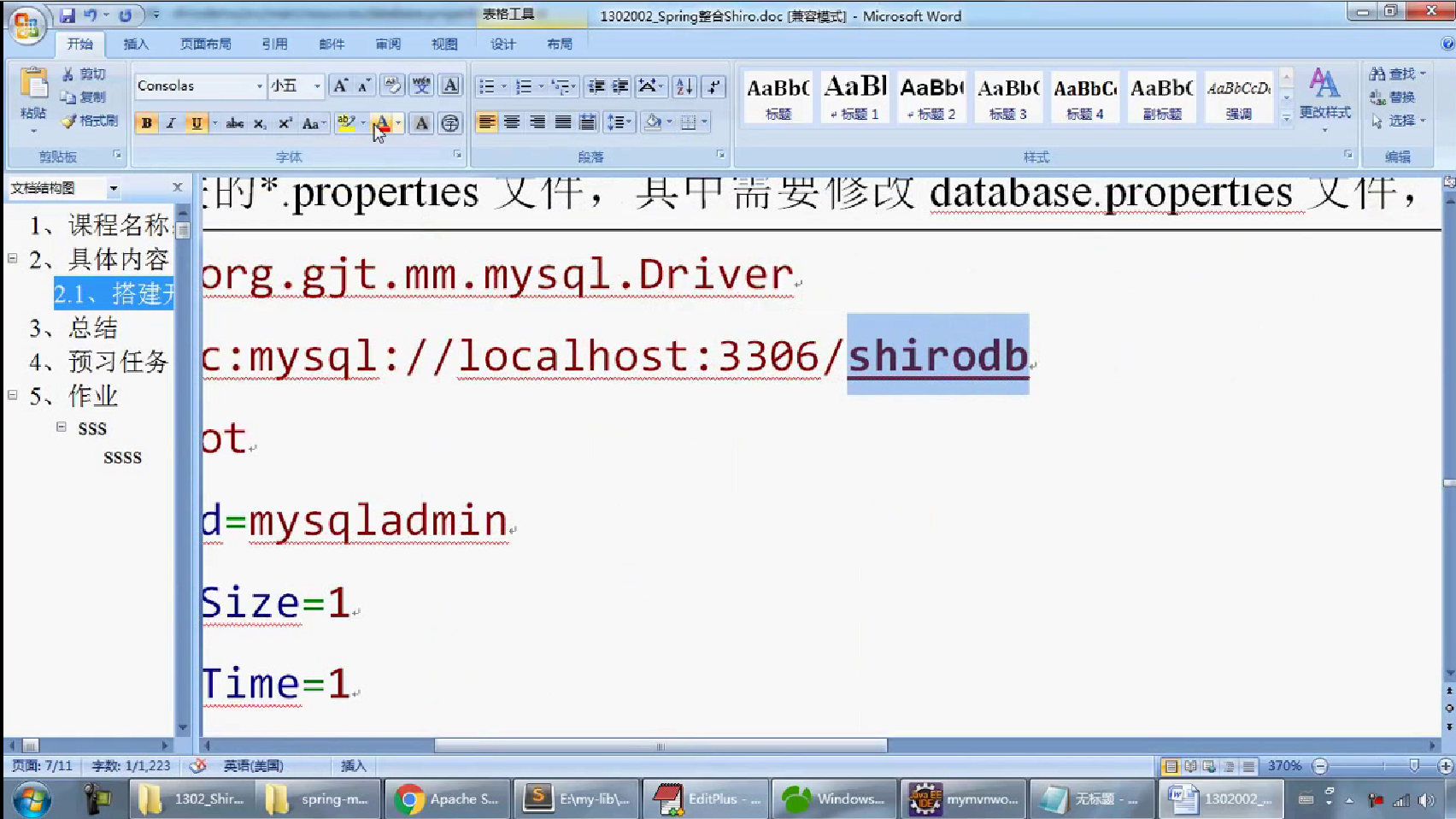
db.driver=org.gjt.mm.mysql.Driver db.url=jdbc:mysql://localhost:3306/shirodb db.user=root db.password= db.maxPoolSize=1 db.maxIdleTime=1 db.minPoolSize=1 db.initialPoolSize=1
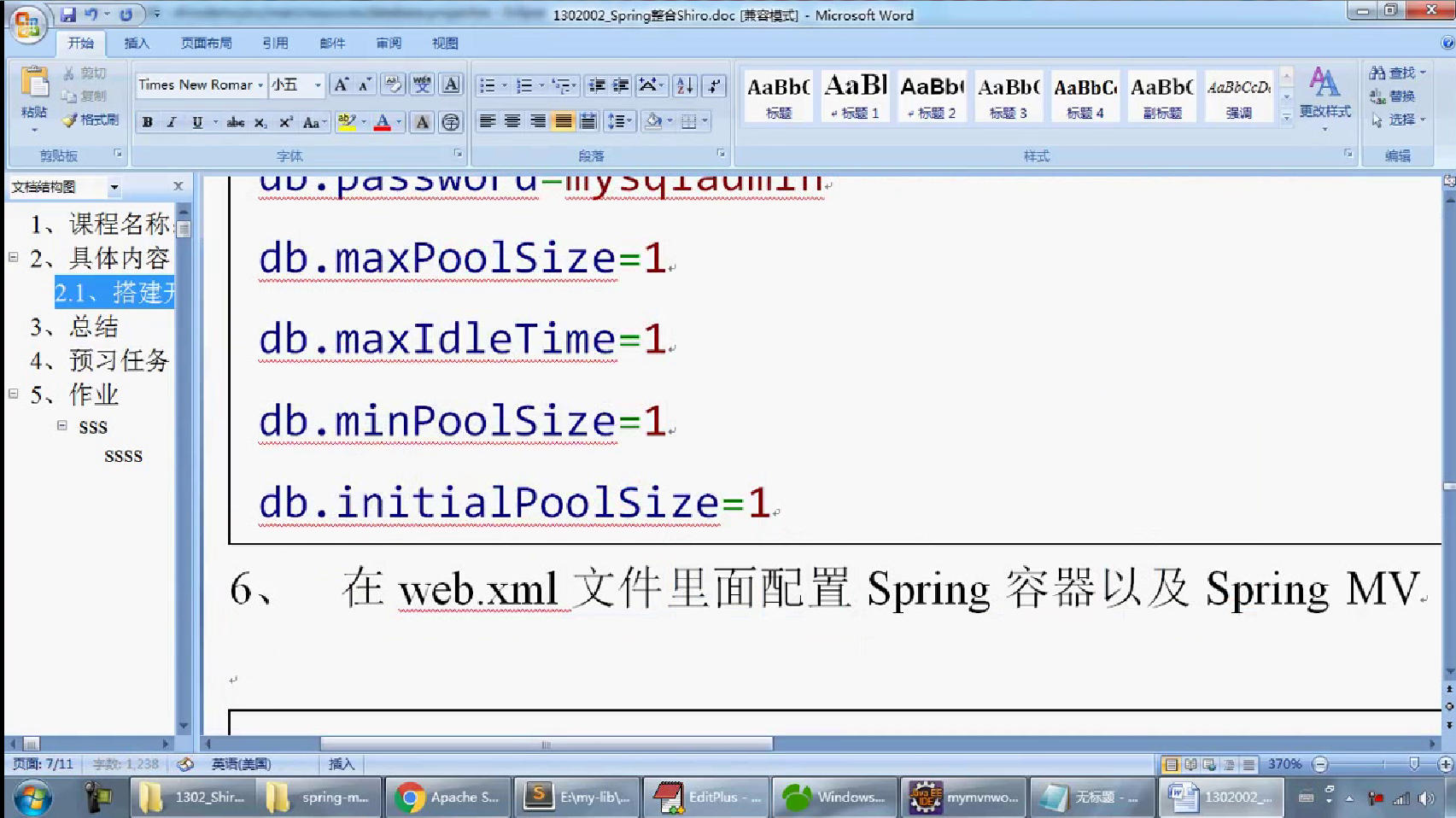
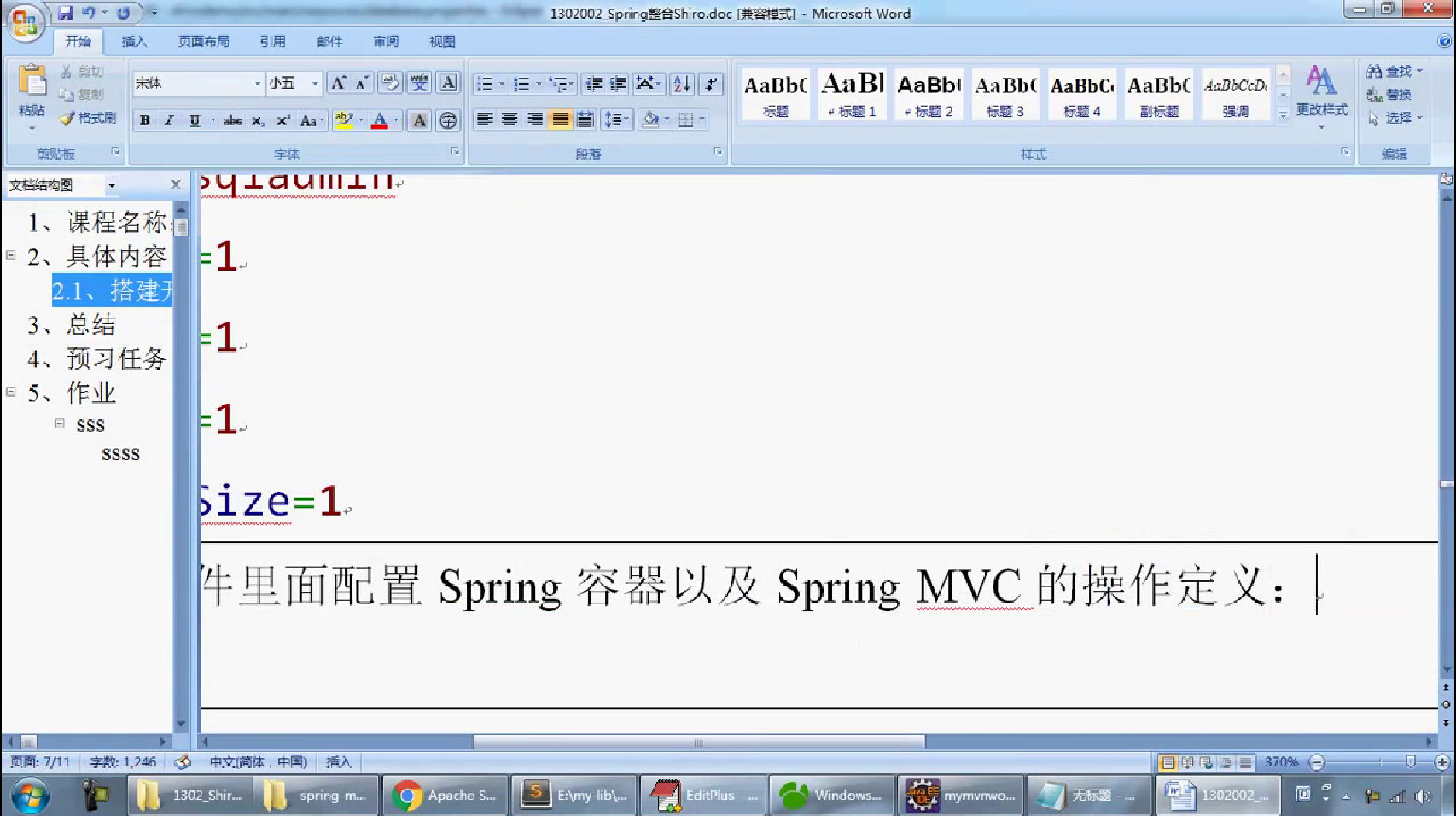
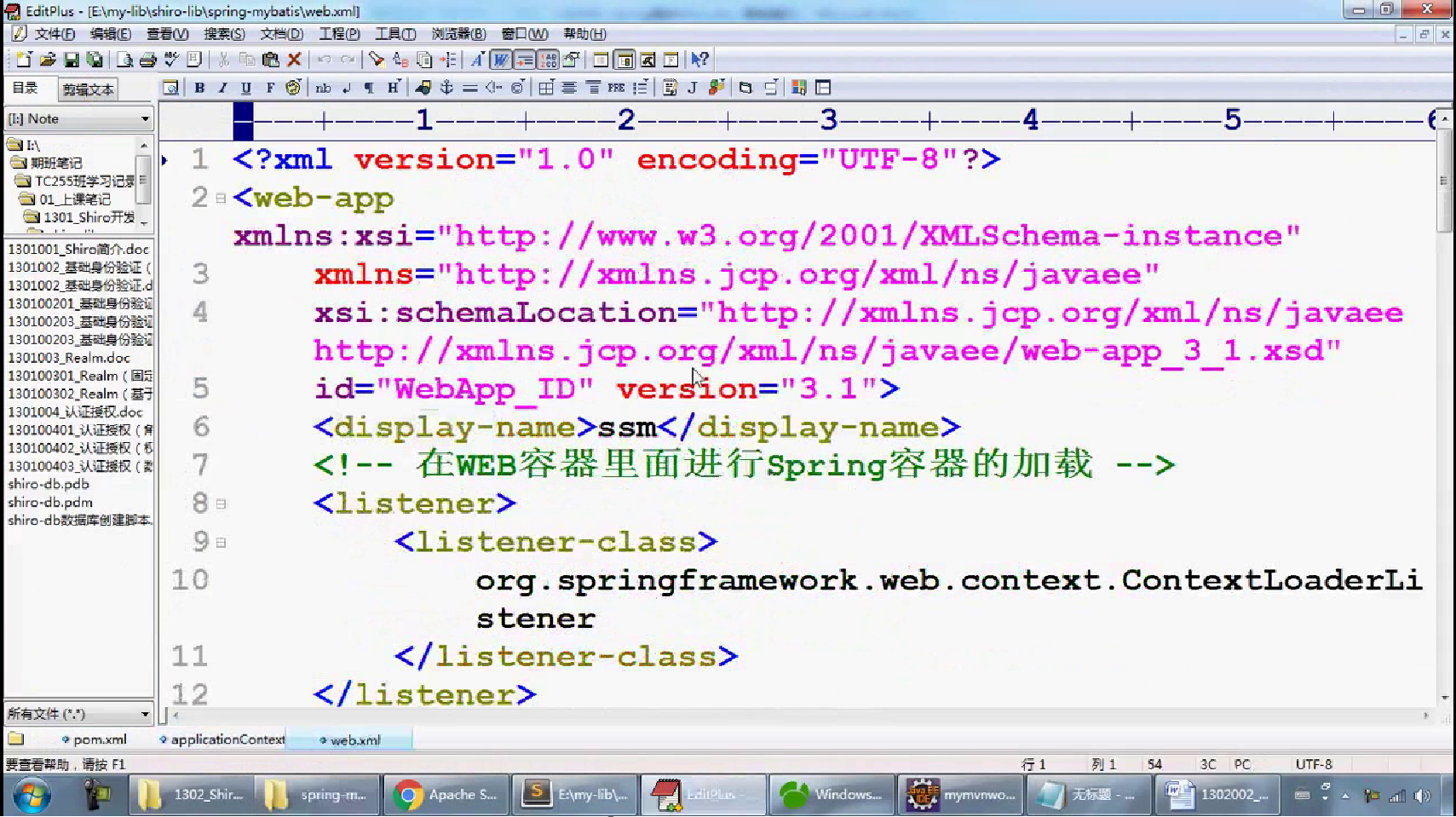
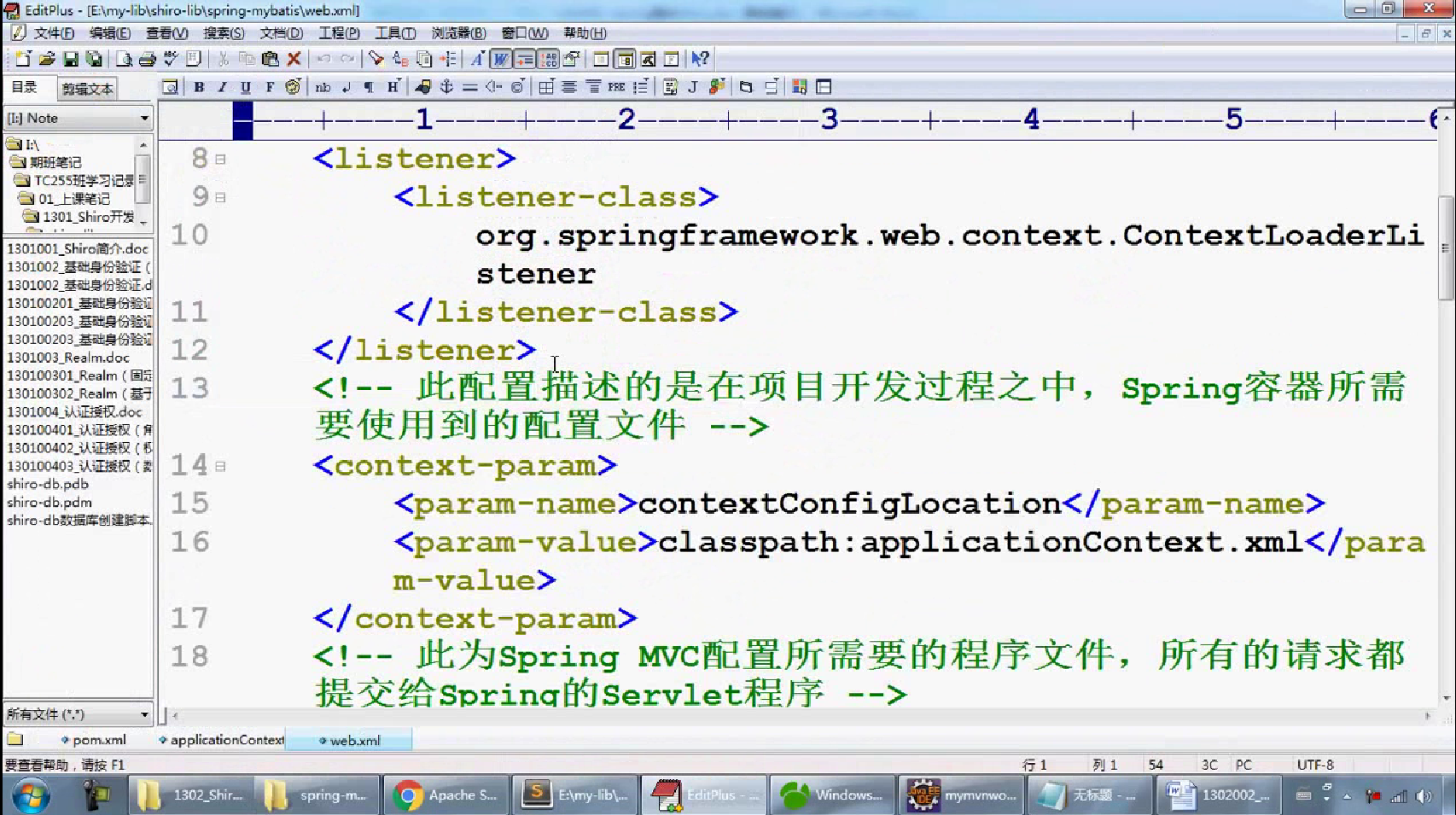
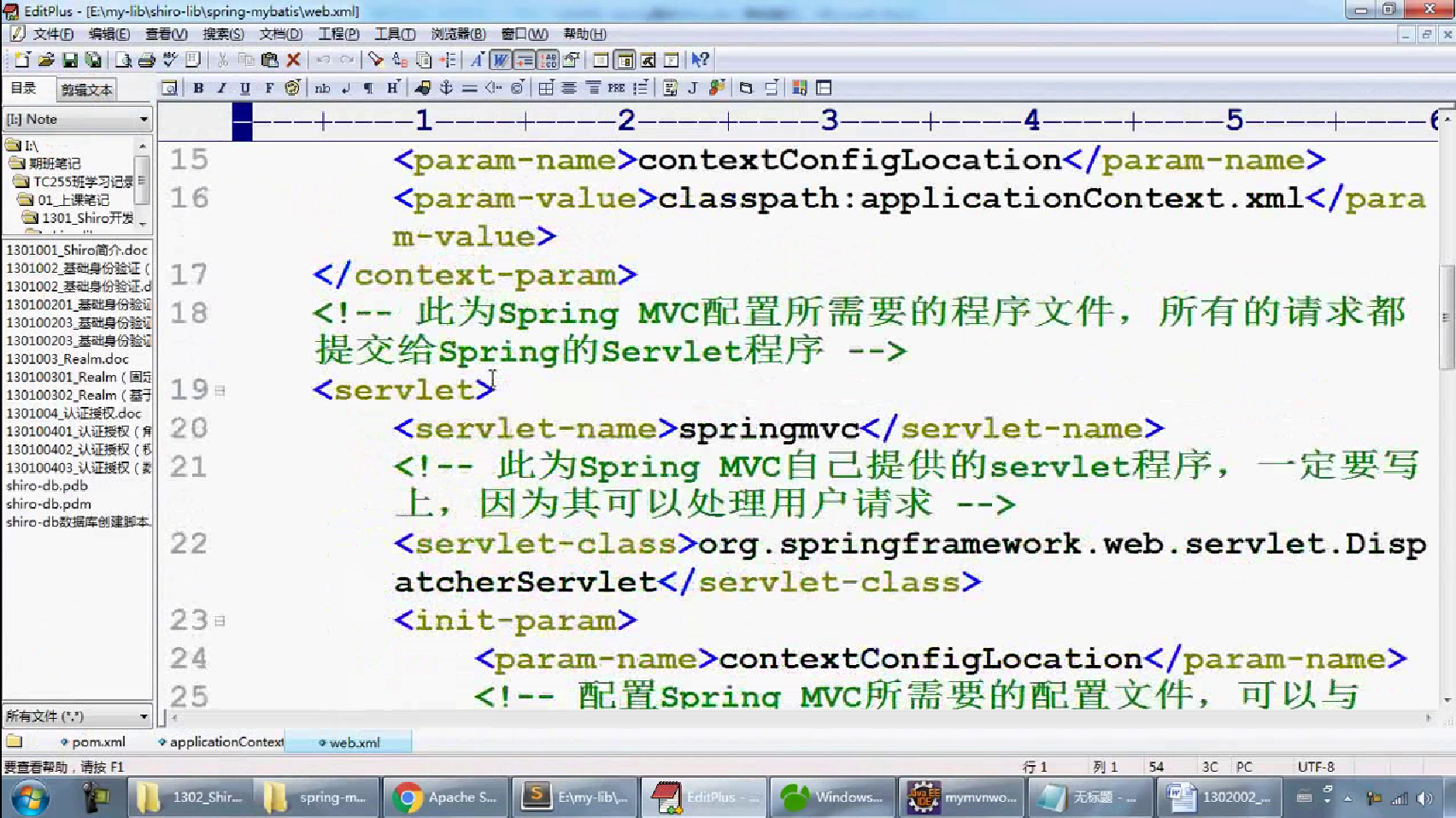
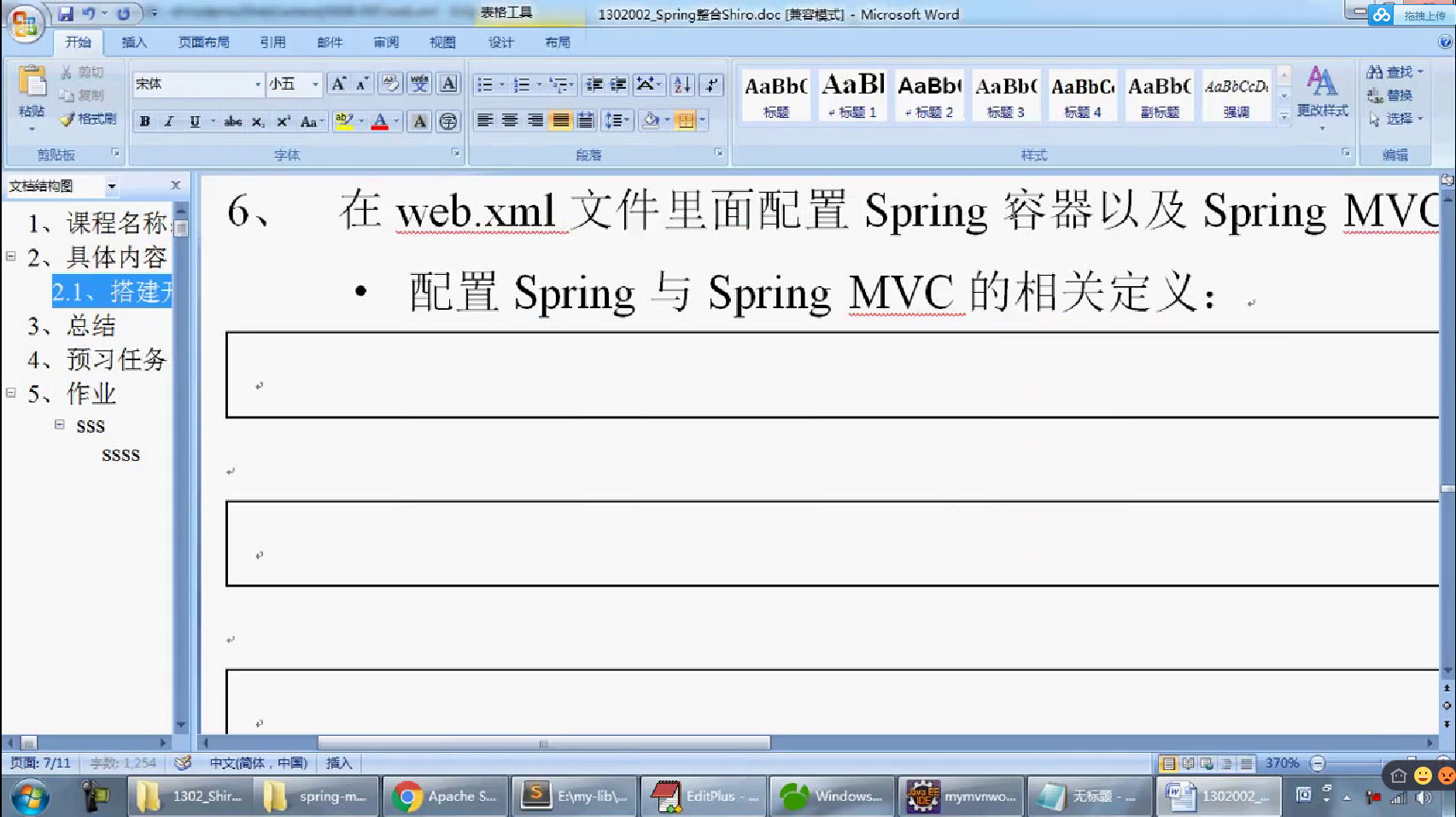
<!-- 在WEB容器里面进行Spring容器的加载 --> <listener> <listener-class> org.springframework.web.context.ContextLoaderListener </listener-class> </listener> <!-- 此配置描述的是在项目开发过程之中,Spring容器所需要使用到的配置文件 --> <context-param> <param-name>contextConfigLocation</param-name> <param-value>classpath:applicationContext.xml</param-value> </context-param> <!-- 此为Spring MVC配置所需要的程序文件,所有的请求都提交给Spring的Servlet程序 --> <servlet> <servlet-name>springmvc</servlet-name> <!-- 此为Spring MVC自己提供的servlet程序,一定要写上,因为其可以处理用户请求 --> <servlet-class>org.springframework.web.servlet.DispatcherServlet</servlet-class> <init-param> <param-name>contextConfigLocation</param-name> <param-value>classpath:applicationMVC.xml</param-value> </init-param> </servlet> <!-- SpringMVC中所有路径的请求映射,使用的是“*.action” --> <servlet-mapping> <servlet-name>springmvc</servlet-name> <url-pattern>*.action</url-pattern> </servlet-mapping> <!-- Spring中提供的编码过滤器,使用的编码都是UTF-8 --> <filter> <filter-name>encoding</filter-name> <filter-class> org.springframework.web.filter.CharacterEncodingFilter </filter-class> <init-param> <param-name>encoding</param-name> <param-value>UTF-8</param-value> </init-param> </filter> <filter-mapping> <filter-name>encoding</filter-name> <url-pattern>/*</url-pattern> </filter-mapping>
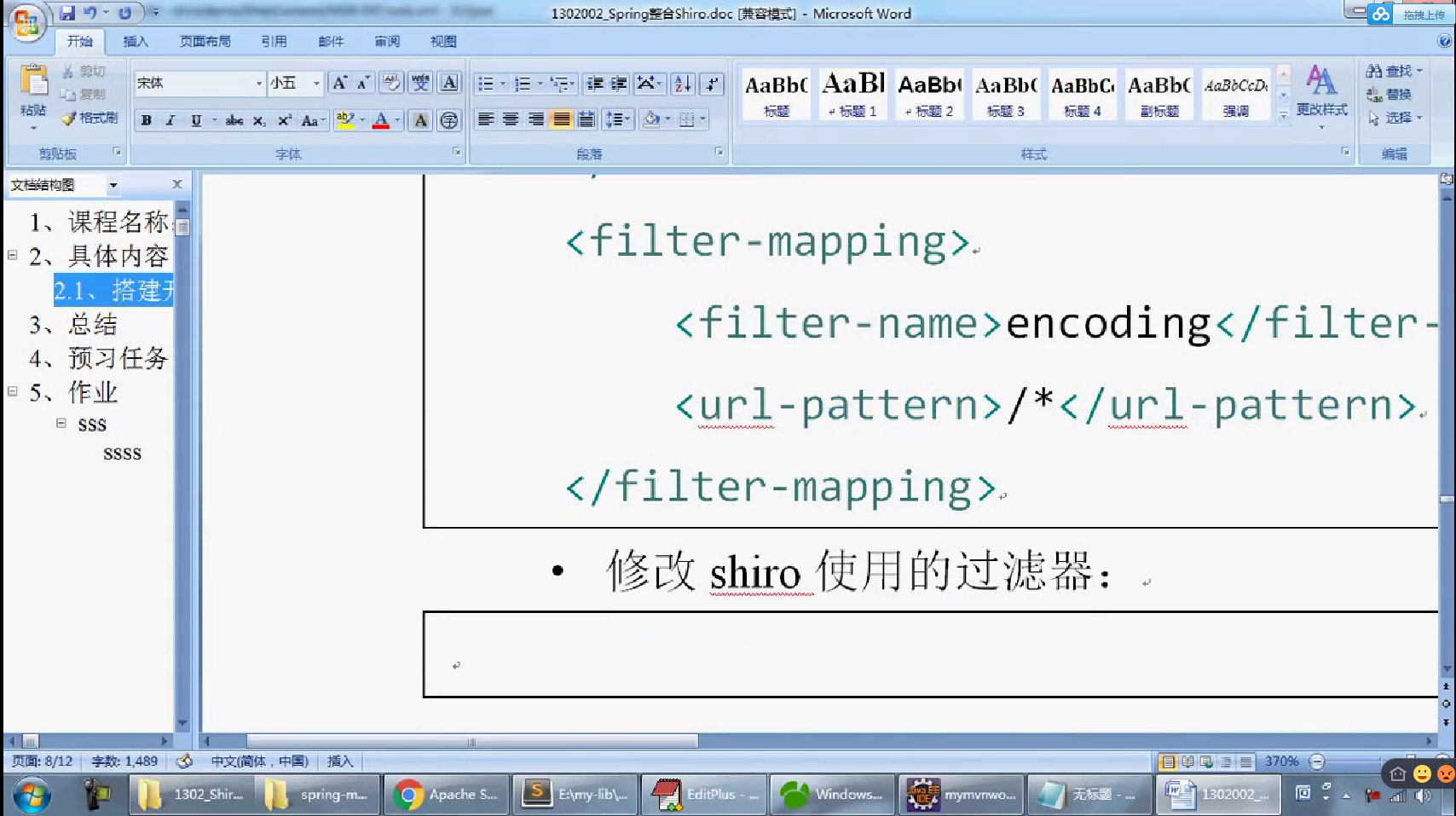
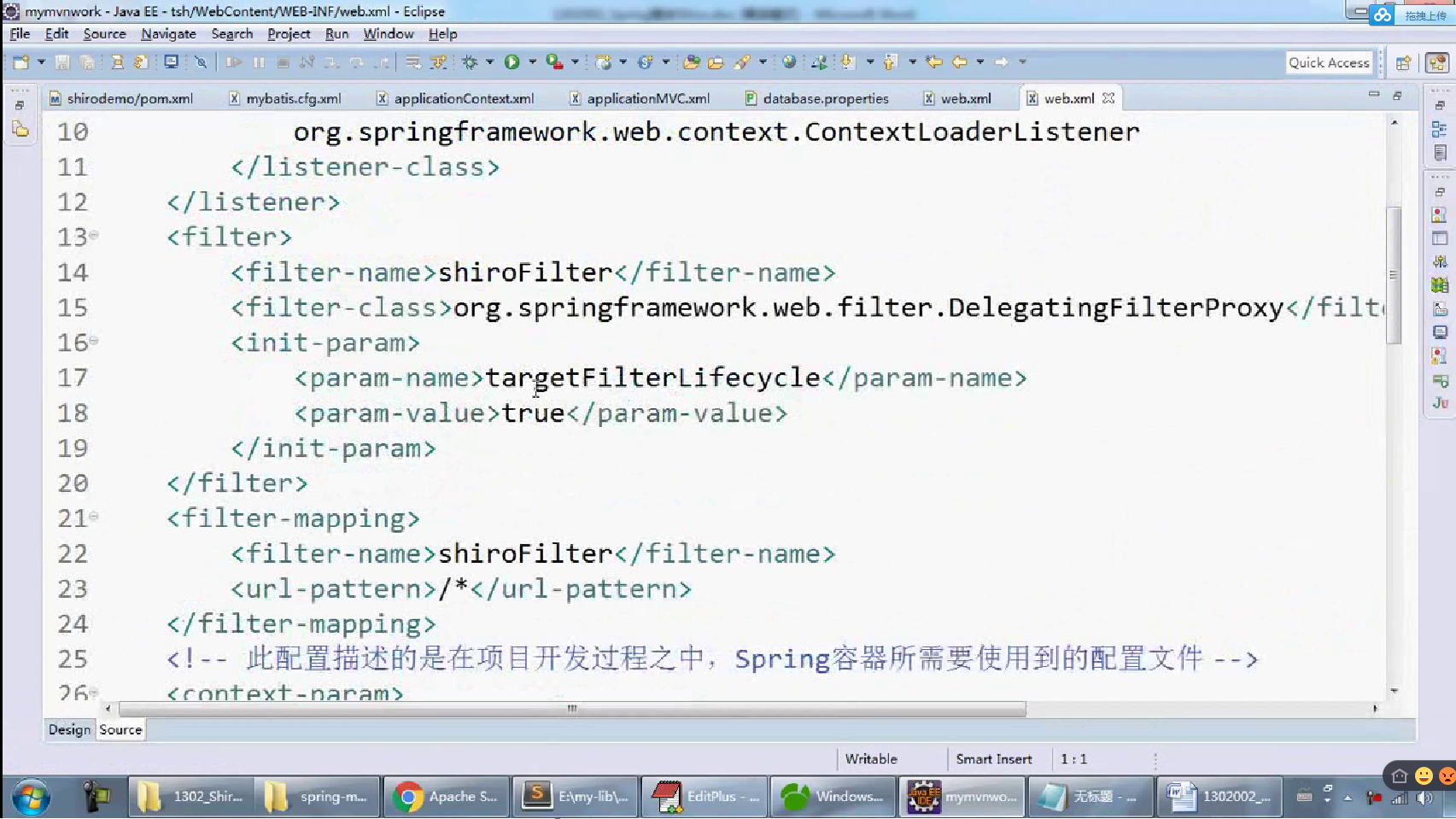
<!-- 进行shiro的过滤器的配置 --> <filter> <filter-name>shiroFilter</filter-name> <filter-class>org.springframework.web.filter.DelegatingFilterProxy</filter-class> <!-- 该参数表示shiro的生命周期将交由Spring容器进行管理(默认情况下,取值为false) --> <!-- 如果将其内容设置为true,则表示由Servlet容器进行管理 --> <init-param> <param-name>targetFilterLifecycle</param-name> <param-value>true</param-value> </init-param> </filter> <filter-mapping> <filter-name>shiroFilter</filter-name> <url-pattern>/*</url-pattern> <dispatcher>REQUEST</dispatcher> <dispatcher>FORWARD</dispatcher> <dispatcher>INCLUDE</dispatcher> <dispatcher>ERROR</dispatcher> </filter-mapping>
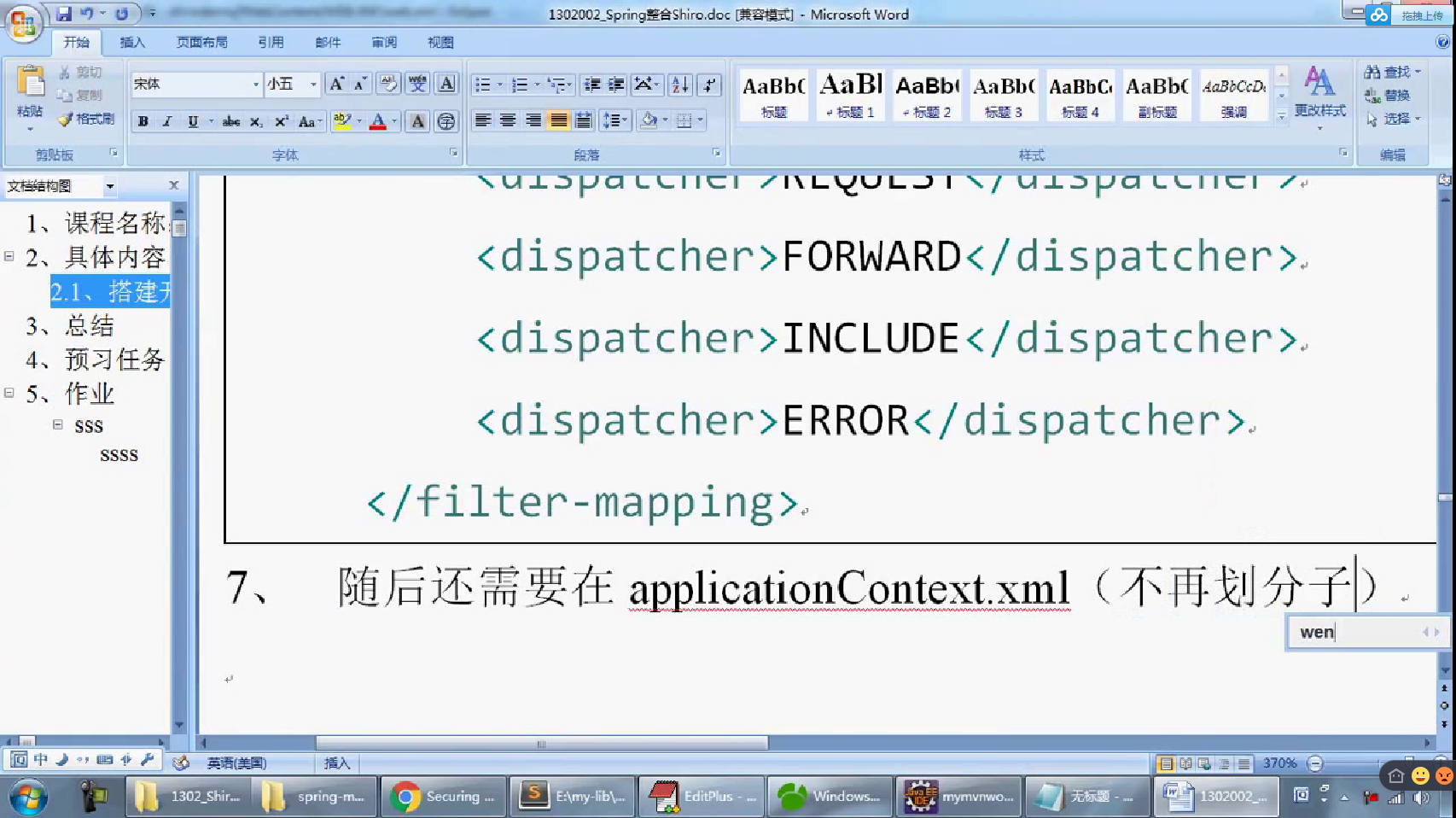

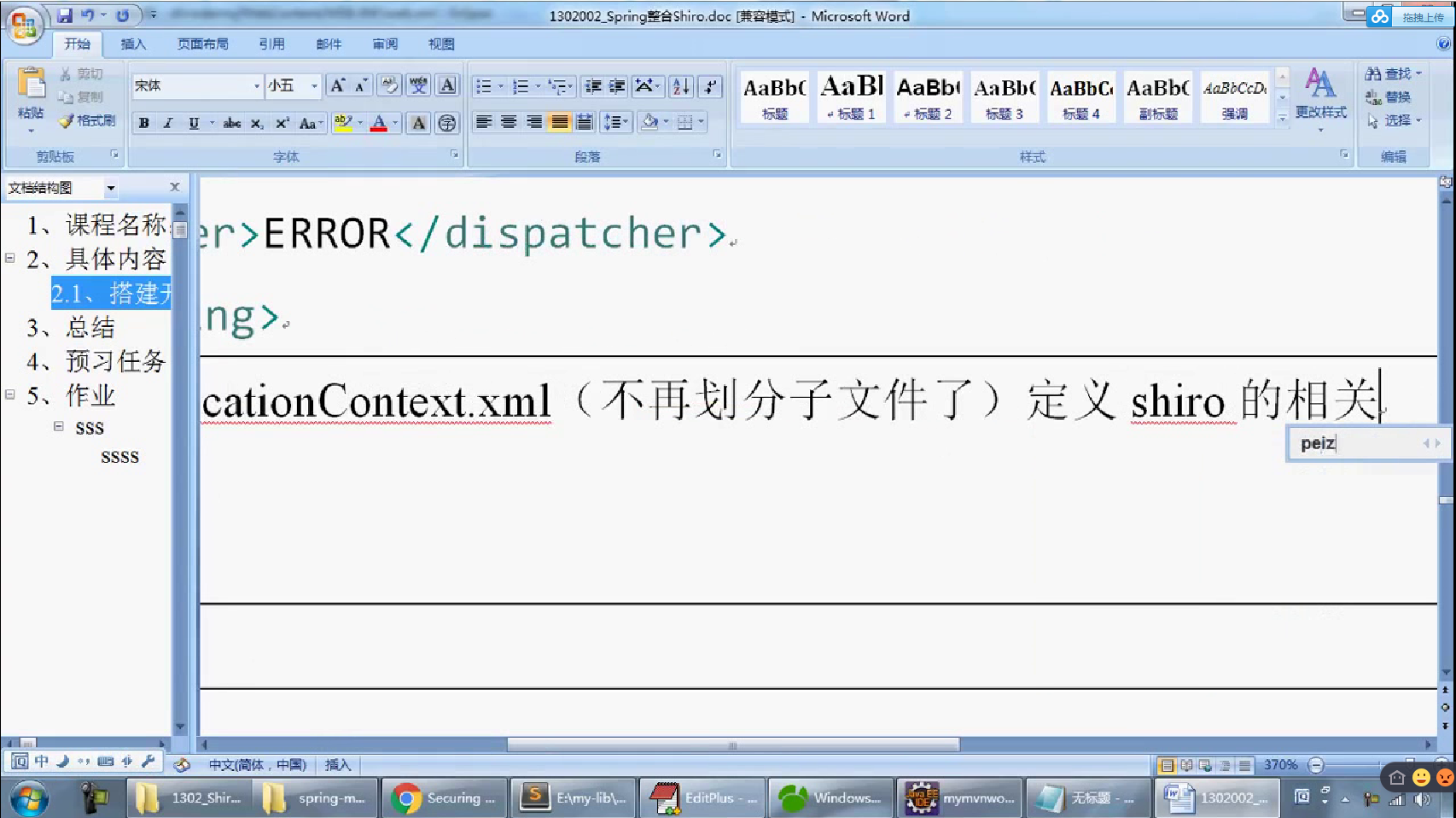
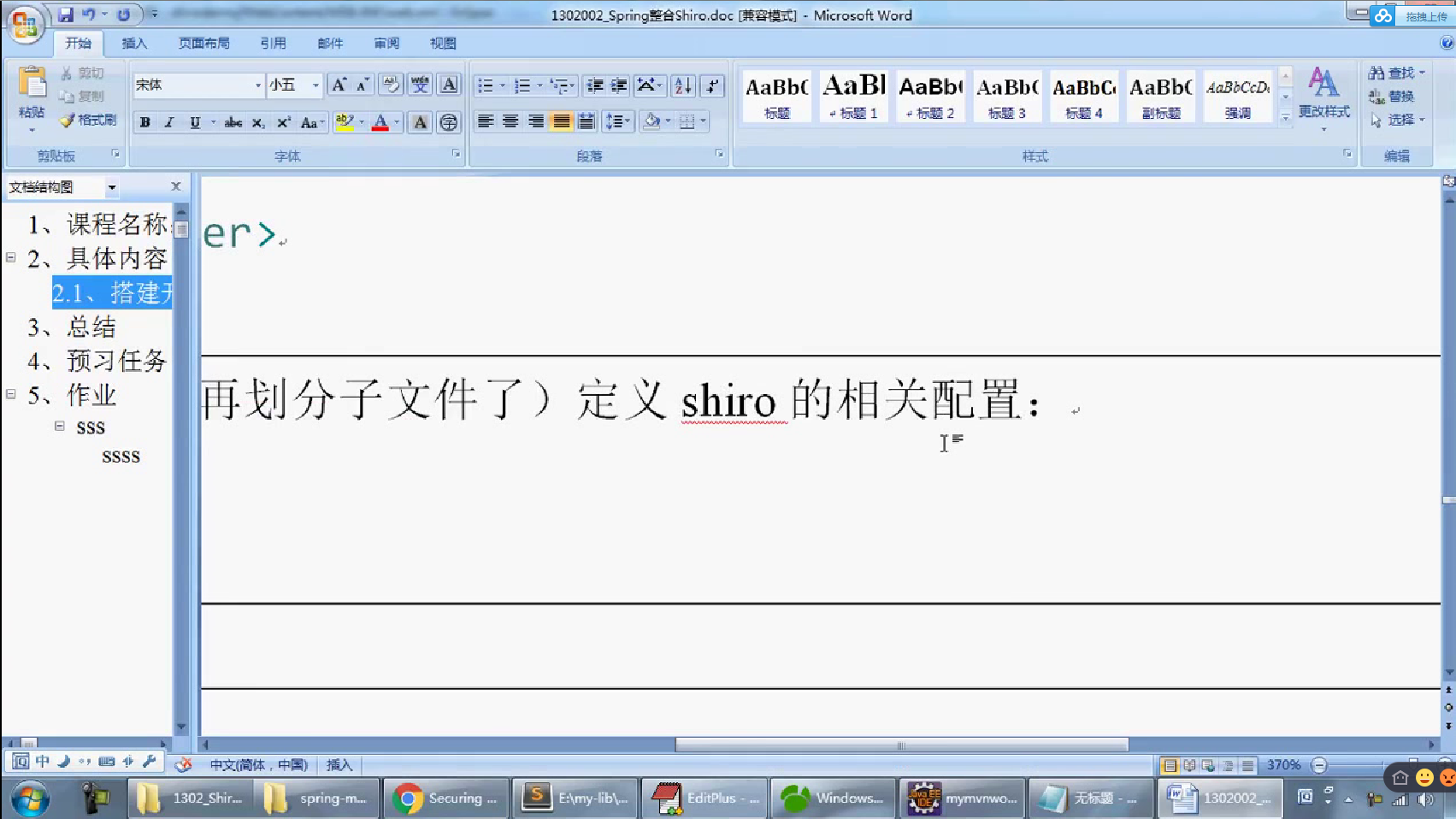
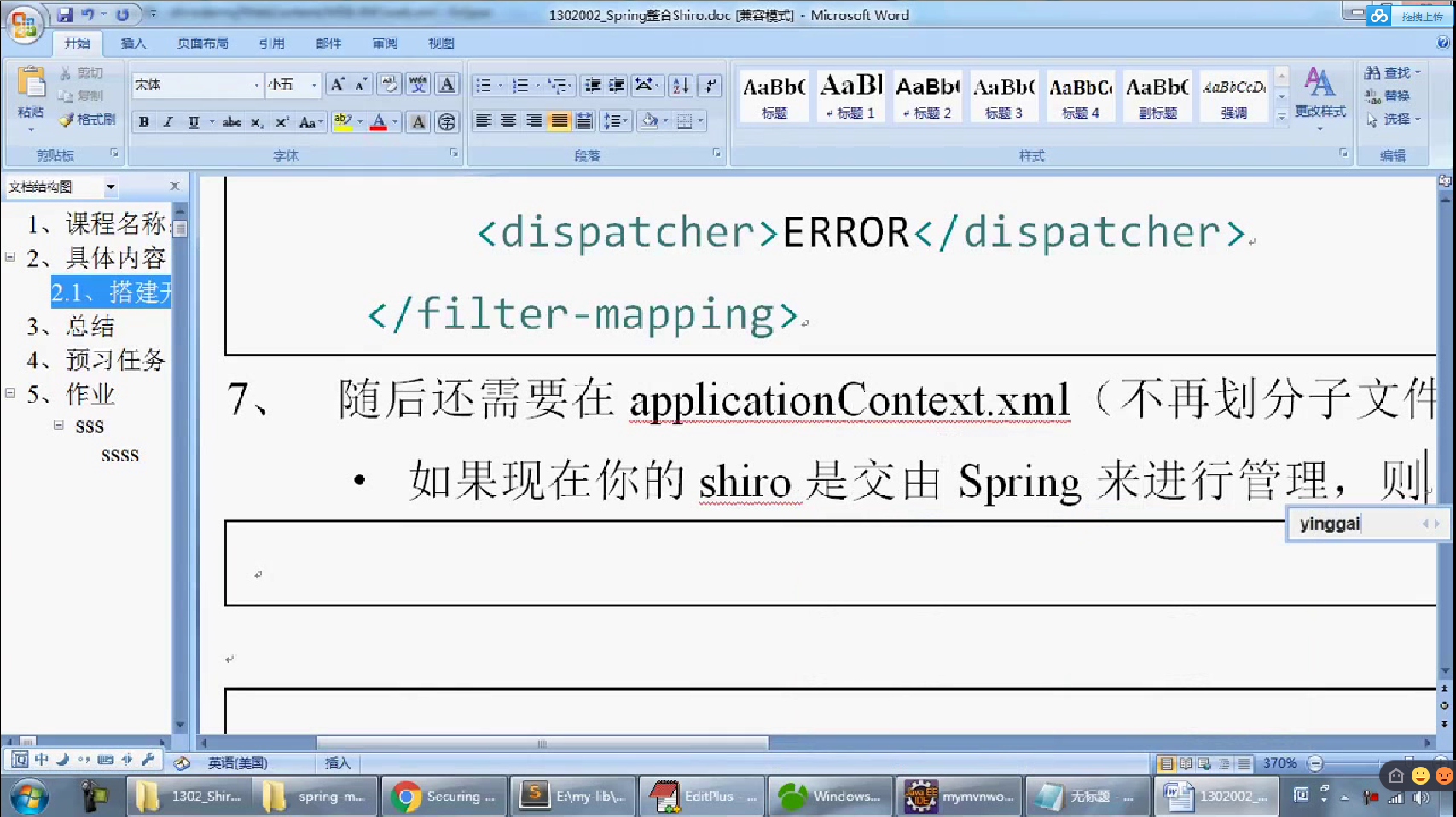
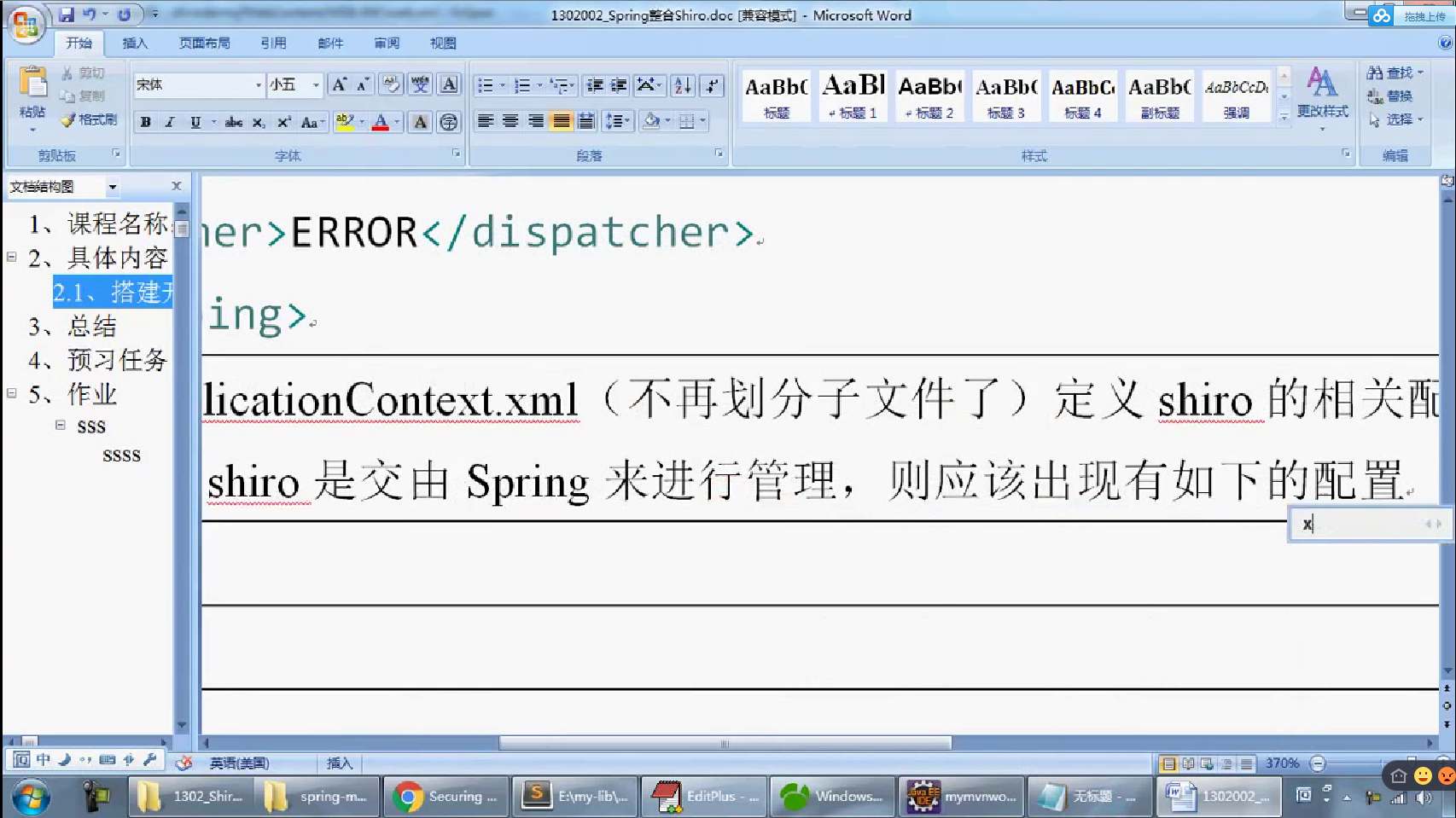
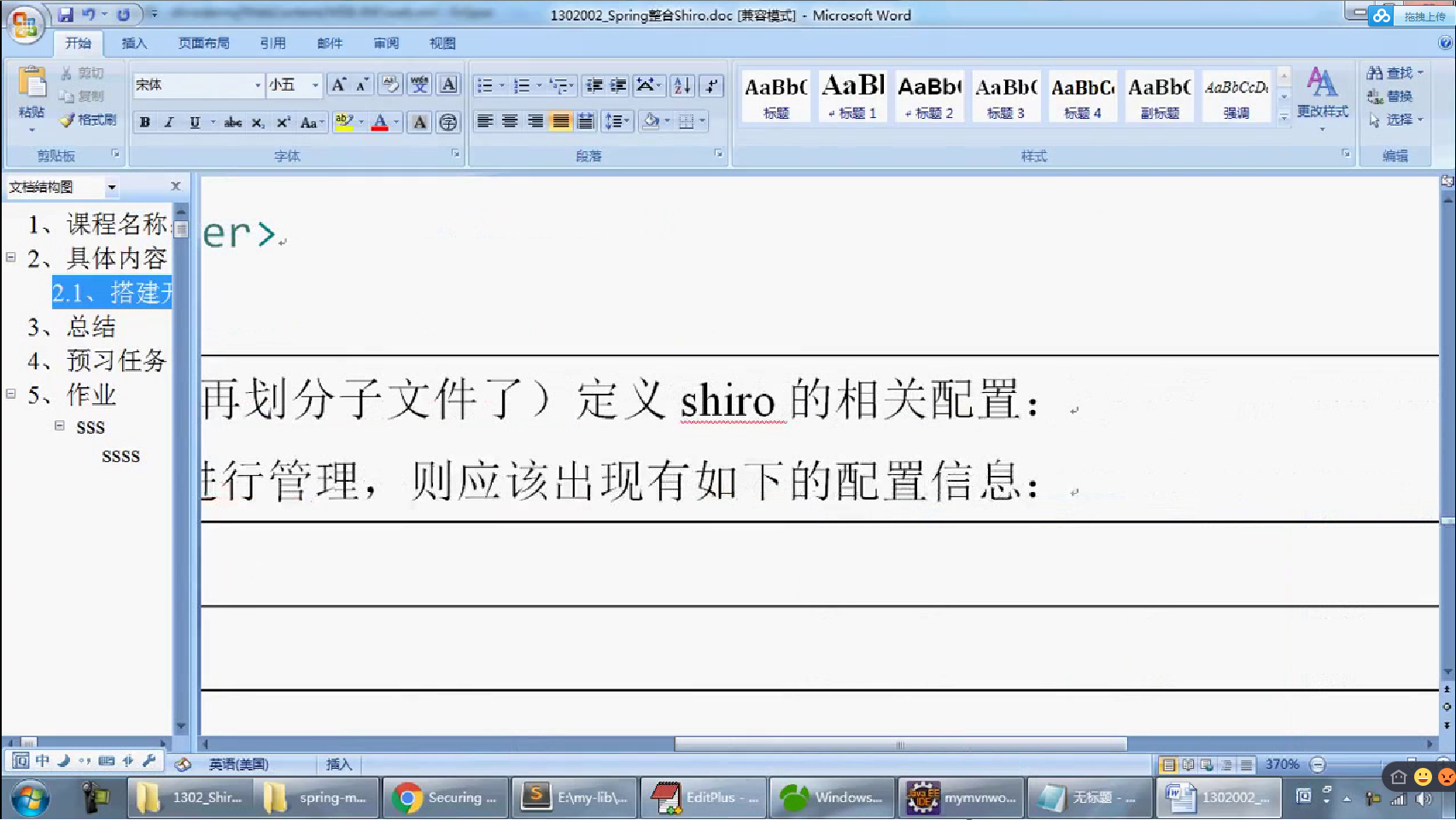
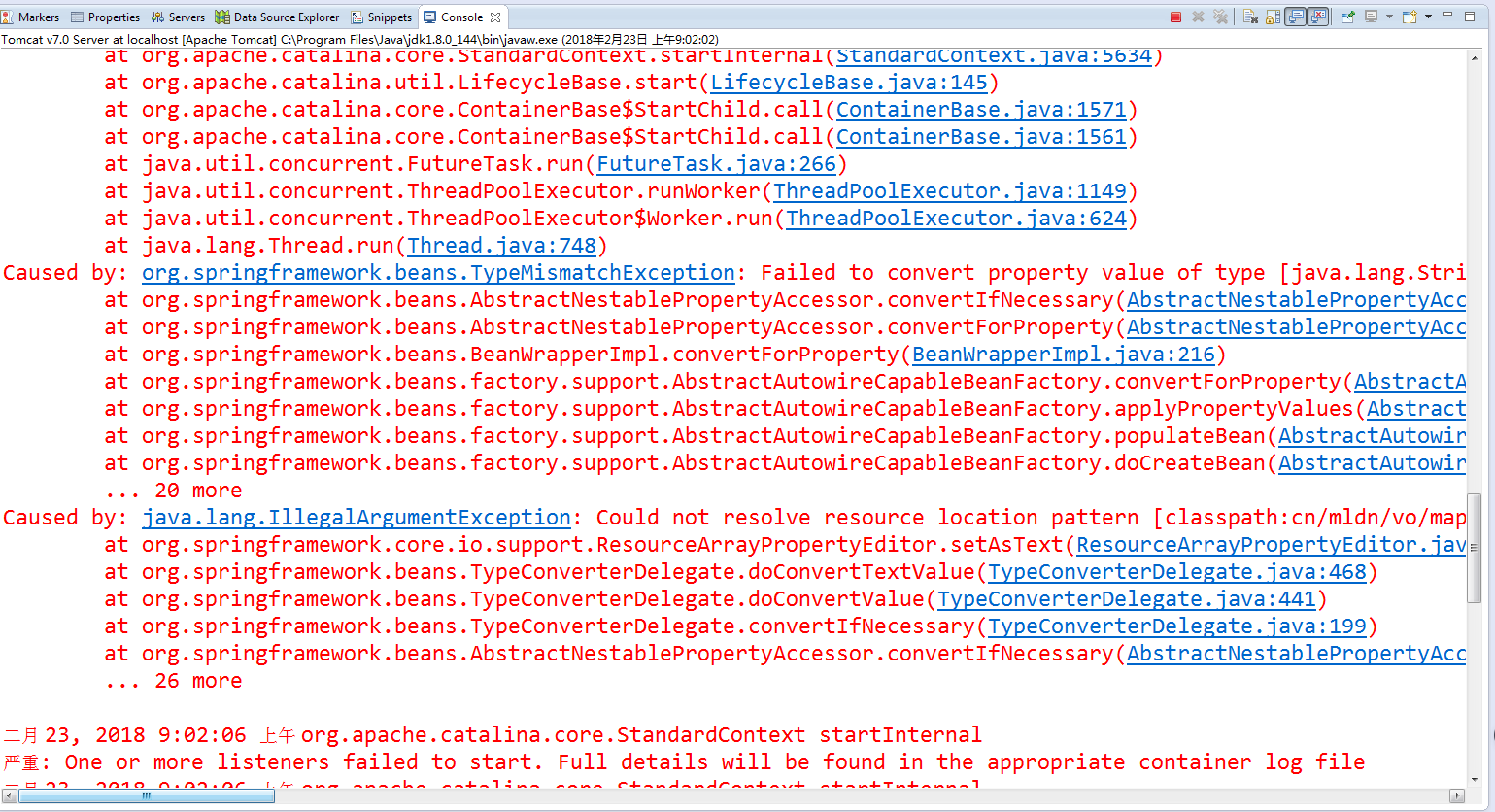
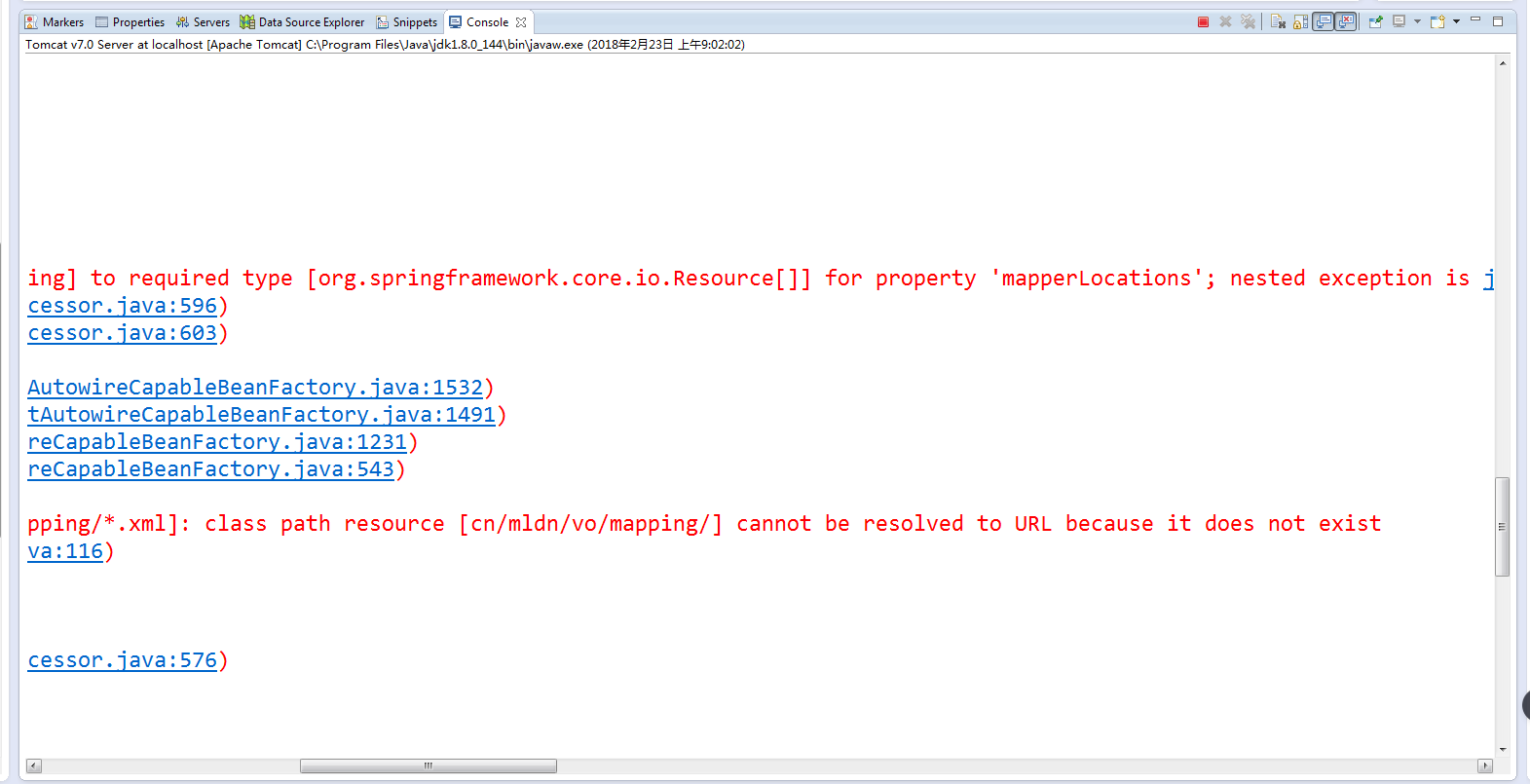
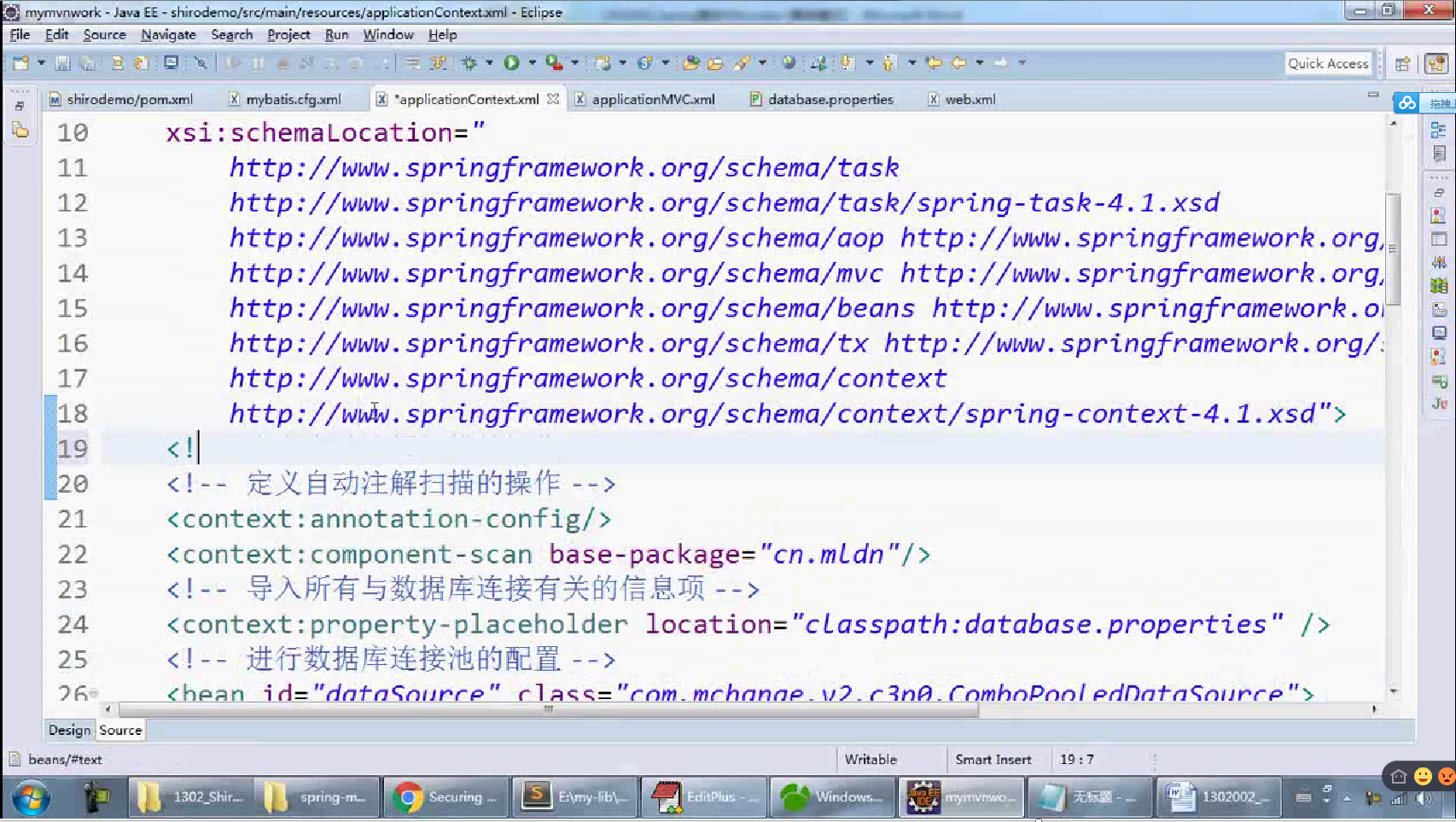
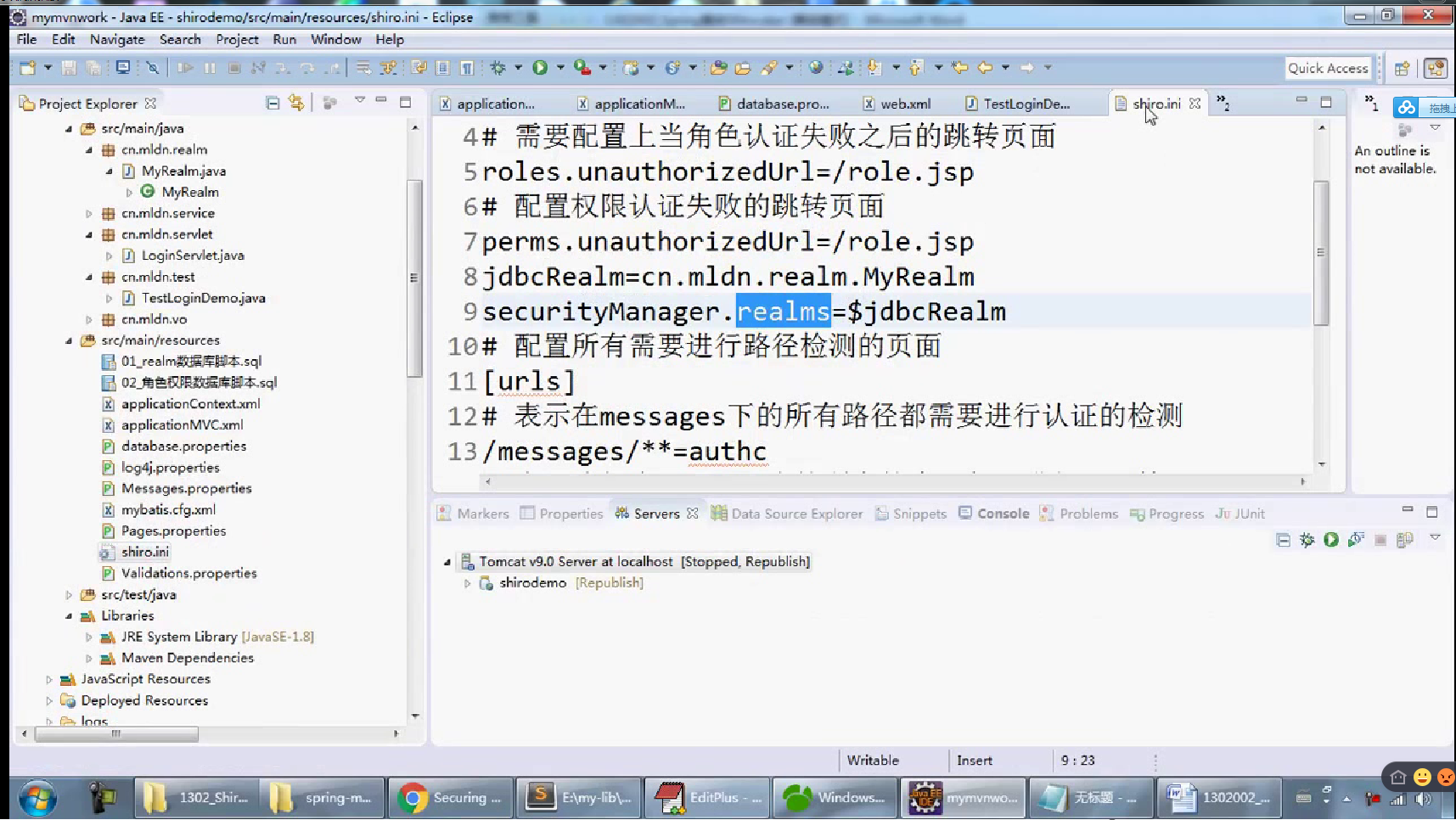
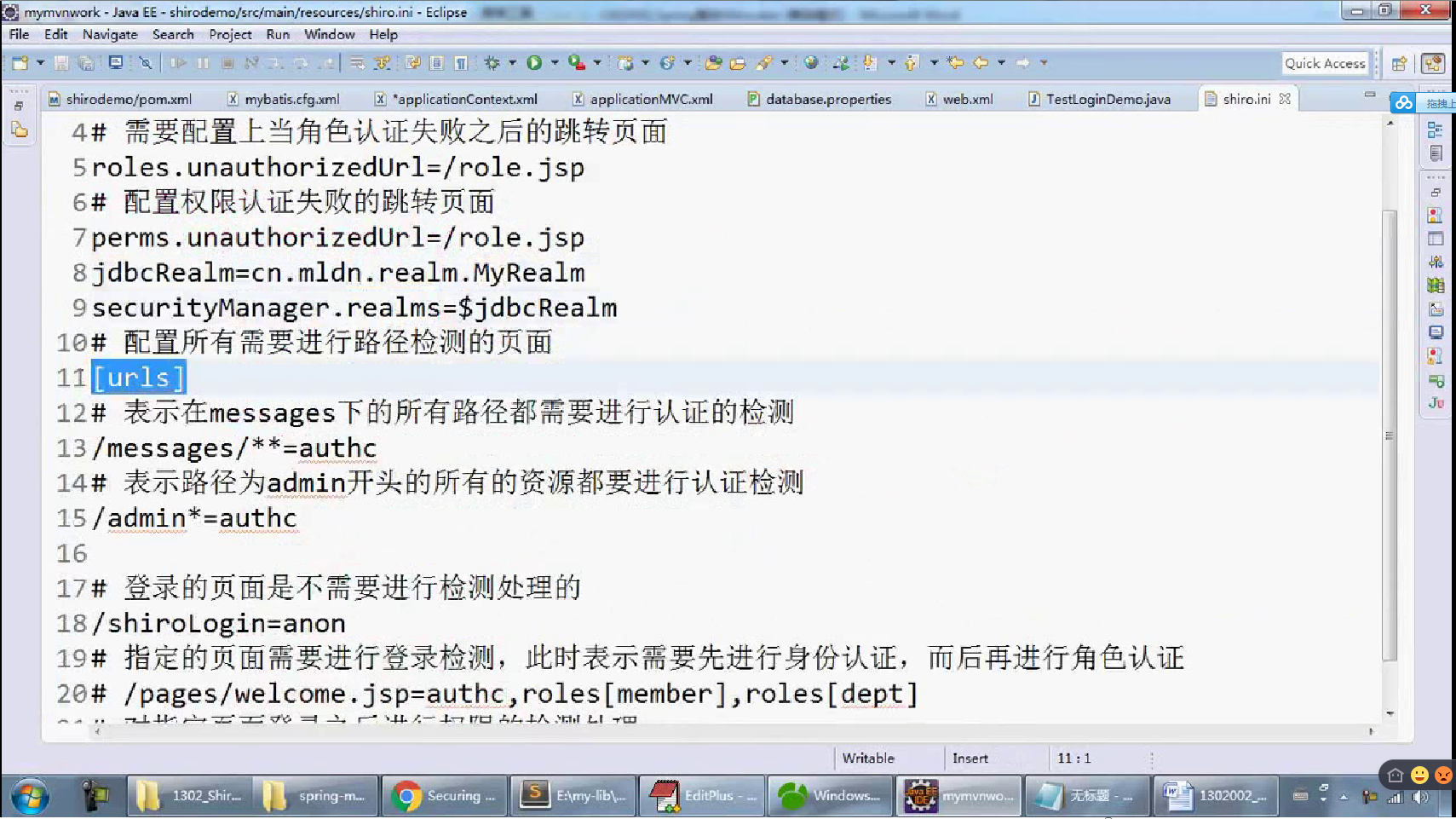
org.apache.shiro.spring.web.ShiroFilterFactoryBean的源码:
* Licensed to the Apache Software Foundation (ASF) under one package org.apache.shiro.spring.web; import org.apache.shiro.config.Ini; import org.apache.shiro.mgt.SecurityManager; import org.apache.shiro.util.CollectionUtils; import org.apache.shiro.util.Nameable; import org.apache.shiro.util.StringUtils; import org.apache.shiro.web.config.IniFilterChainResolverFactory; import org.apache.shiro.web.filter.AccessControlFilter; import org.apache.shiro.web.filter.authc.AuthenticationFilter; import org.apache.shiro.web.filter.authz.AuthorizationFilter; import org.apache.shiro.web.filter.mgt.DefaultFilterChainManager; import org.apache.shiro.web.filter.mgt.FilterChainManager; import org.apache.shiro.web.filter.mgt.FilterChainResolver; import org.apache.shiro.web.filter.mgt.PathMatchingFilterChainResolver; import org.apache.shiro.web.mgt.WebSecurityManager; import org.apache.shiro.web.servlet.AbstractShiroFilter; import org.slf4j.Logger; import org.slf4j.LoggerFactory; import org.springframework.beans.BeansException; import org.springframework.beans.factory.BeanInitializationException; import org.springframework.beans.factory.FactoryBean; import org.springframework.beans.factory.config.BeanPostProcessor; import javax.servlet.Filter; import java.util.LinkedHashMap; import java.util.Map; /** * {@link org.springframework.beans.factory.FactoryBean FactoryBean} to be used in Spring-based web applications for * defining the master Shiro Filter. * <h4>Usage</h4> * Declare a DelegatingFilterProxy in {@code web.xml}, matching the filter name to the bean id: * <pre> * <filter> * <filter-name><b>shiroFilter</b></filter-name> * <filter-class>org.springframework.web.filter.DelegatingFilterProxy<filter-class> * <init-param> * <param-name>targetFilterLifecycle</param-name> * <param-value>true</param-value> * </init-param> * </filter> * </pre> * Then, in your spring XML file that defines your web ApplicationContext: * <pre> * <bean id="<b>shiroFilter</b>" class="org.apache.shiro.spring.web.ShiroFilterFactoryBean"> * <property name="securityManager" ref="securityManager"/> * <!-- other properties as necessary ... --> * </bean> * </pre> * <h4>Filter Auto-Discovery</h4> * While there is a {@link #setFilters(java.util.Map) filters} property that allows you to assign a filter beans * to the 'pool' of filters available when defining {@link #setFilterChainDefinitions(String) filter chains}, it is * optional. * <p/> * This implementation is also a {@link BeanPostProcessor} and will acquire * any {@link javax.servlet.Filter Filter} beans defined independently in your Spring application context. Upon * discovery, they will be automatically added to the {@link #setFilters(java.util.Map) map} keyed by the bean ID. * That ID can then be used in the filter chain definitions, for example: * * <pre> * <bean id="<b>myCustomFilter</b>" class="com.class.that.implements.javax.servlet.Filter"/> * ... * <bean id="shiroFilter" class="org.apache.shiro.spring.web.ShiroFilterFactoryBean"> * ... * <property name="filterChainDefinitions"> * <value> * /some/path/** = authc, <b>myCustomFilter</b> * </value> * </property> * </bean> * </pre> * <h4>Global Property Values</h4> * Most Shiro servlet Filter implementations exist for defining custom Filter * {@link #setFilterChainDefinitions(String) chain definitions}. Most implementations subclass one of the * {@link AccessControlFilter}, {@link AuthenticationFilter}, {@link AuthorizationFilter} classes to simplify things, * and each of these 3 classes has configurable properties that are application-specific. * <p/> * A dilemma arises where, if you want to for example set the application's 'loginUrl' for any Filter, you don't want * to have to manually specify that value for <em>each</em> filter instance definied. * <p/> * To prevent configuration duplication, this implementation provides the following properties to allow you * to set relevant values in only one place: * <ul> * <li>{@link #setLoginUrl(String)}</li> * <li>{@link #setSuccessUrl(String)}</li> * <li>{@link #setUnauthorizedUrl(String)}</li> * </ul> * * Then at startup, any values specified via these 3 properties will be applied to all configured * Filter instances so you don't have to specify them individually on each filter instance. To ensure your own custom * filters benefit from this convenience, your filter implementation should subclass one of the 3 mentioned * earlier. * * @see org.springframework.web.filter.DelegatingFilterProxy DelegatingFilterProxy * @since 1.0 */ public class ShiroFilterFactoryBean implements FactoryBean, BeanPostProcessor { private static transient final Logger log = LoggerFactory.getLogger(ShiroFilterFactoryBean.class); private SecurityManager securityManager; private Map<String, Filter> filters; private Map<String, String> filterChainDefinitionMap; //urlPathExpression_to_comma-delimited-filter-chain-definition private String loginUrl; private String successUrl; private String unauthorizedUrl; private AbstractShiroFilter instance; public ShiroFilterFactoryBean() { this.filters = new LinkedHashMap<String, Filter>(); this.filterChainDefinitionMap = new LinkedHashMap<String, String>(); //order matters! } /** * Sets the application {@code SecurityManager} instance to be used by the constructed Shiro Filter. This is a * required property - failure to set it will throw an initialization exception. * * @return the application {@code SecurityManager} instance to be used by the constructed Shiro Filter. */ public SecurityManager getSecurityManager() { return securityManager; } /** * Sets the application {@code SecurityManager} instance to be used by the constructed Shiro Filter. This is a * required property - failure to set it will throw an initialization exception. * * @param securityManager the application {@code SecurityManager} instance to be used by the constructed Shiro Filter. */ public void setSecurityManager(SecurityManager securityManager) { this.securityManager = securityManager; } /** * Returns the application's login URL to be assigned to all acquired Filters that subclass * {@link AccessControlFilter} or {@code null} if no value should be assigned globally. The default value * is {@code null}. * * @return the application's login URL to be assigned to all acquired Filters that subclass * {@link AccessControlFilter} or {@code null} if no value should be assigned globally. * @see #setLoginUrl */ public String getLoginUrl() { return loginUrl; } /** * Sets the application's login URL to be assigned to all acquired Filters that subclass * {@link AccessControlFilter}. This is a convenience mechanism: for all configured {@link #setFilters filters}, * as well for any default ones ({@code authc}, {@code user}, etc), this value will be passed on to each Filter * via the {@link AccessControlFilter#setLoginUrl(String)} method<b>*</b>. This eliminates the need to * configure the 'loginUrl' property manually on each filter instance, and instead that can be configured once * via this attribute. * <p/> * <b>*</b>If a filter already has already been explicitly configured with a value, it will * <em>not</em> receive this value. Individual filter configuration overrides this global convenience property. * * @param loginUrl the application's login URL to apply to as a convenience to all discovered * {@link AccessControlFilter} instances. * @see AccessControlFilter#setLoginUrl(String) */ public void setLoginUrl(String loginUrl) { this.loginUrl = loginUrl; } /** * Returns the application's after-login success URL to be assigned to all acquired Filters that subclass * {@link AuthenticationFilter} or {@code null} if no value should be assigned globally. The default value * is {@code null}. * * @return the application's after-login success URL to be assigned to all acquired Filters that subclass * {@link AuthenticationFilter} or {@code null} if no value should be assigned globally. * @see #setSuccessUrl */ public String getSuccessUrl() { return successUrl; } /** * Sets the application's after-login success URL to be assigned to all acquired Filters that subclass * {@link AuthenticationFilter}. This is a convenience mechanism: for all configured {@link #setFilters filters}, * as well for any default ones ({@code authc}, {@code user}, etc), this value will be passed on to each Filter * via the {@link AuthenticationFilter#setSuccessUrl(String)} method<b>*</b>. This eliminates the need to * configure the 'successUrl' property manually on each filter instance, and instead that can be configured once * via this attribute. * <p/> * <b>*</b>If a filter already has already been explicitly configured with a value, it will * <em>not</em> receive this value. Individual filter configuration overrides this global convenience property. * * @param successUrl the application's after-login success URL to apply to as a convenience to all discovered * {@link AccessControlFilter} instances. * @see AuthenticationFilter#setSuccessUrl(String) */ public void setSuccessUrl(String successUrl) { this.successUrl = successUrl; } /** * Returns the application's after-login success URL to be assigned to all acquired Filters that subclass * {@link AuthenticationFilter} or {@code null} if no value should be assigned globally. The default value * is {@code null}. * * @return the application's after-login success URL to be assigned to all acquired Filters that subclass * {@link AuthenticationFilter} or {@code null} if no value should be assigned globally. * @see #setSuccessUrl */ public String getUnauthorizedUrl() { return unauthorizedUrl; } /** * Sets the application's 'unauthorized' URL to be assigned to all acquired Filters that subclass * {@link AuthorizationFilter}. This is a convenience mechanism: for all configured {@link #setFilters filters}, * as well for any default ones ({@code roles}, {@code perms}, etc), this value will be passed on to each Filter * via the {@link AuthorizationFilter#setUnauthorizedUrl(String)} method<b>*</b>. This eliminates the need to * configure the 'unauthorizedUrl' property manually on each filter instance, and instead that can be configured once * via this attribute. * <p/> * <b>*</b>If a filter already has already been explicitly configured with a value, it will * <em>not</em> receive this value. Individual filter configuration overrides this global convenience property. * * @param unauthorizedUrl the application's 'unauthorized' URL to apply to as a convenience to all discovered * {@link AuthorizationFilter} instances. * @see AuthorizationFilter#setUnauthorizedUrl(String) */ public void setUnauthorizedUrl(String unauthorizedUrl) { this.unauthorizedUrl = unauthorizedUrl; } /** * Returns the filterName-to-Filter map of filters available for reference when defining filter chain definitions. * All filter chain definitions will reference filters by the names in this map (i.e. the keys). * * @return the filterName-to-Filter map of filters available for reference when defining filter chain definitions. */ public Map<String, Filter> getFilters() { return filters; } /** * Sets the filterName-to-Filter map of filters available for reference when creating * {@link #setFilterChainDefinitionMap(java.util.Map) filter chain definitions}. * <p/> * <b>Note:</b> This property is optional: this {@code FactoryBean} implementation will discover all beans in the * web application context that implement the {@link Filter} interface and automatically add them to this filter * map under their bean name. * <p/> * For example, just defining this bean in a web Spring XML application context: * <pre> * <bean id="myFilter" class="com.class.that.implements.javax.servlet.Filter"> * ... * </bean></pre> * Will automatically place that bean into this Filters map under the key '<b>myFilter</b>'. * * @param filters the optional filterName-to-Filter map of filters available for reference when creating * {@link #setFilterChainDefinitionMap (java.util.Map) filter chain definitions}. */ public void setFilters(Map<String, Filter> filters) { this.filters = filters; } /** * Returns the chainName-to-chainDefinition map of chain definitions to use for creating filter chains intercepted * by the Shiro Filter. Each map entry should conform to the format defined by the * {@link FilterChainManager#createChain(String, String)} JavaDoc, where the map key is the chain name (e.g. URL * path expression) and the map value is the comma-delimited string chain definition. * * @return he chainName-to-chainDefinition map of chain definitions to use for creating filter chains intercepted * by the Shiro Filter. */ public Map<String, String> getFilterChainDefinitionMap() { return filterChainDefinitionMap; } /** * Sets the chainName-to-chainDefinition map of chain definitions to use for creating filter chains intercepted * by the Shiro Filter. Each map entry should conform to the format defined by the * {@link FilterChainManager#createChain(String, String)} JavaDoc, where the map key is the chain name (e.g. URL * path expression) and the map value is the comma-delimited string chain definition. * * @param filterChainDefinitionMap the chainName-to-chainDefinition map of chain definitions to use for creating * filter chains intercepted by the Shiro Filter. */ public void setFilterChainDefinitionMap(Map<String, String> filterChainDefinitionMap) { this.filterChainDefinitionMap = filterChainDefinitionMap; } /** * A convenience method that sets the {@link #setFilterChainDefinitionMap(java.util.Map) filterChainDefinitionMap} * property by accepting a {@link java.util.Properties Properties}-compatible string (multi-line key/value pairs). * Each key/value pair must conform to the format defined by the * {@link FilterChainManager#createChain(String,String)} JavaDoc - each property key is an ant URL * path expression and the value is the comma-delimited chain definition. * * @param definitions a {@link java.util.Properties Properties}-compatible string (multi-line key/value pairs) * where each key/value pair represents a single urlPathExpression-commaDelimitedChainDefinition. */ public void setFilterChainDefinitions(String definitions) { Ini ini = new Ini(); ini.load(definitions); //did they explicitly state a 'urls' section? Not necessary, but just in case: Ini.Section section = ini.getSection(IniFilterChainResolverFactory.URLS); if (CollectionUtils.isEmpty(section)) { //no urls section. Since this _is_ a urls chain definition property, just assume the //default section contains only the definitions: section = ini.getSection(Ini.DEFAULT_SECTION_NAME); } setFilterChainDefinitionMap(section); } /** * Lazily creates and returns a {@link AbstractShiroFilter} concrete instance via the * {@link #createInstance} method. * * @return the application's Shiro Filter instance used to filter incoming web requests. * @throws Exception if there is a problem creating the {@code Filter} instance. */ public Object getObject() throws Exception { if (instance == null) { instance = createInstance(); } return instance; } /** * Returns <code>{@link org.apache.shiro.web.servlet.AbstractShiroFilter}.class</code> * * @return <code>{@link org.apache.shiro.web.servlet.AbstractShiroFilter}.class</code> */ public Class getObjectType() { return SpringShiroFilter.class; } /** * Returns {@code true} always. There is almost always only ever 1 Shiro {@code Filter} per web application. * * @return {@code true} always. There is almost always only ever 1 Shiro {@code Filter} per web application. */ public boolean isSingleton() { return true; } protected FilterChainManager createFilterChainManager() { DefaultFilterChainManager manager = new DefaultFilterChainManager(); Map<String, Filter> defaultFilters = manager.getFilters(); //apply global settings if necessary: for (Filter filter : defaultFilters.values()) { applyGlobalPropertiesIfNecessary(filter); } //Apply the acquired and/or configured filters: Map<String, Filter> filters = getFilters(); if (!CollectionUtils.isEmpty(filters)) { for (Map.Entry<String, Filter> entry : filters.entrySet()) { String name = entry.getKey(); Filter filter = entry.getValue(); applyGlobalPropertiesIfNecessary(filter); if (filter instanceof Nameable) { ((Nameable) filter).setName(name); } //'init' argument is false, since Spring-configured filters should be initialized //in Spring (i.e. 'init-method=blah') or implement InitializingBean: manager.addFilter(name, filter, false); } } //build up the chains: Map<String, String> chains = getFilterChainDefinitionMap(); if (!CollectionUtils.isEmpty(chains)) { for (Map.Entry<String, String> entry : chains.entrySet()) { String url = entry.getKey(); String chainDefinition = entry.getValue(); manager.createChain(url, chainDefinition); } } return manager; } /** * This implementation: * <ol> * <li>Ensures the required {@link #setSecurityManager(org.apache.shiro.mgt.SecurityManager) securityManager} * property has been set</li> * <li>{@link #createFilterChainManager() Creates} a {@link FilterChainManager} instance that reflects the * configured {@link #setFilters(java.util.Map) filters} and * {@link #setFilterChainDefinitionMap(java.util.Map) filter chain definitions}</li> * <li>Wraps the FilterChainManager with a suitable * {@link org.apache.shiro.web.filter.mgt.FilterChainResolver FilterChainResolver} since the Shiro Filter * implementations do not know of {@code FilterChainManager}s</li> * <li>Sets both the {@code SecurityManager} and {@code FilterChainResolver} instances on a new Shiro Filter * instance and returns that filter instance.</li> * </ol> * * @return a new Shiro Filter reflecting any configured filters and filter chain definitions. * @throws Exception if there is a problem creating the AbstractShiroFilter instance. */ protected AbstractShiroFilter createInstance() throws Exception { log.debug("Creating Shiro Filter instance."); SecurityManager securityManager = getSecurityManager(); if (securityManager == null) { String msg = "SecurityManager property must be set."; throw new BeanInitializationException(msg); } if (!(securityManager instanceof WebSecurityManager)) { String msg = "The security manager does not implement the WebSecurityManager interface."; throw new BeanInitializationException(msg); } FilterChainManager manager = createFilterChainManager(); //Expose the constructed FilterChainManager by first wrapping it in a // FilterChainResolver implementation. The AbstractShiroFilter implementations // do not know about FilterChainManagers - only resolvers: PathMatchingFilterChainResolver chainResolver = new PathMatchingFilterChainResolver(); chainResolver.setFilterChainManager(manager); //Now create a concrete ShiroFilter instance and apply the acquired SecurityManager and built //FilterChainResolver. It doesn't matter that the instance is an anonymous inner class //here - we're just using it because it is a concrete AbstractShiroFilter instance that accepts //injection of the SecurityManager and FilterChainResolver: return new SpringShiroFilter((WebSecurityManager) securityManager, chainResolver); } private void applyLoginUrlIfNecessary(Filter filter) { String loginUrl = getLoginUrl(); if (StringUtils.hasText(loginUrl) && (filter instanceof AccessControlFilter)) { AccessControlFilter acFilter = (AccessControlFilter) filter; //only apply the login url if they haven't explicitly configured one already: String existingLoginUrl = acFilter.getLoginUrl(); if (AccessControlFilter.DEFAULT_LOGIN_URL.equals(existingLoginUrl)) { acFilter.setLoginUrl(loginUrl); } } } private void applySuccessUrlIfNecessary(Filter filter) { String successUrl = getSuccessUrl(); if (StringUtils.hasText(successUrl) && (filter instanceof AuthenticationFilter)) { AuthenticationFilter authcFilter = (AuthenticationFilter) filter; //only apply the successUrl if they haven't explicitly configured one already: String existingSuccessUrl = authcFilter.getSuccessUrl(); if (AuthenticationFilter.DEFAULT_SUCCESS_URL.equals(existingSuccessUrl)) { authcFilter.setSuccessUrl(successUrl); } } } private void applyUnauthorizedUrlIfNecessary(Filter filter) { String unauthorizedUrl = getUnauthorizedUrl(); if (StringUtils.hasText(unauthorizedUrl) && (filter instanceof AuthorizationFilter)) { AuthorizationFilter authzFilter = (AuthorizationFilter) filter; //only apply the unauthorizedUrl if they haven't explicitly configured one already: String existingUnauthorizedUrl = authzFilter.getUnauthorizedUrl(); if (existingUnauthorizedUrl == null) { authzFilter.setUnauthorizedUrl(unauthorizedUrl); } } } private void applyGlobalPropertiesIfNecessary(Filter filter) { applyLoginUrlIfNecessary(filter); applySuccessUrlIfNecessary(filter); applyUnauthorizedUrlIfNecessary(filter); } /** * Inspects a bean, and if it implements the {@link Filter} interface, automatically adds that filter * instance to the internal {@link #setFilters(java.util.Map) filters map} that will be referenced * later during filter chain construction. */ public Object postProcessBeforeInitialization(Object bean, String beanName) throws BeansException { if (bean instanceof Filter) { log.debug("Found filter chain candidate filter '{}'", beanName); Filter filter = (Filter) bean; applyGlobalPropertiesIfNecessary(filter); getFilters().put(beanName, filter); } else { log.trace("Ignoring non-Filter bean '{}'", beanName); } return bean; } /** * Does nothing - only exists to satisfy the BeanPostProcessor interface and immediately returns the * {@code bean} argument. */ public Object postProcessAfterInitialization(Object bean, String beanName) throws BeansException { return bean; } /** * Ordinarily the {@code AbstractShiroFilter} must be subclassed to additionally perform configuration * and initialization behavior. Because this {@code FactoryBean} implementation manually builds the * {@link AbstractShiroFilter}'s * {@link AbstractShiroFilter#setSecurityManager(org.apache.shiro.web.mgt.WebSecurityManager) securityManager} and * {@link AbstractShiroFilter#setFilterChainResolver(org.apache.shiro.web.filter.mgt.FilterChainResolver) filterChainResolver} * properties, the only thing left to do is set those properties explicitly. We do that in a simple * concrete subclass in the constructor. */ private static final class SpringShiroFilter extends AbstractShiroFilter { protected SpringShiroFilter(WebSecurityManager webSecurityManager, FilterChainResolver resolver) { super(); if (webSecurityManager == null) { throw new IllegalArgumentException("WebSecurityManager property cannot be null."); } setSecurityManager(webSecurityManager); if (resolver != null) { setFilterChainResolver(resolver); } } } }
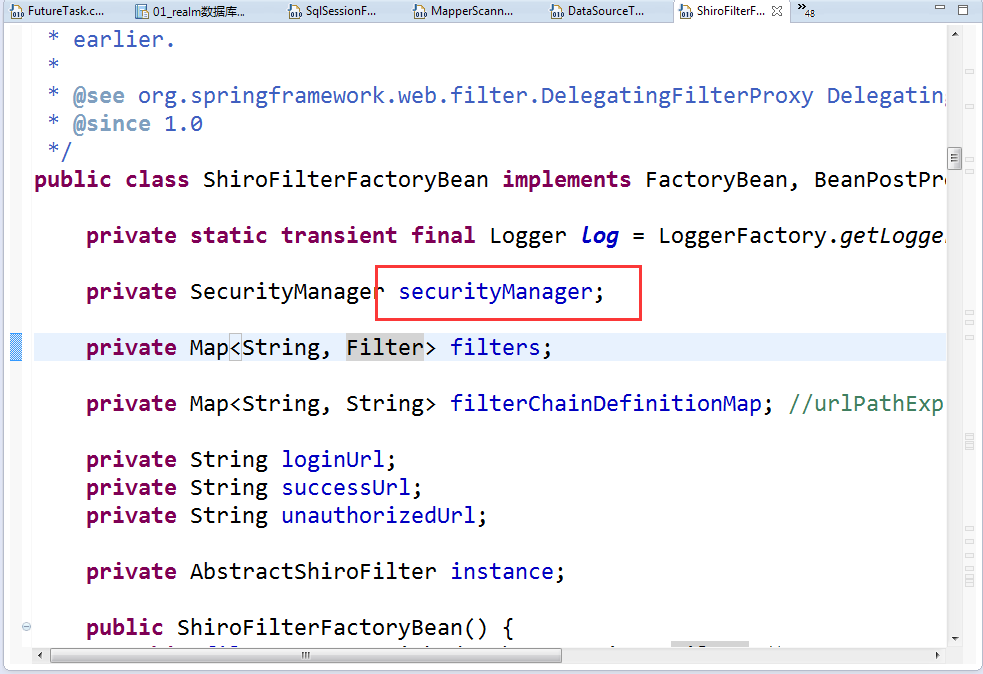
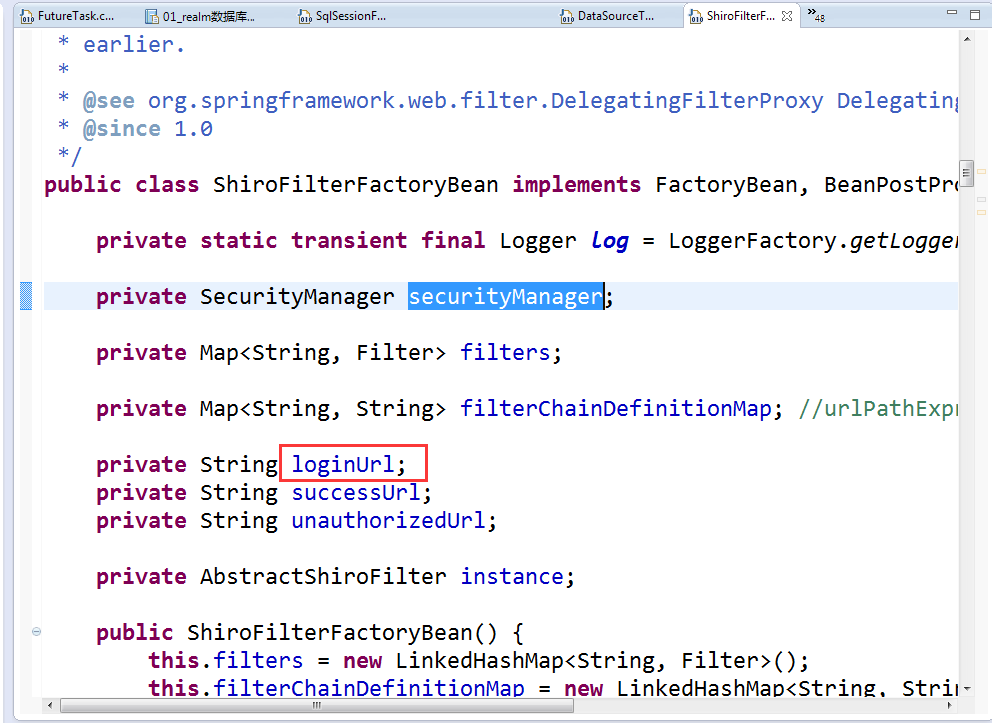
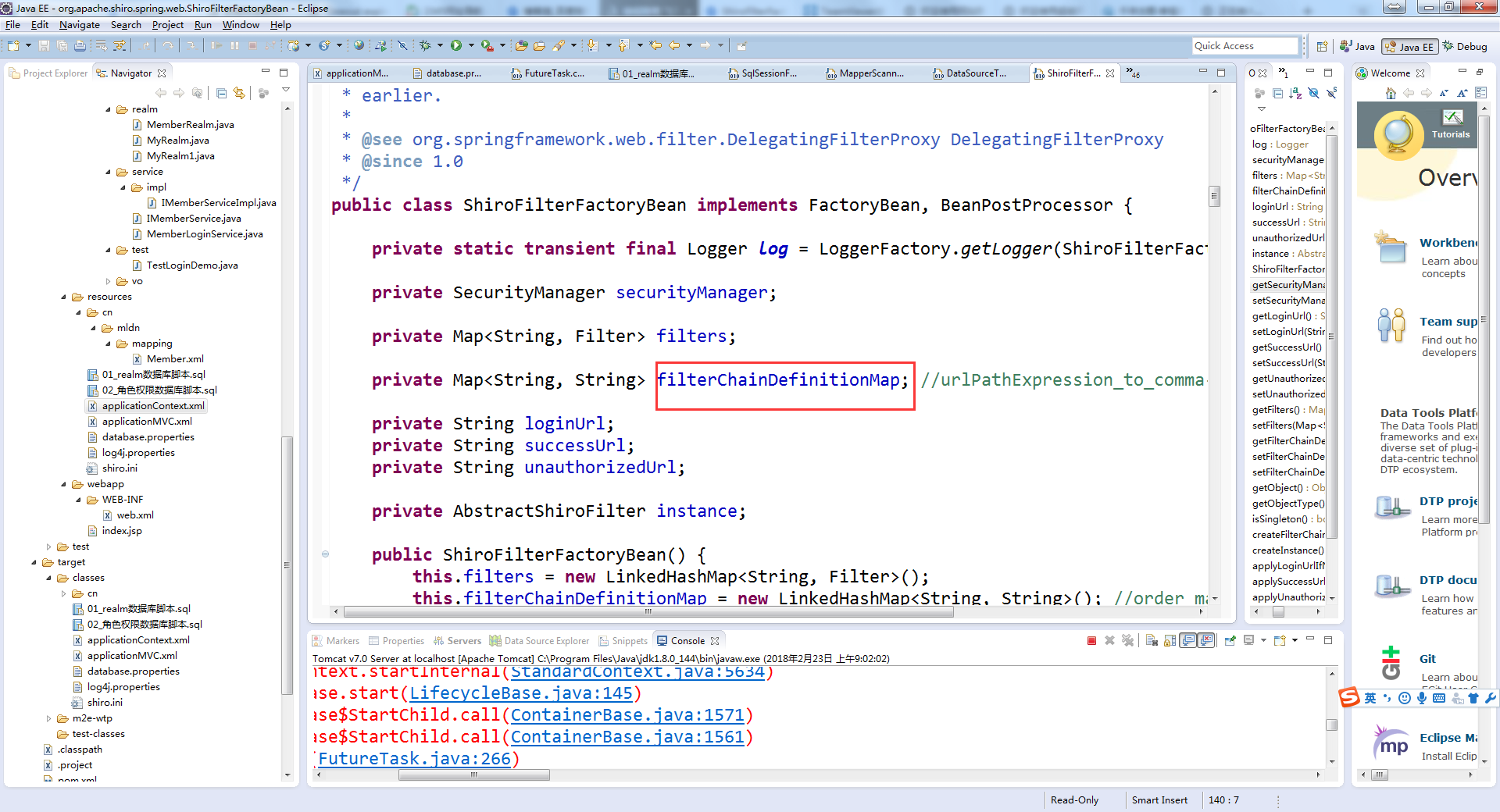
<!-- 配置shiro过滤器 --> <bean id="shiroFilter" class="org.apache.shiro.spring.web.ShiroFilterFactoryBean"> <!-- 表示现在要配置的是一个安全管理器 --> <property name="securityManager" ref="securityManager"></property> <!-- 出现错误之后的跳转路径的配置 --> <property name="loginUrl" ref="/loginUrl.action"></property> <!-- 认证失败之后的跳转路径页面 --> <property name="unauthorizedUrl" value="/unauthUrl.action"></property> <!-- 登录成功之后的跳转访问路径 --> <property name="successUrl" value="/sucessUrl.action"></property> <!-- shiro里面需要针对于所有的路径进行配置,所有的配置需要通过文本的形式设置 --> <property name="filterChainDefinitionMap"> <value> /shiroLogin.action=anon </value> </property> </bean>
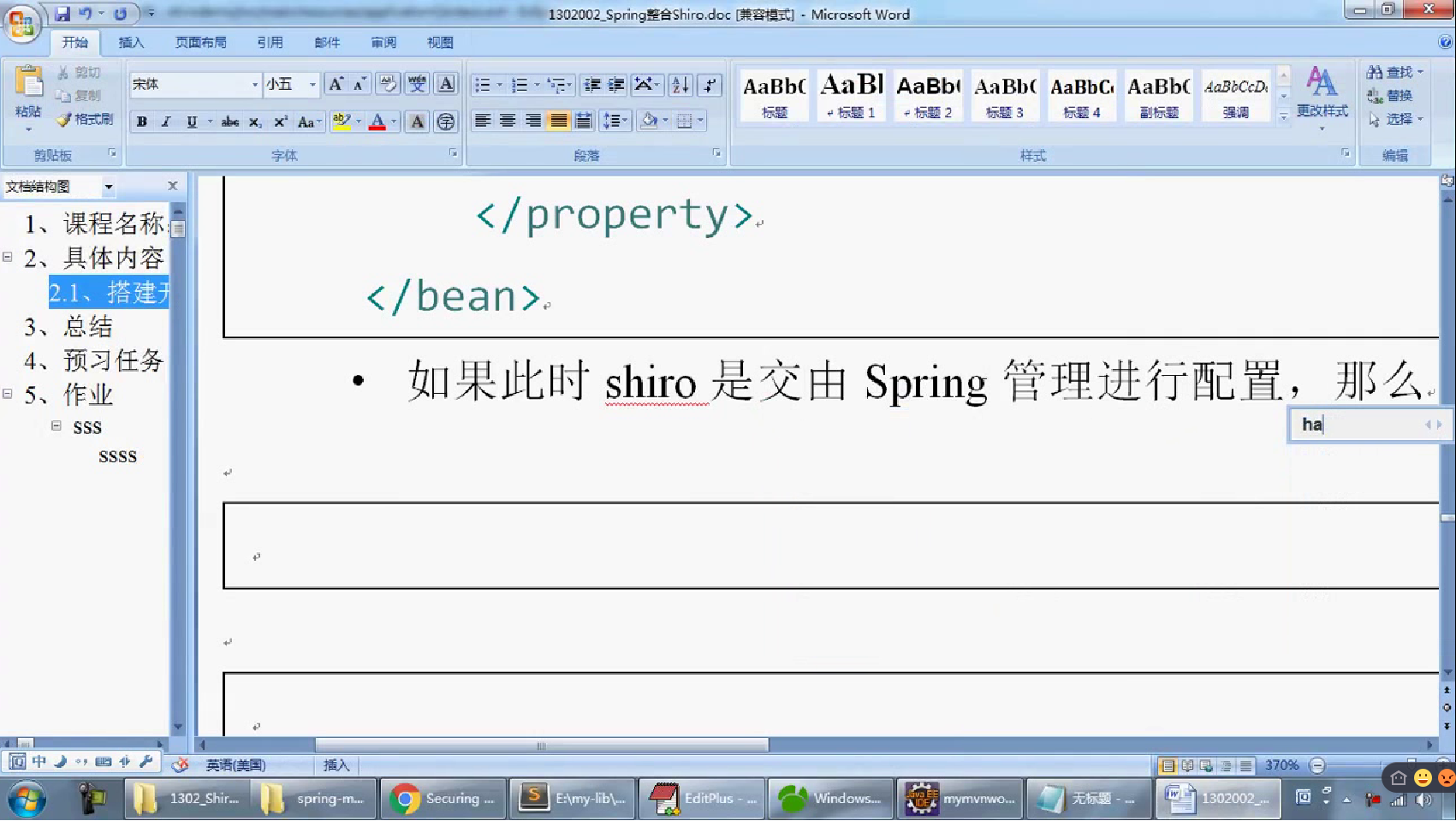

<bean id="lifecycleBeanPostProcessor" class="org.apache.shiro.spring.LifecycleBeanPostProcessor"></bean>
